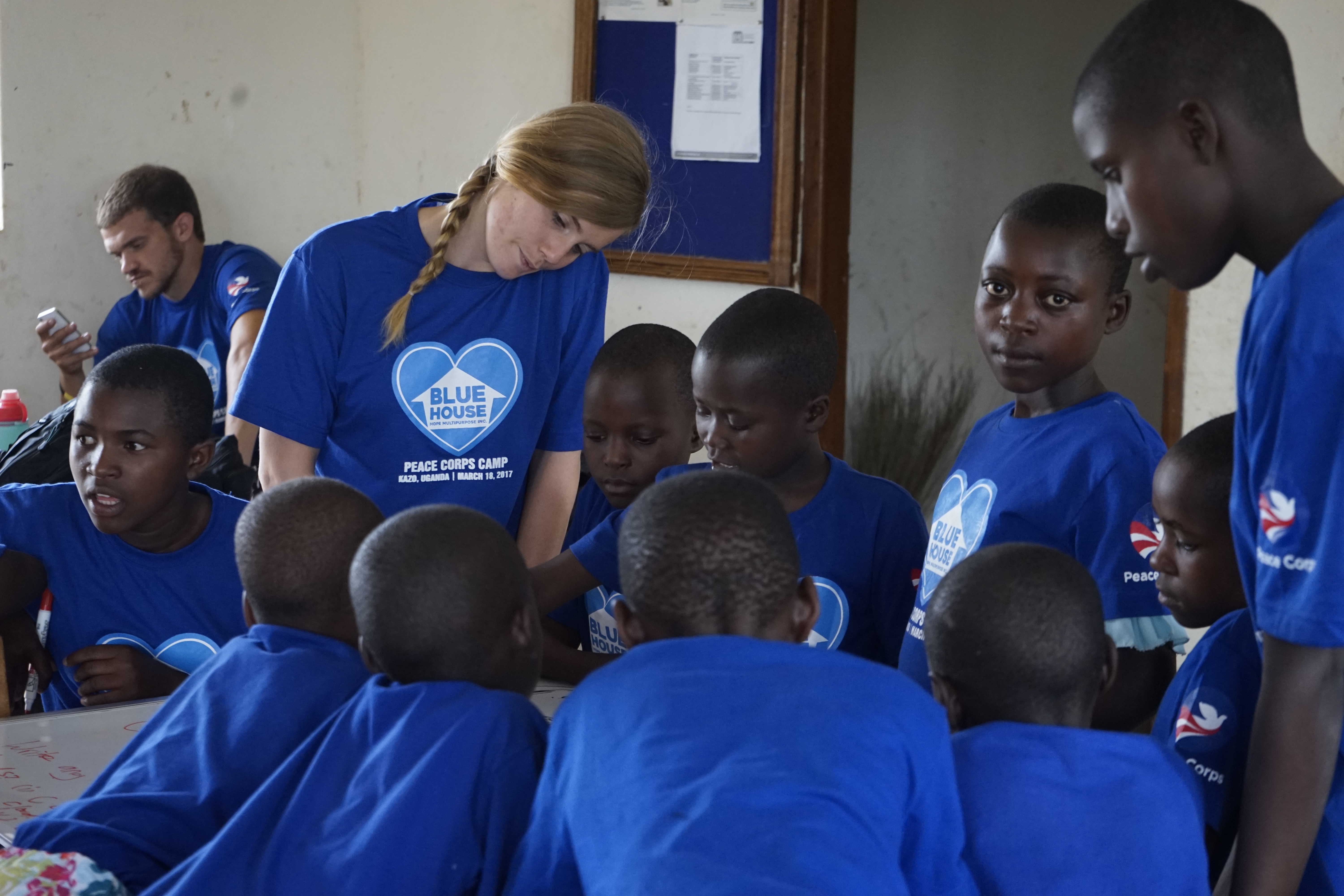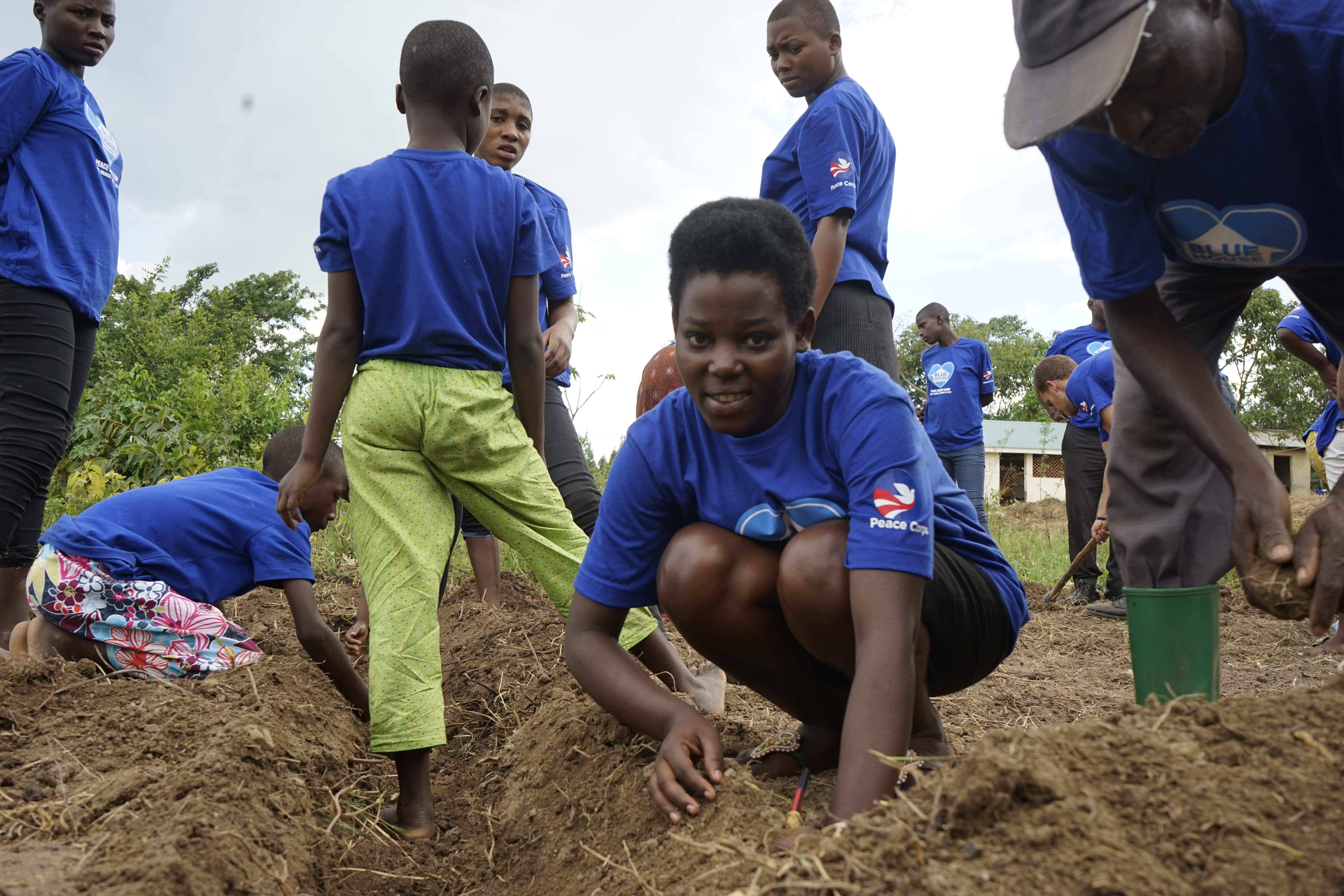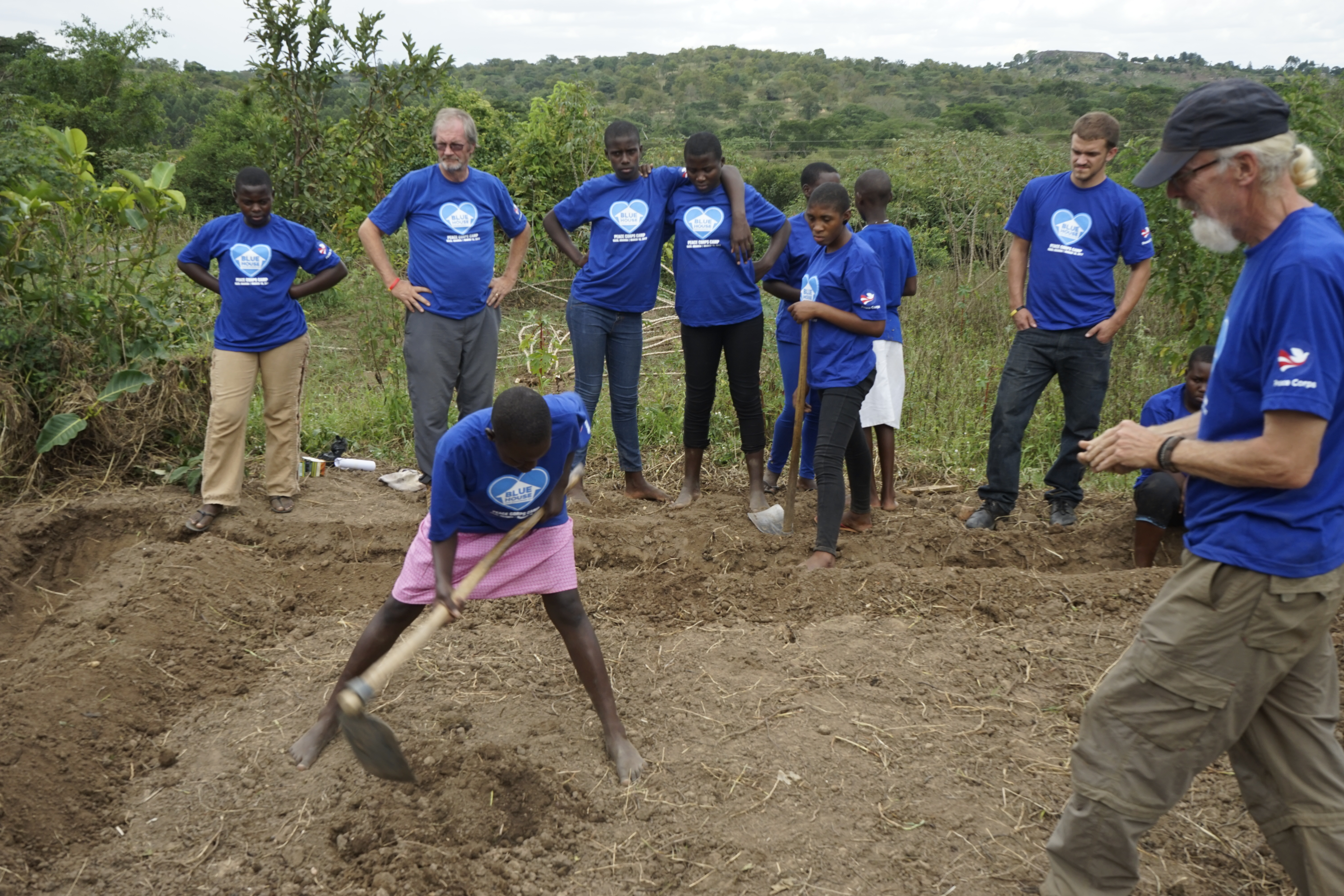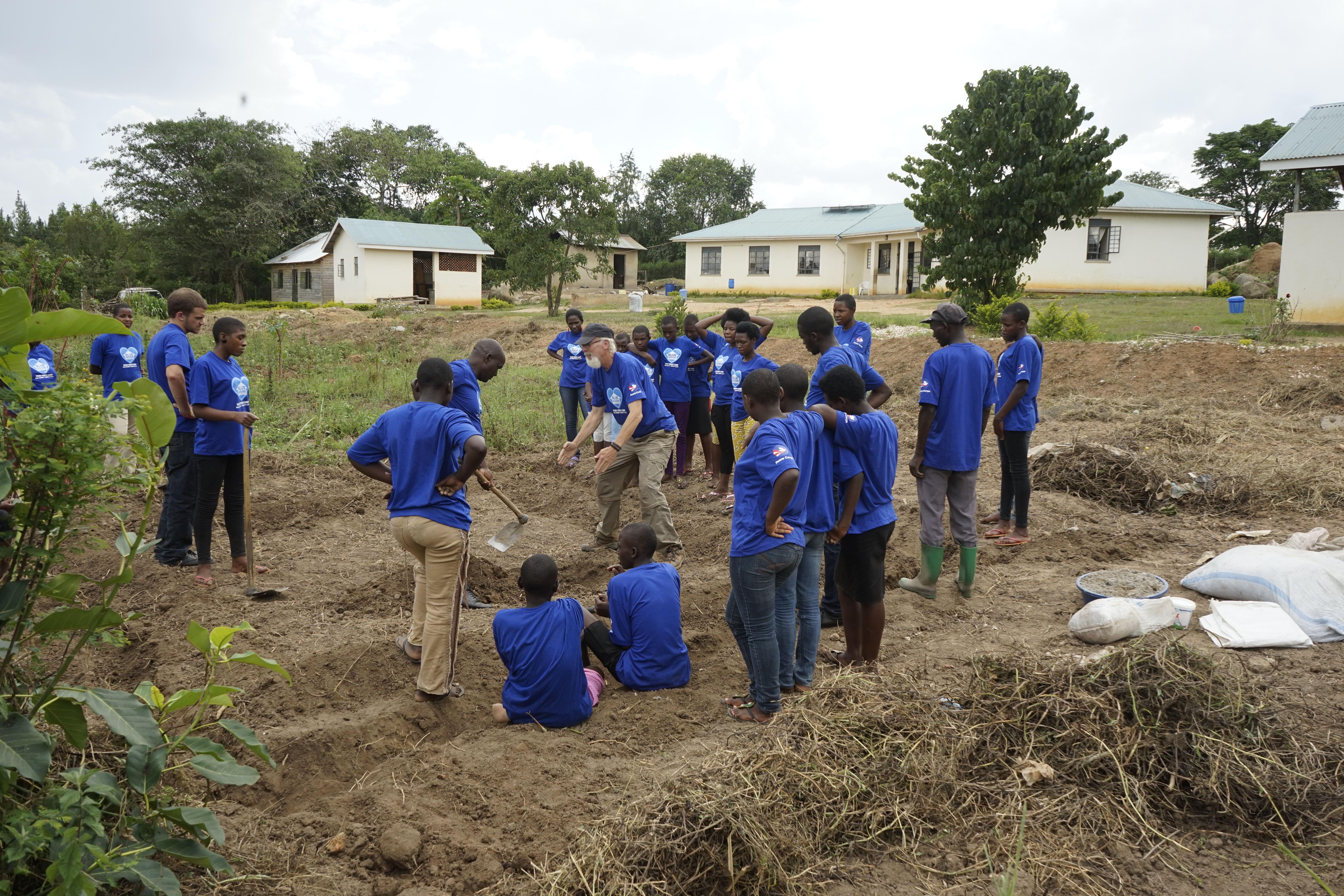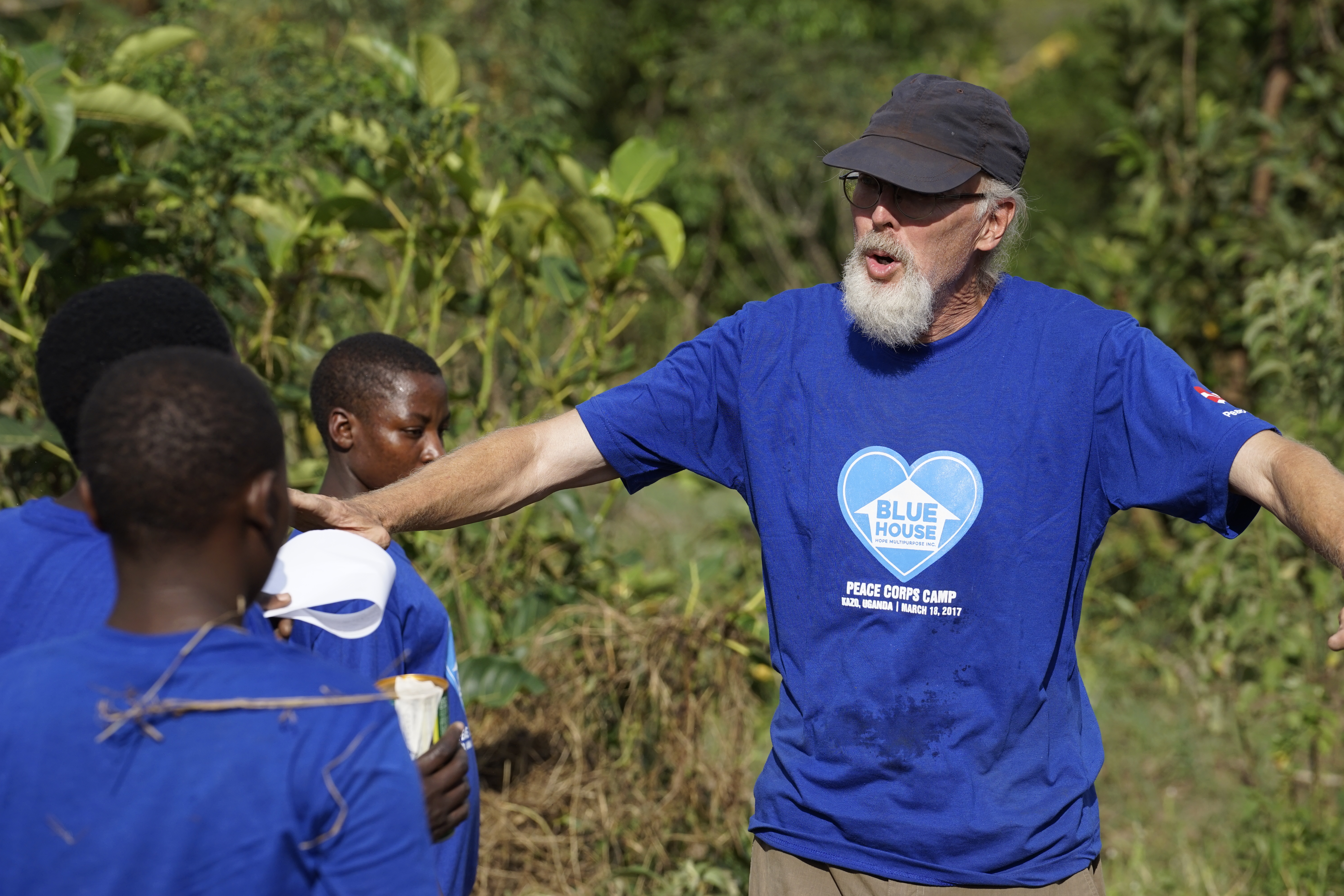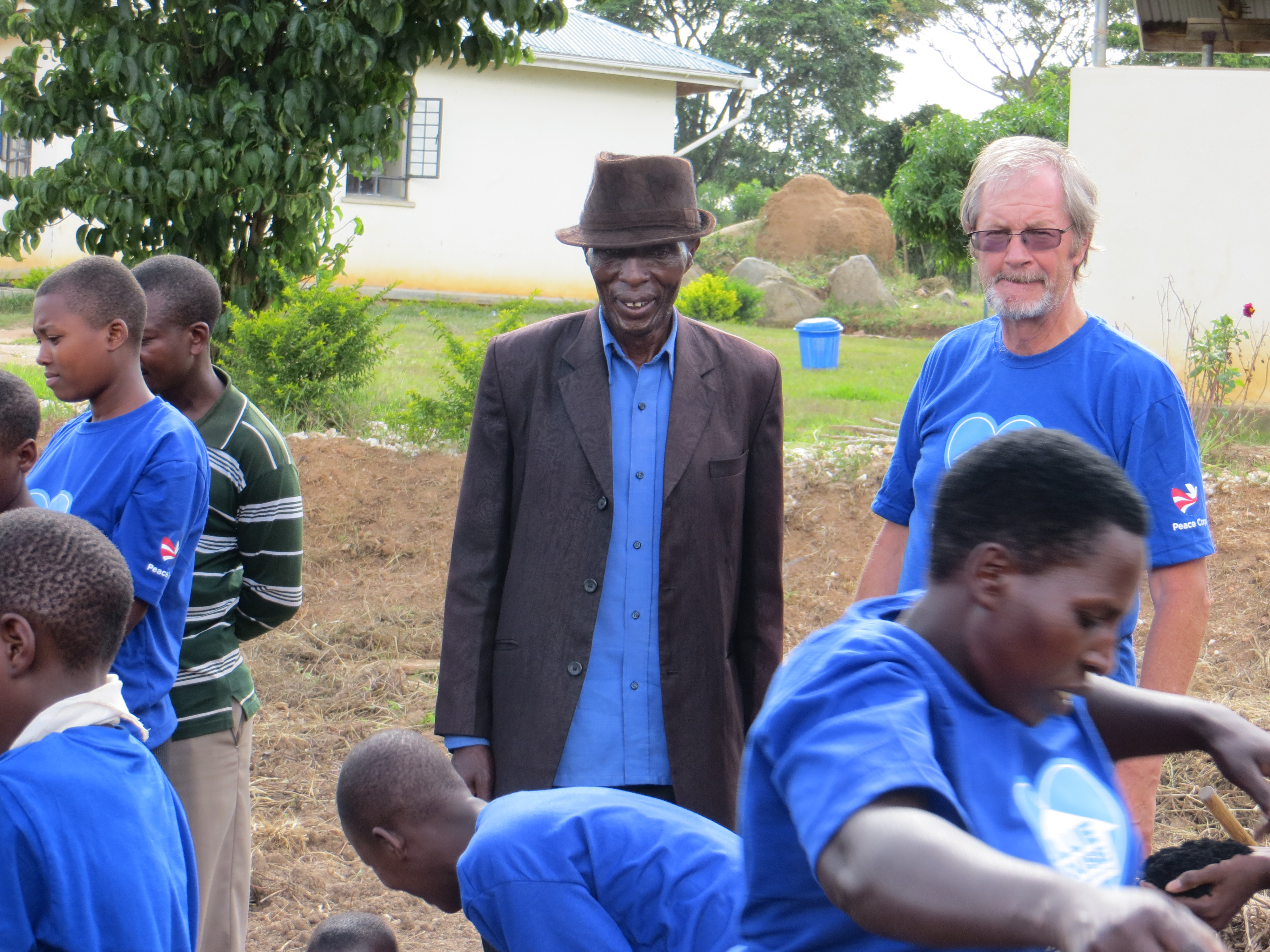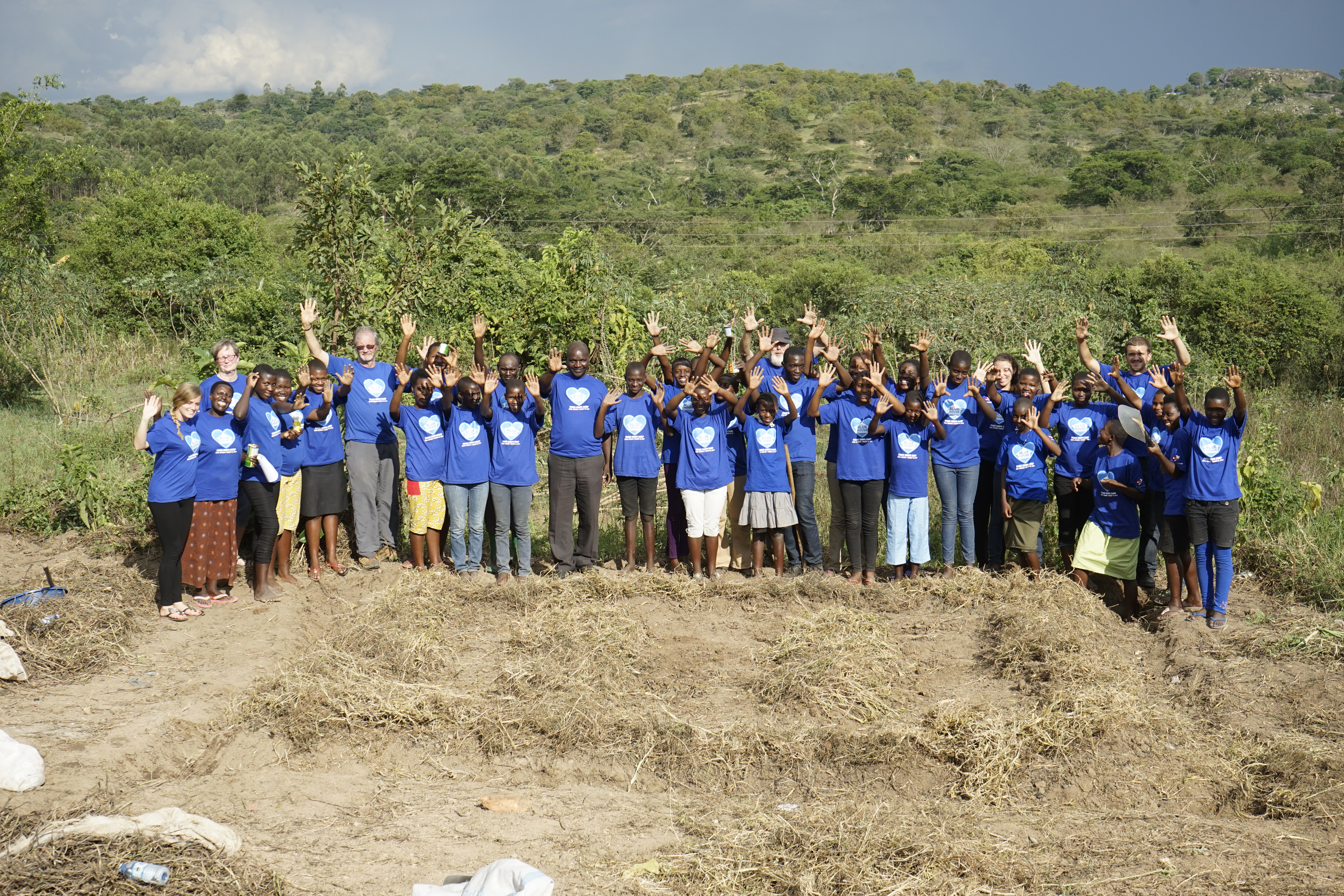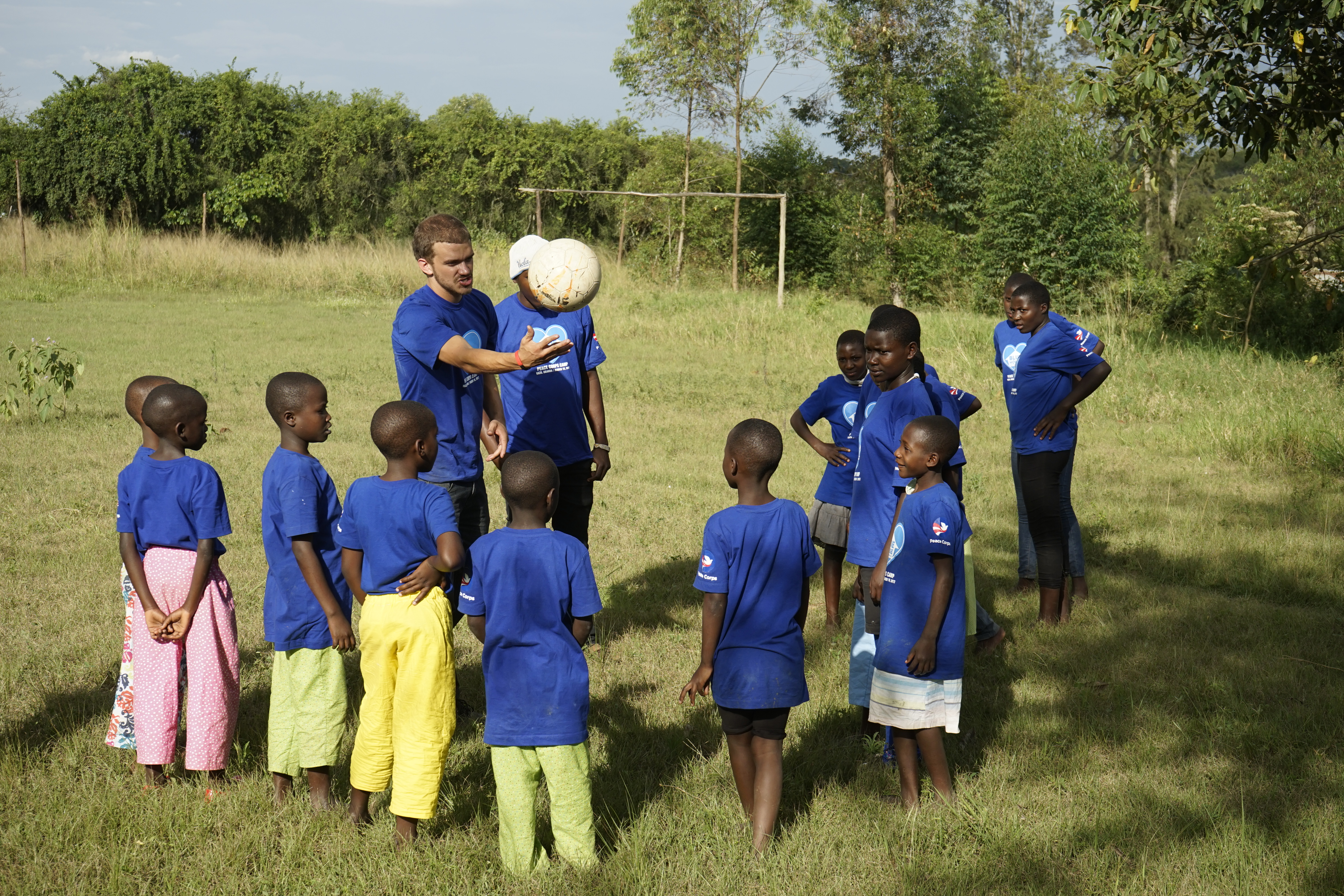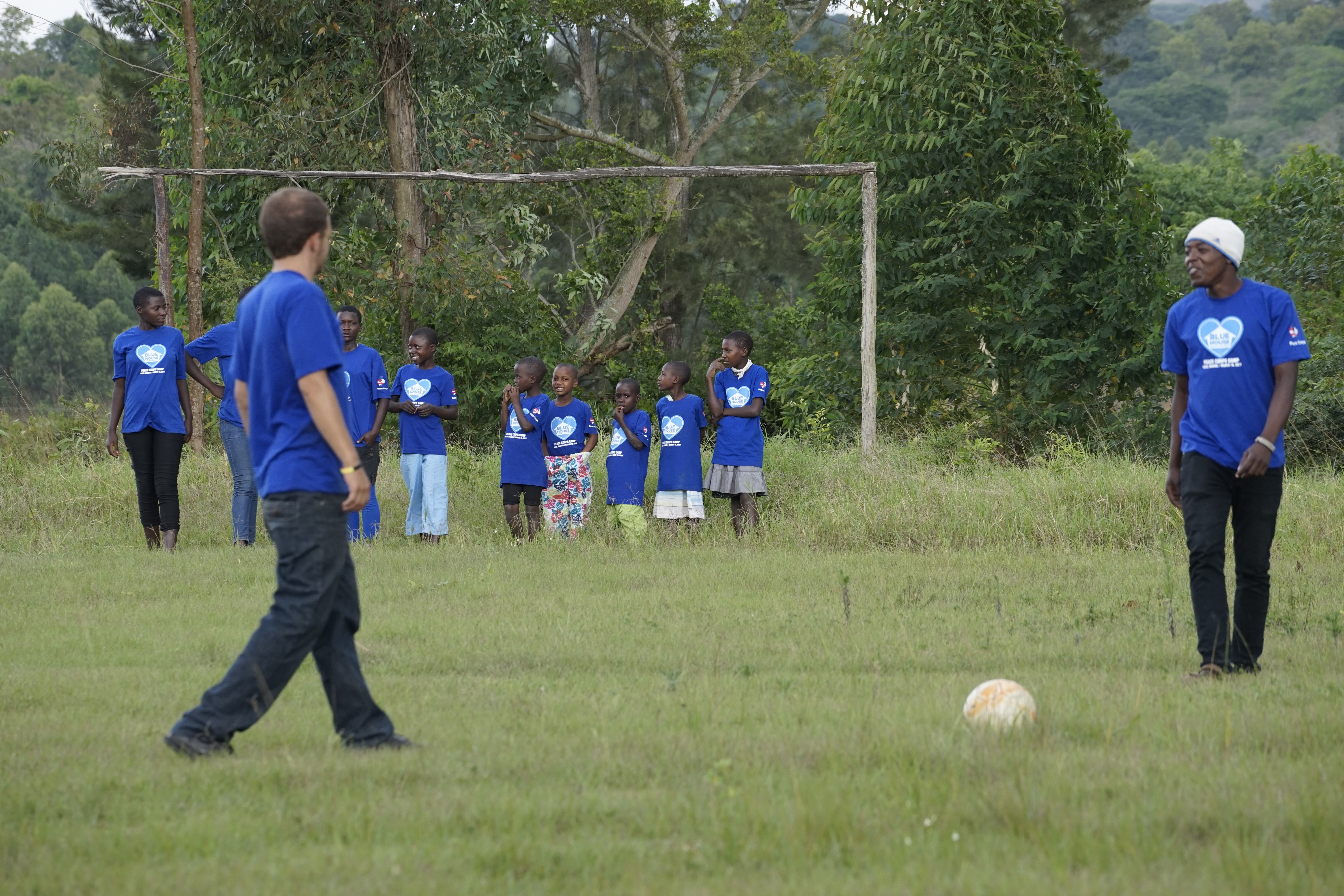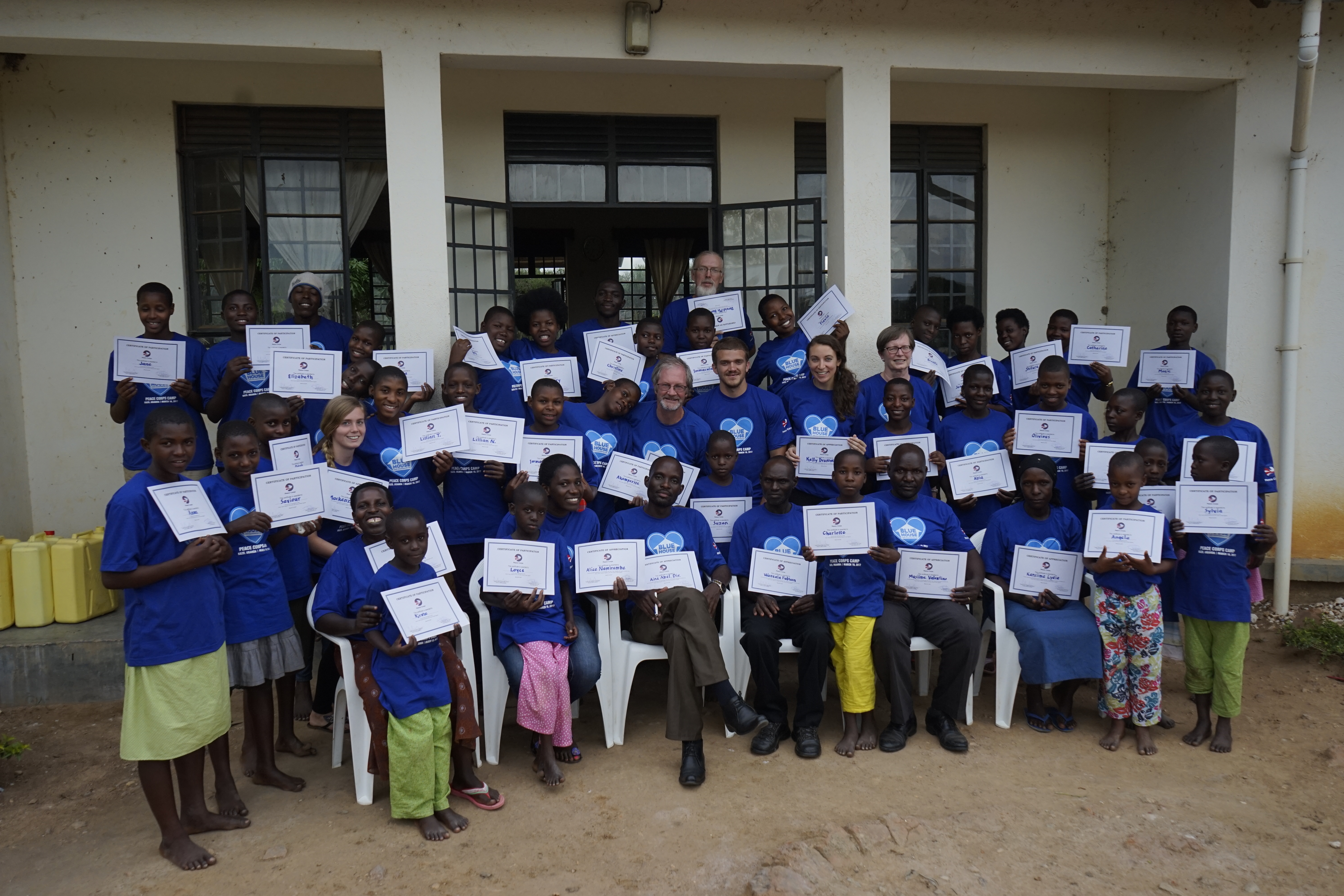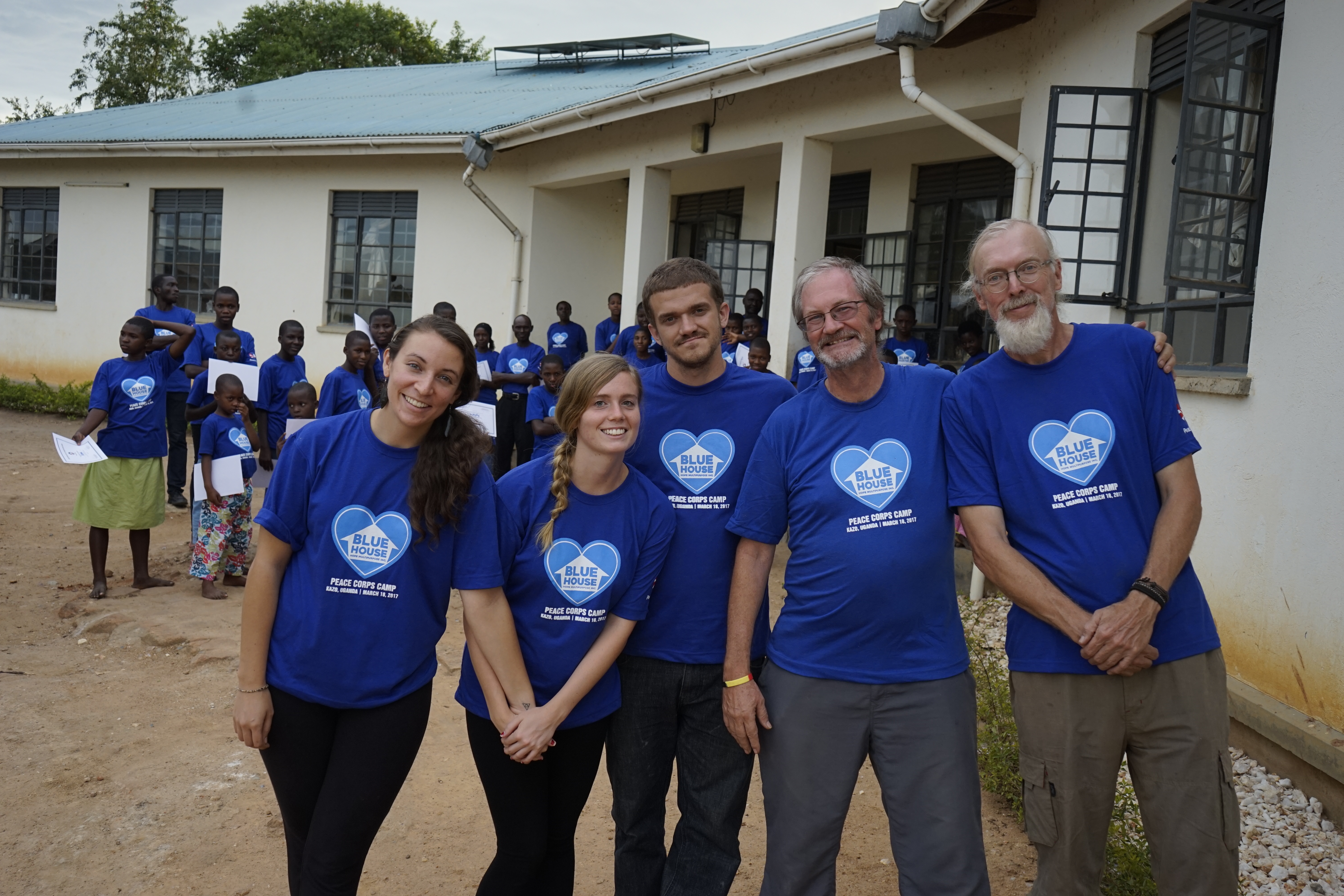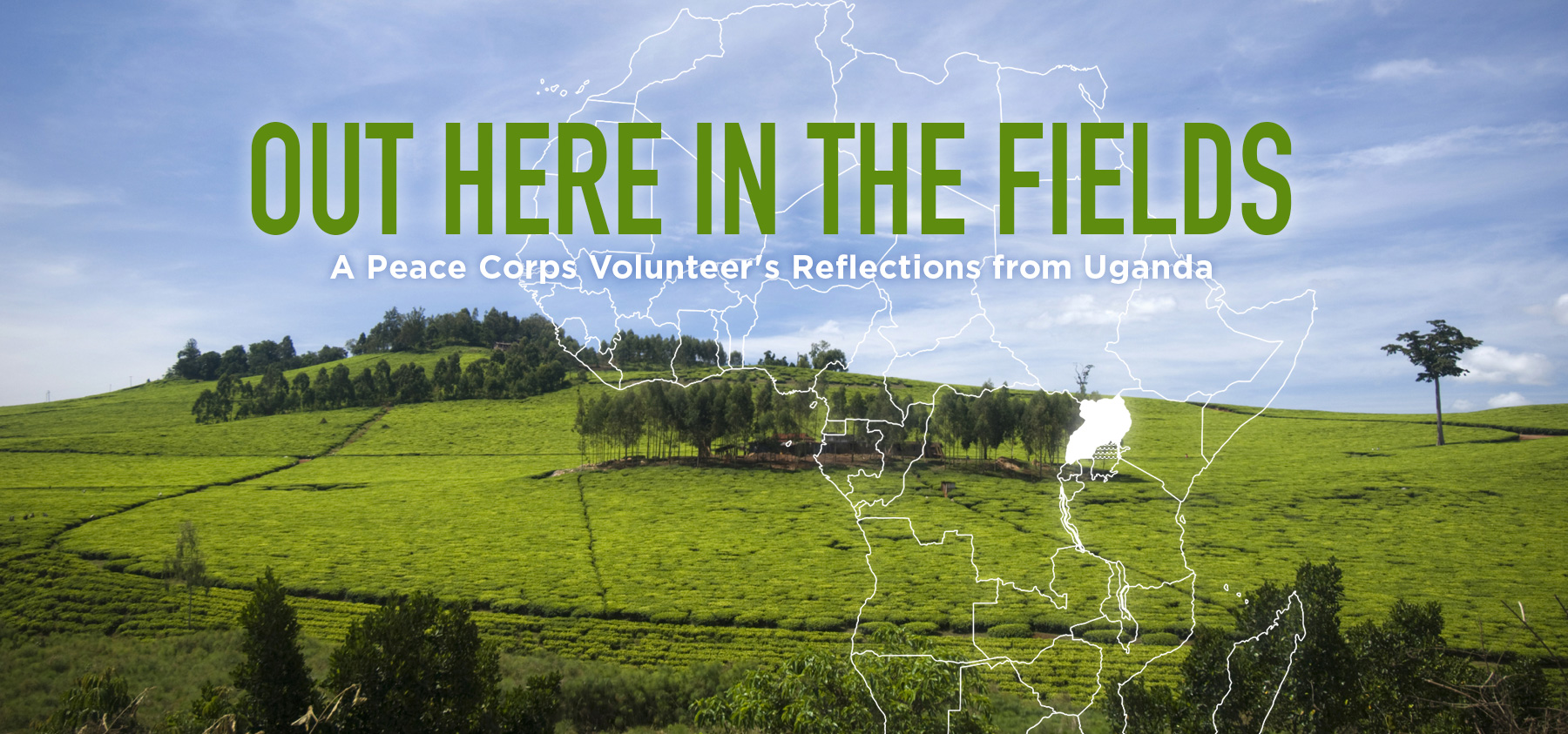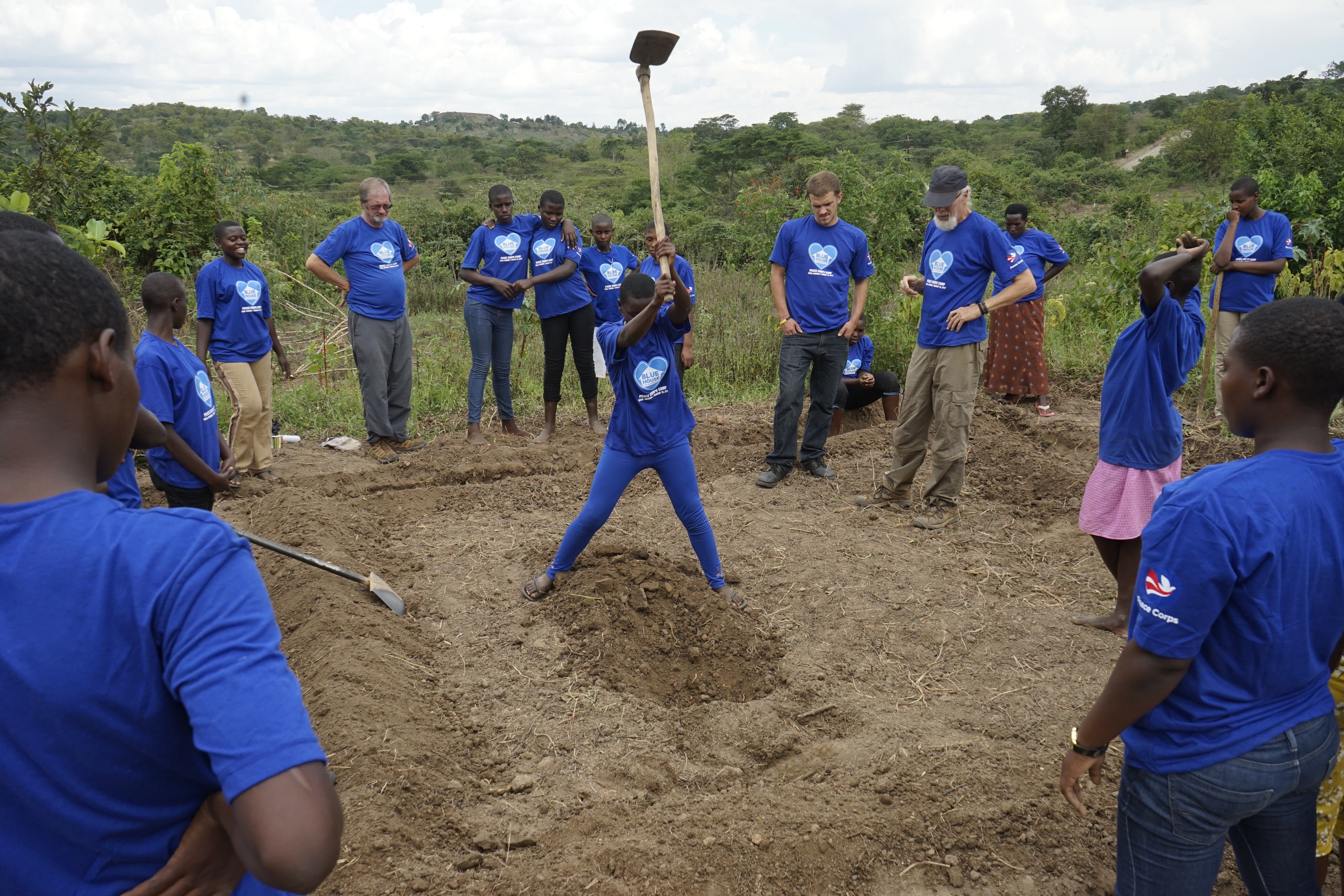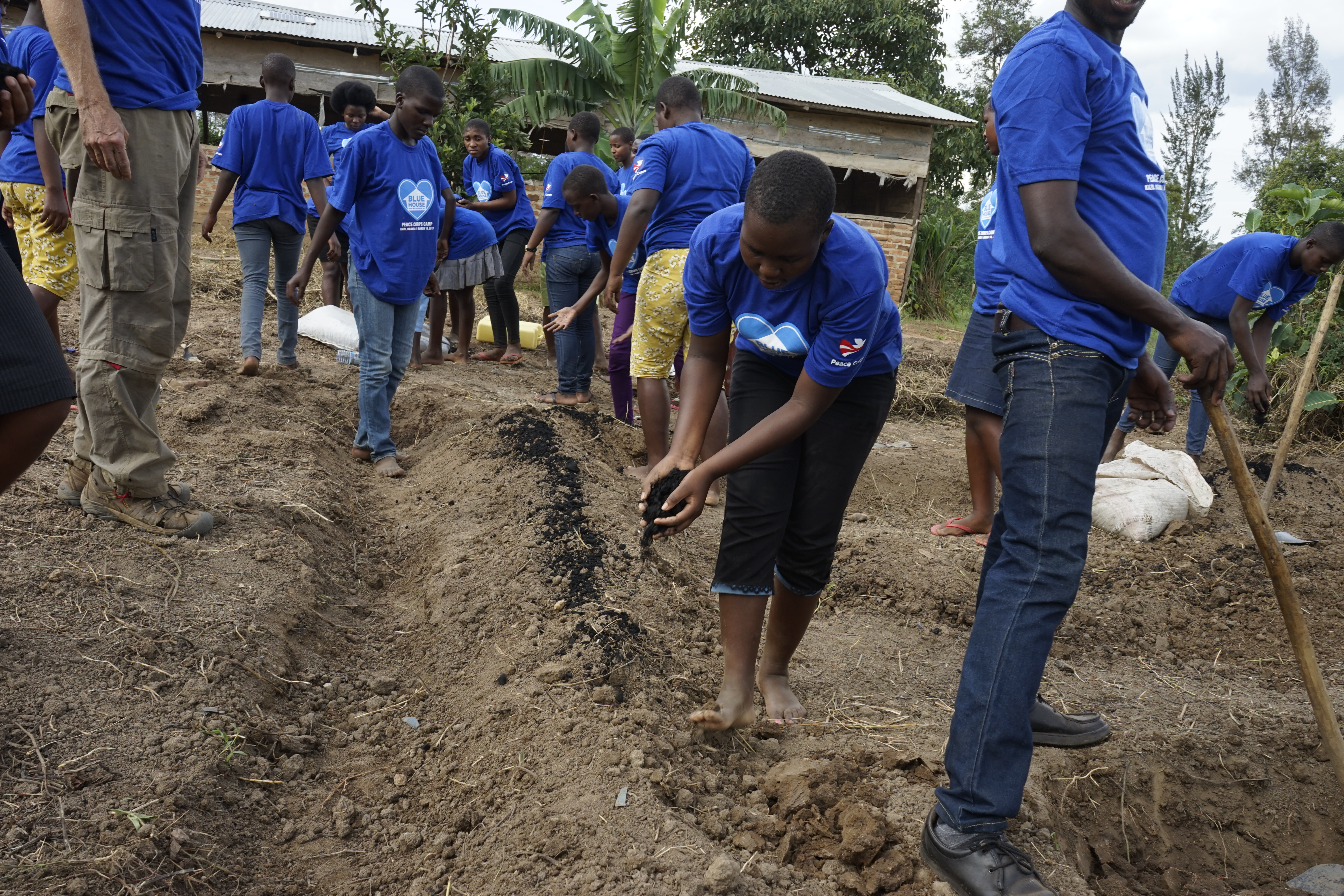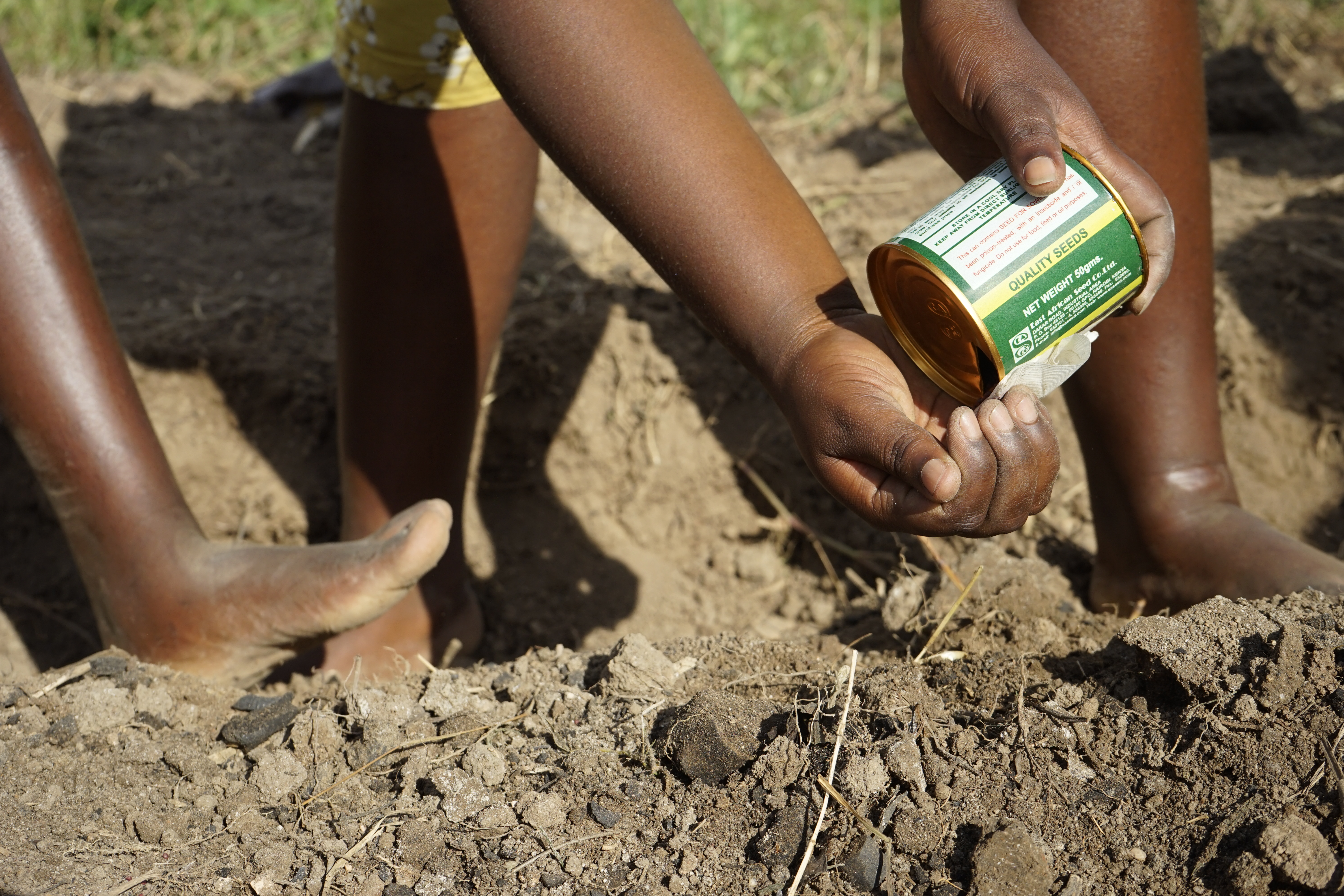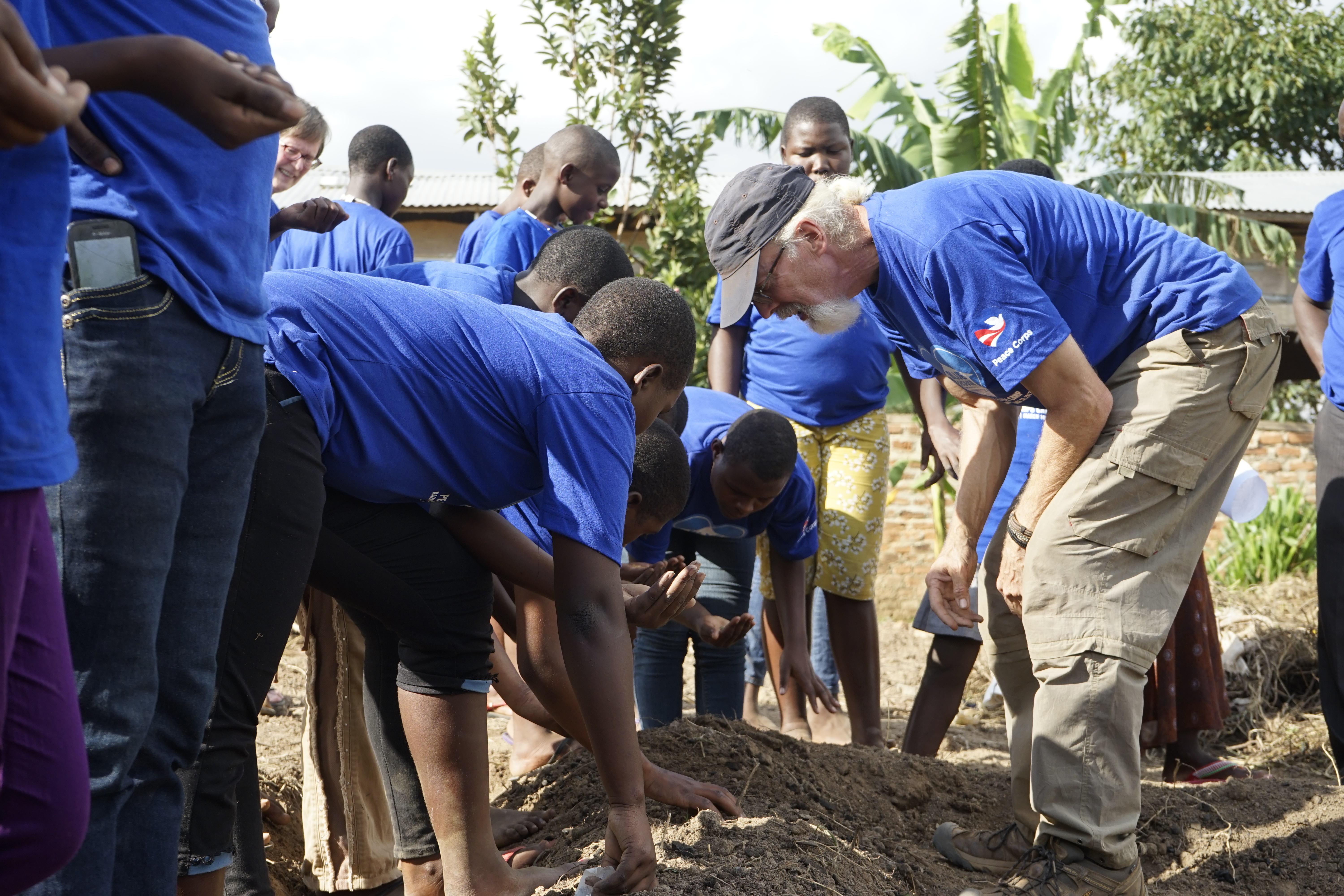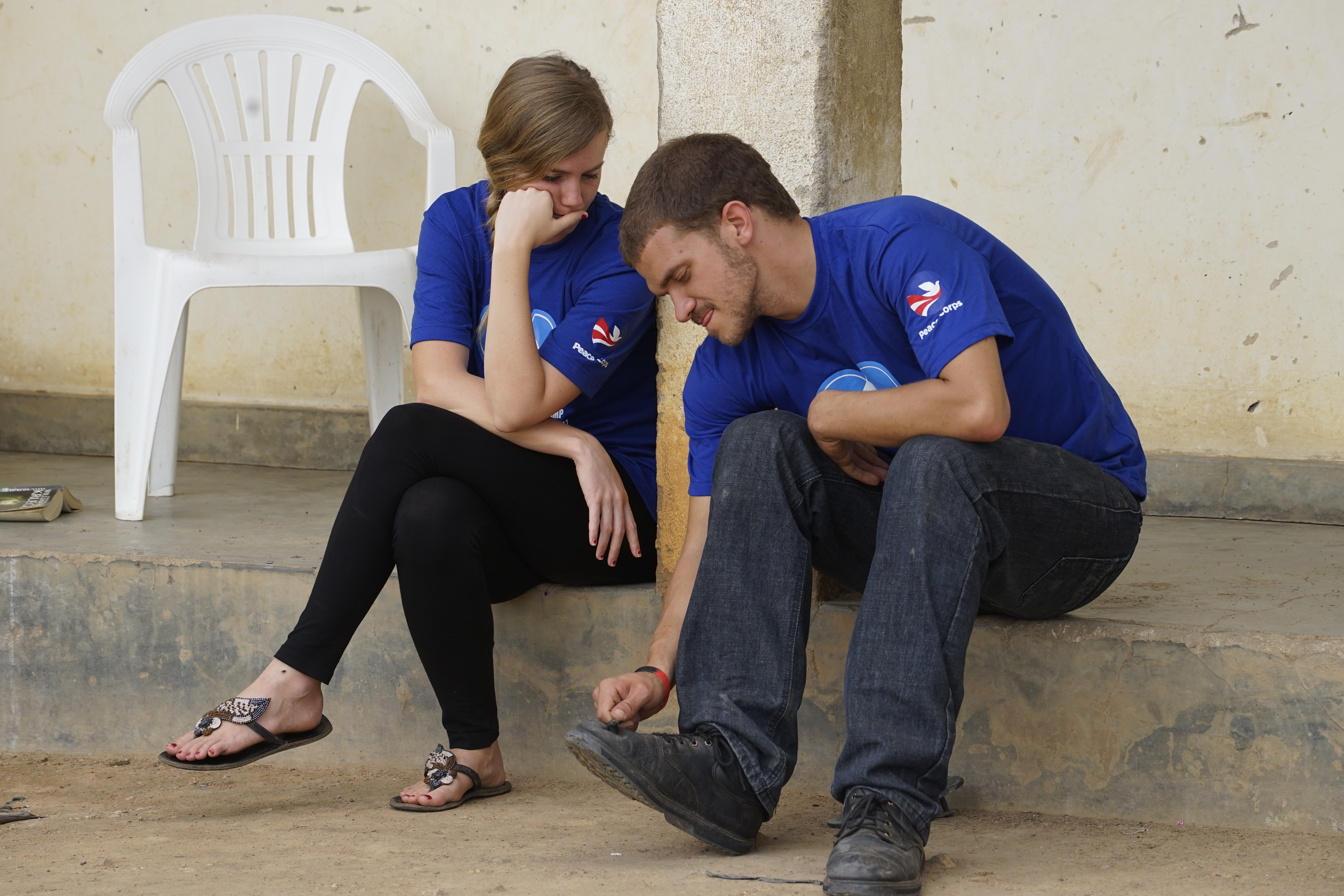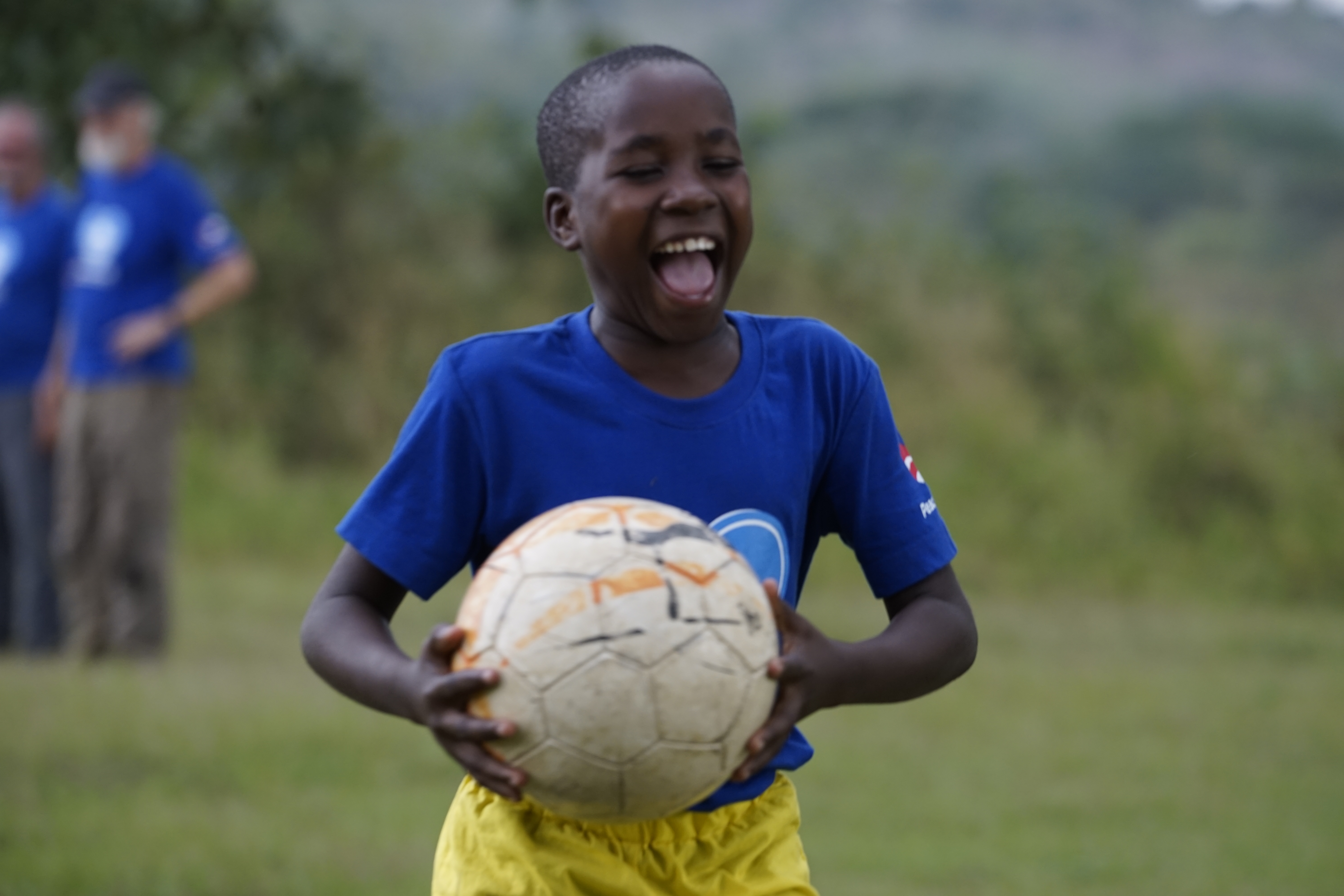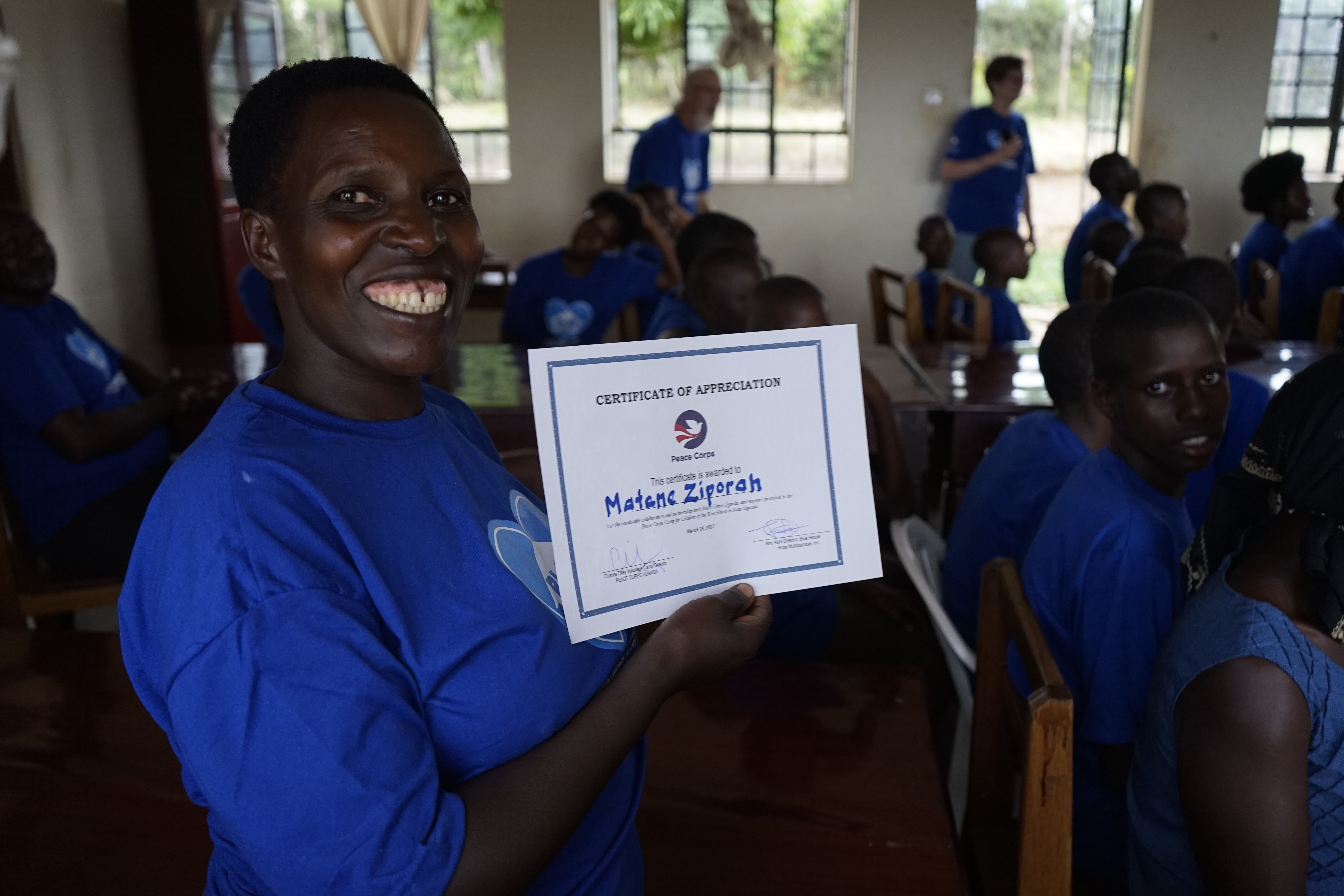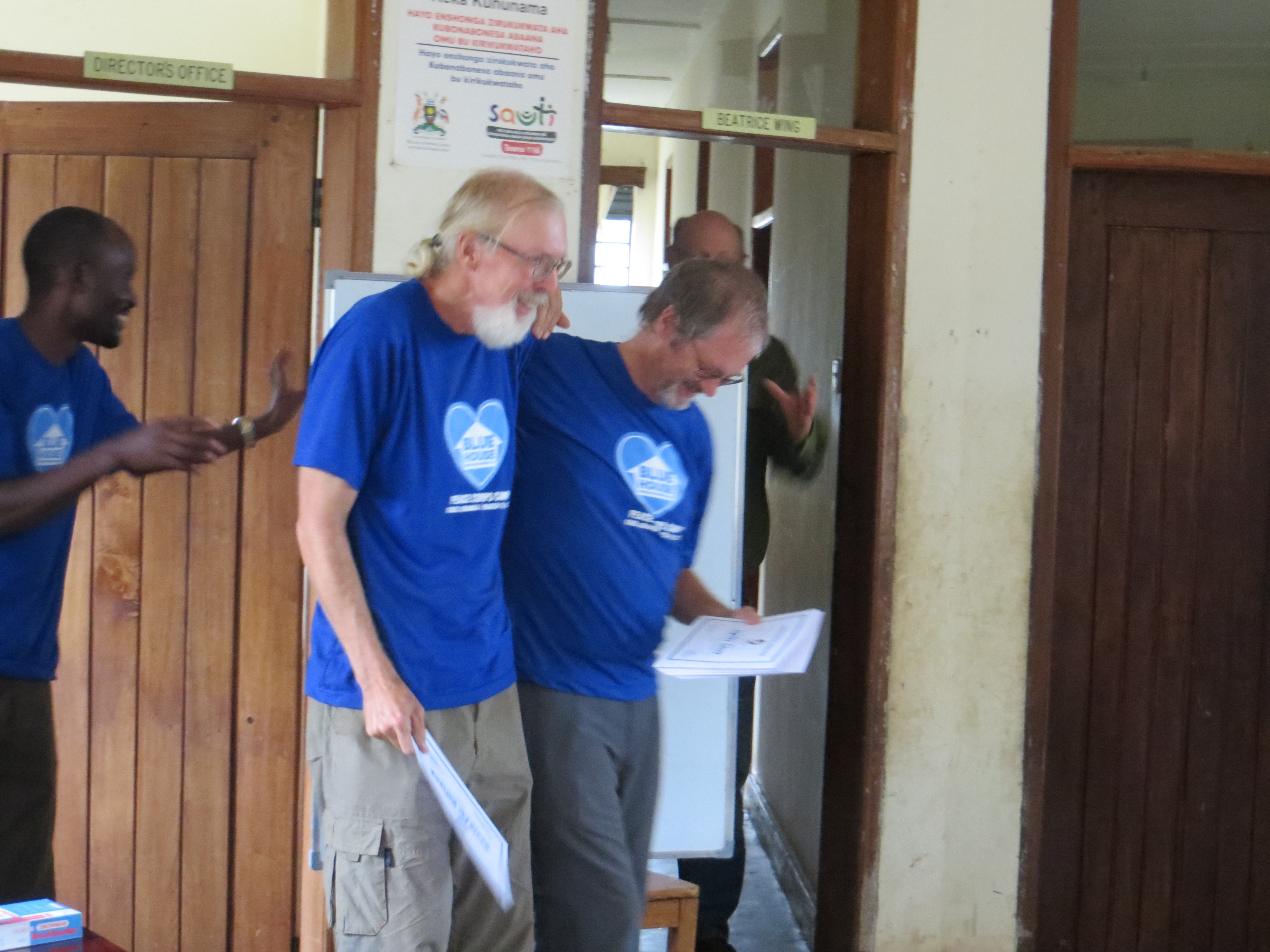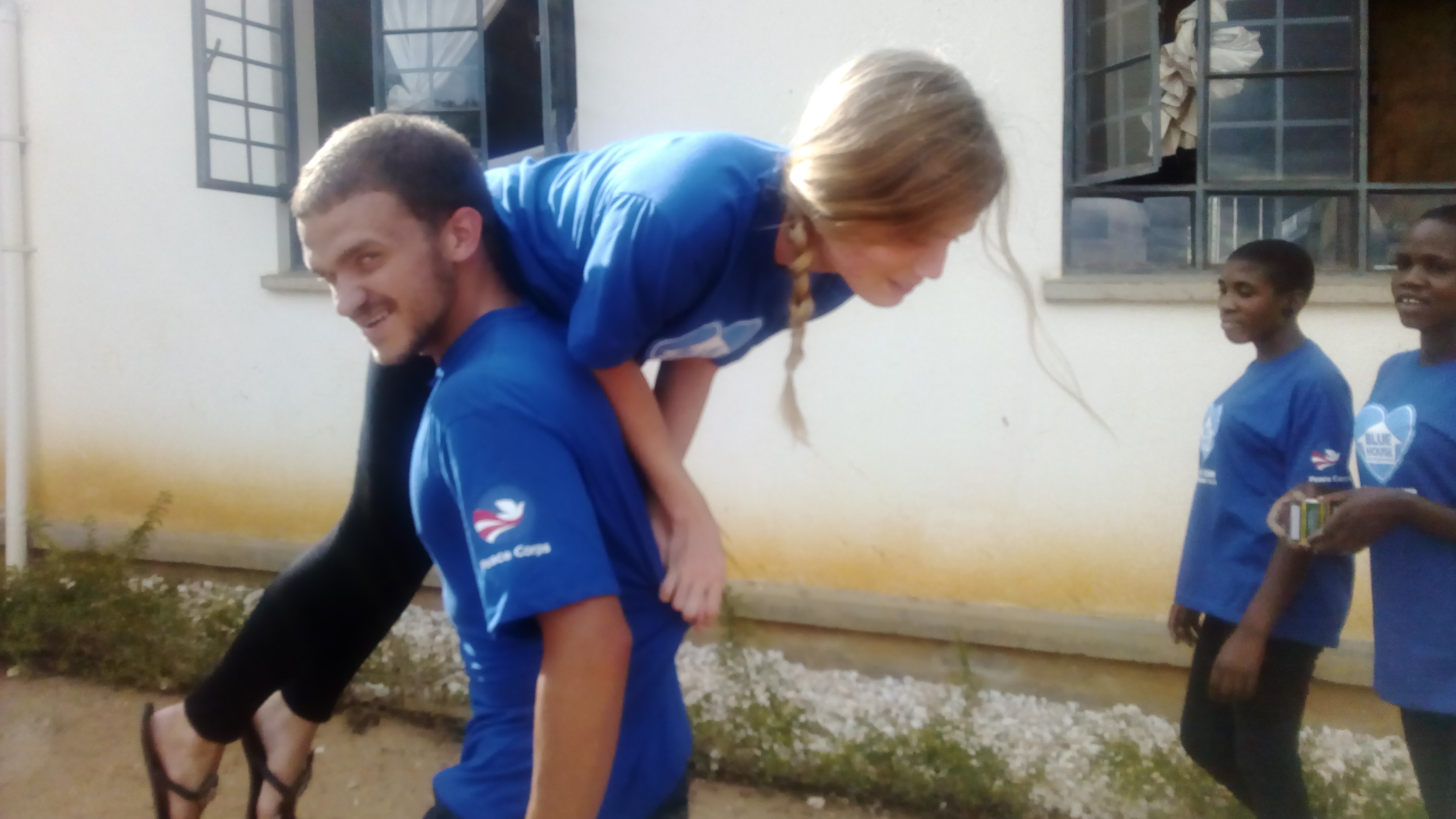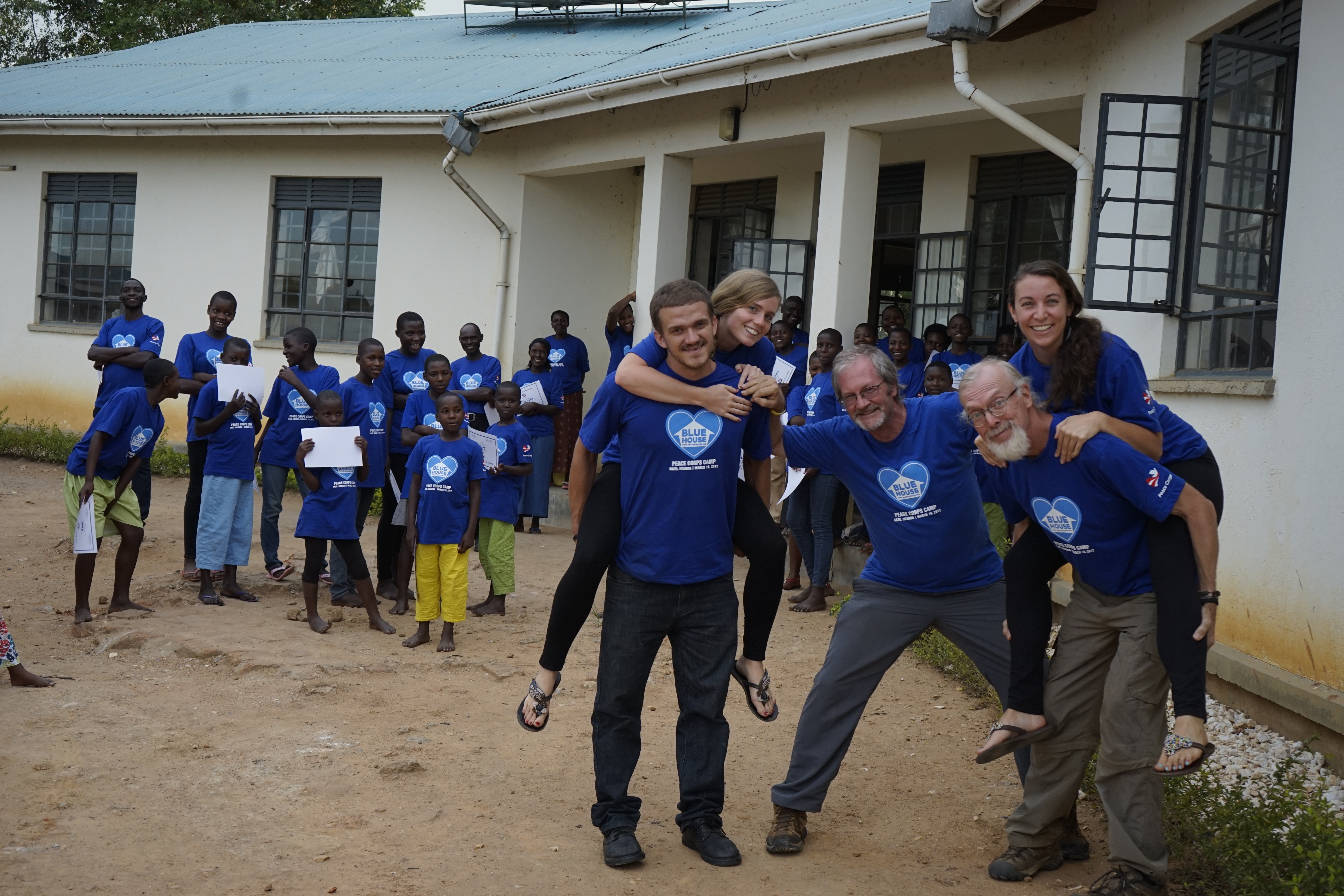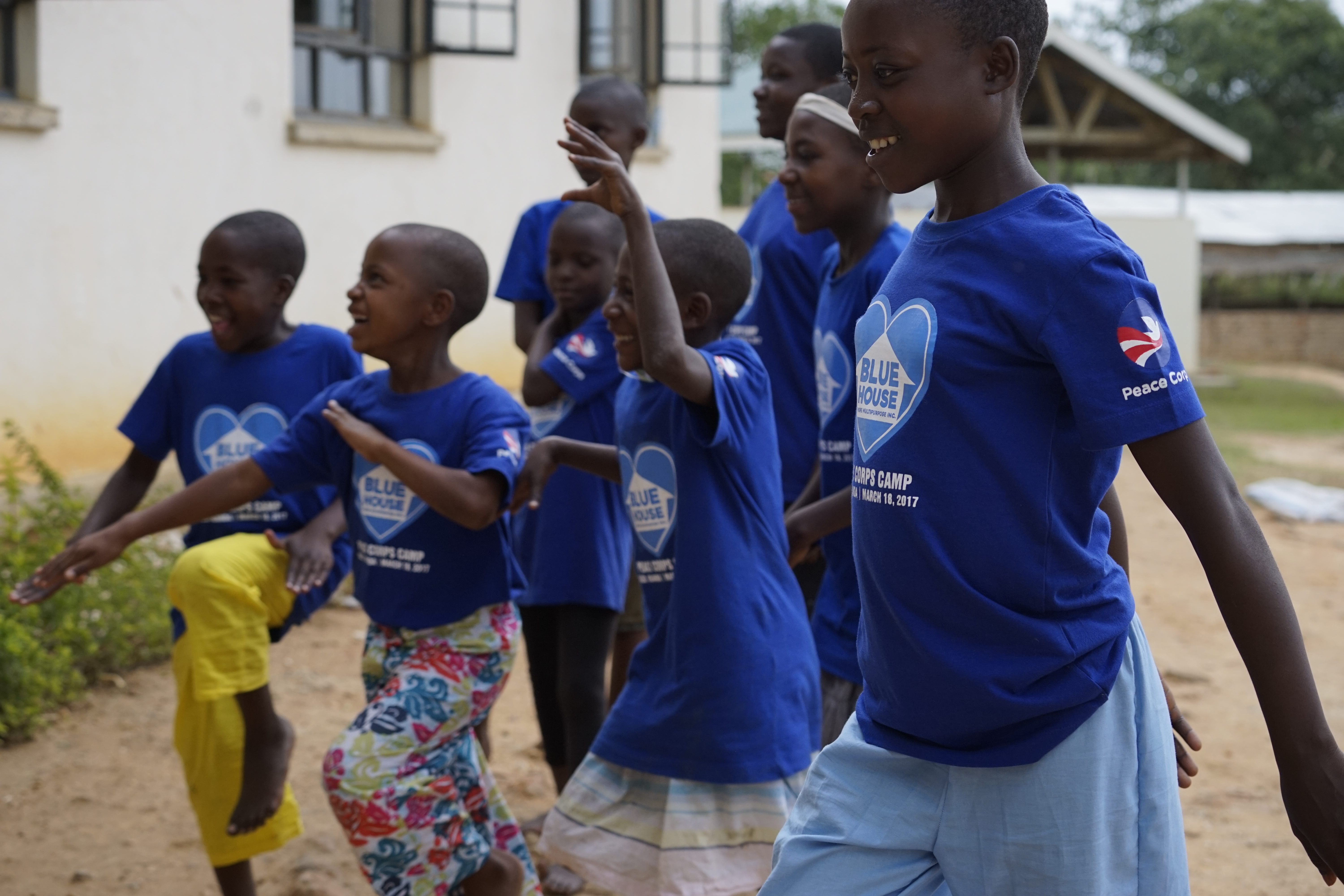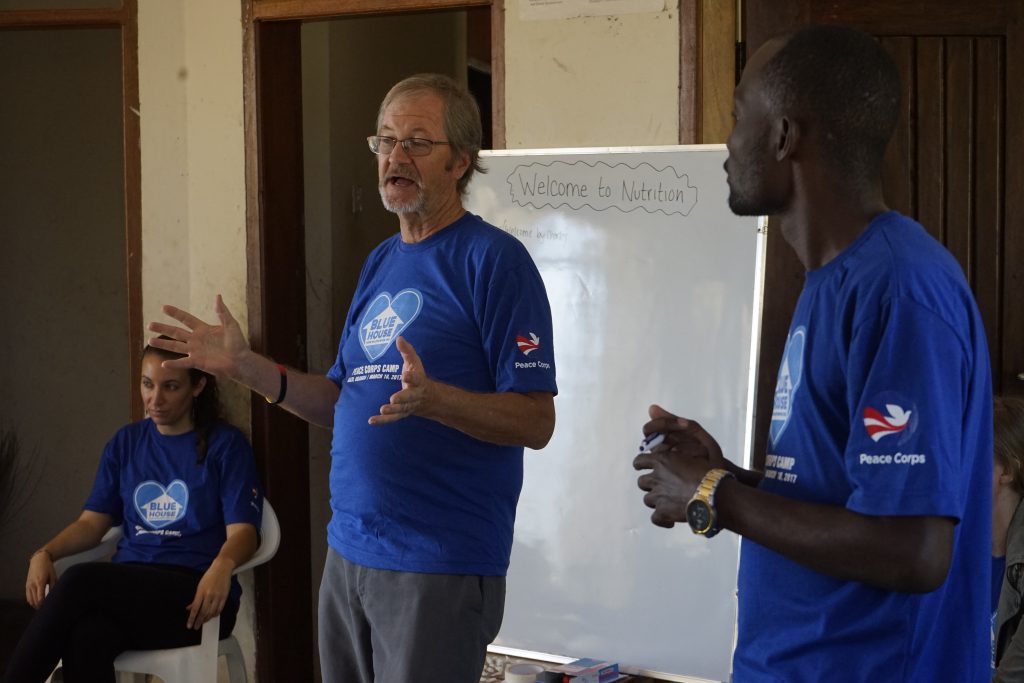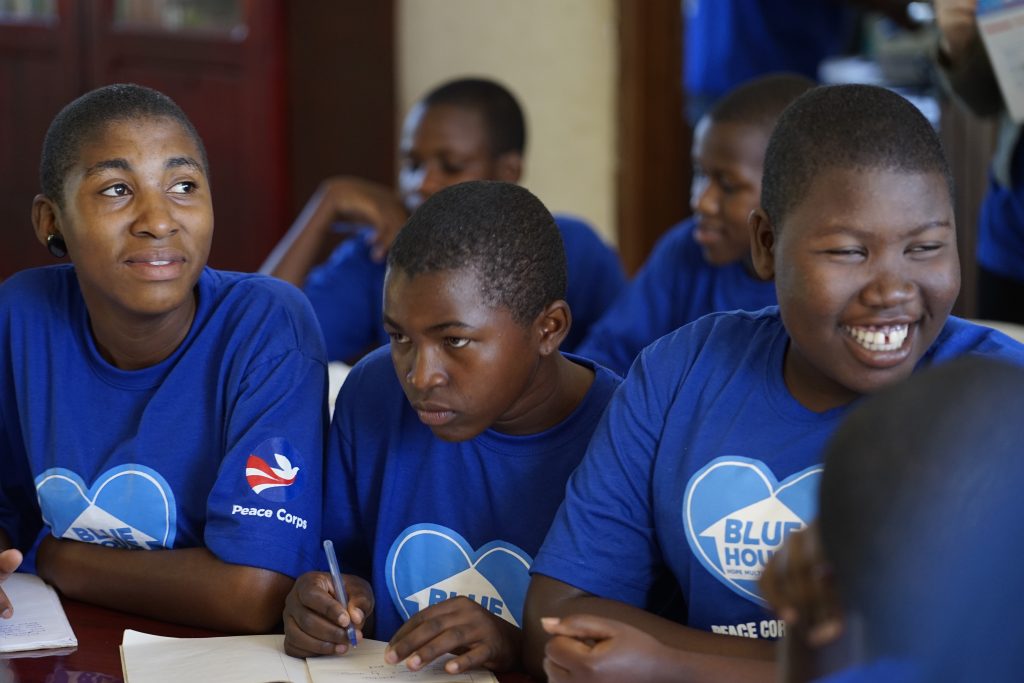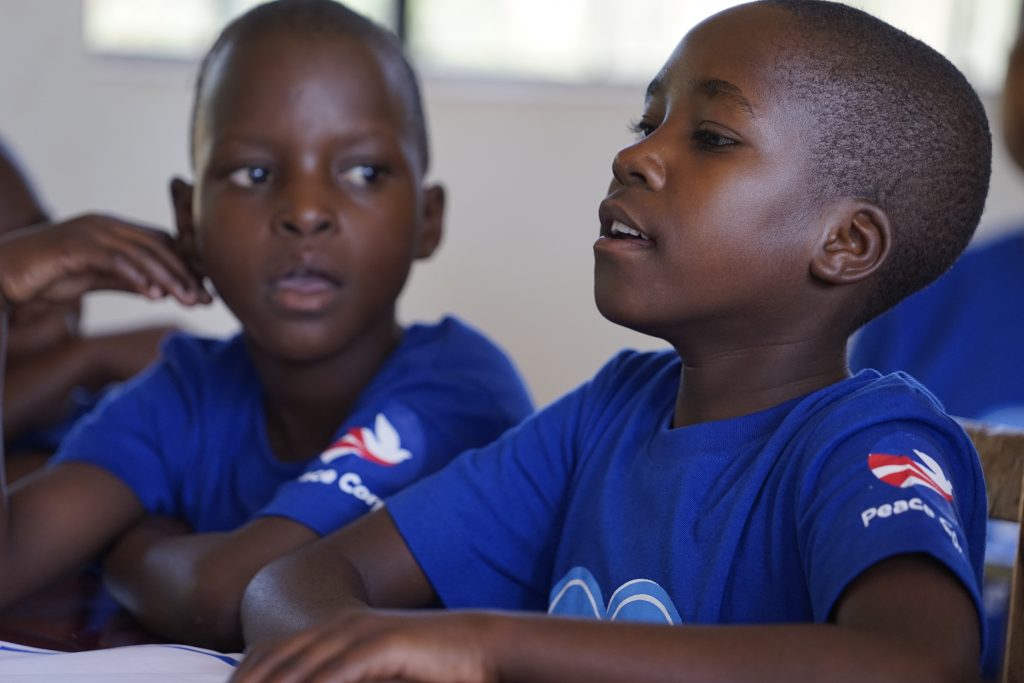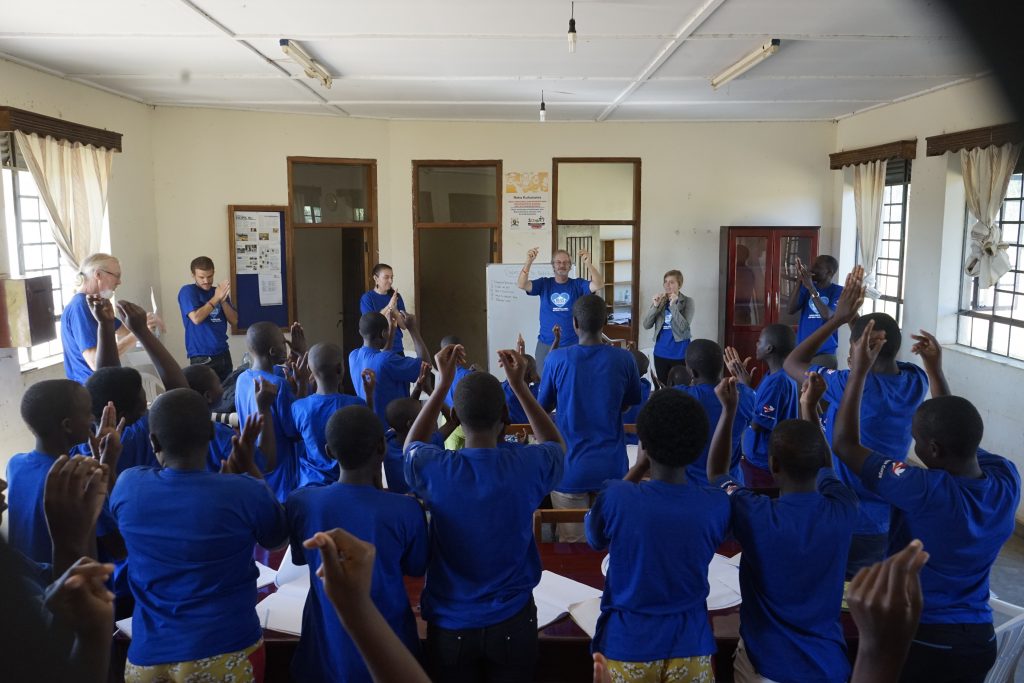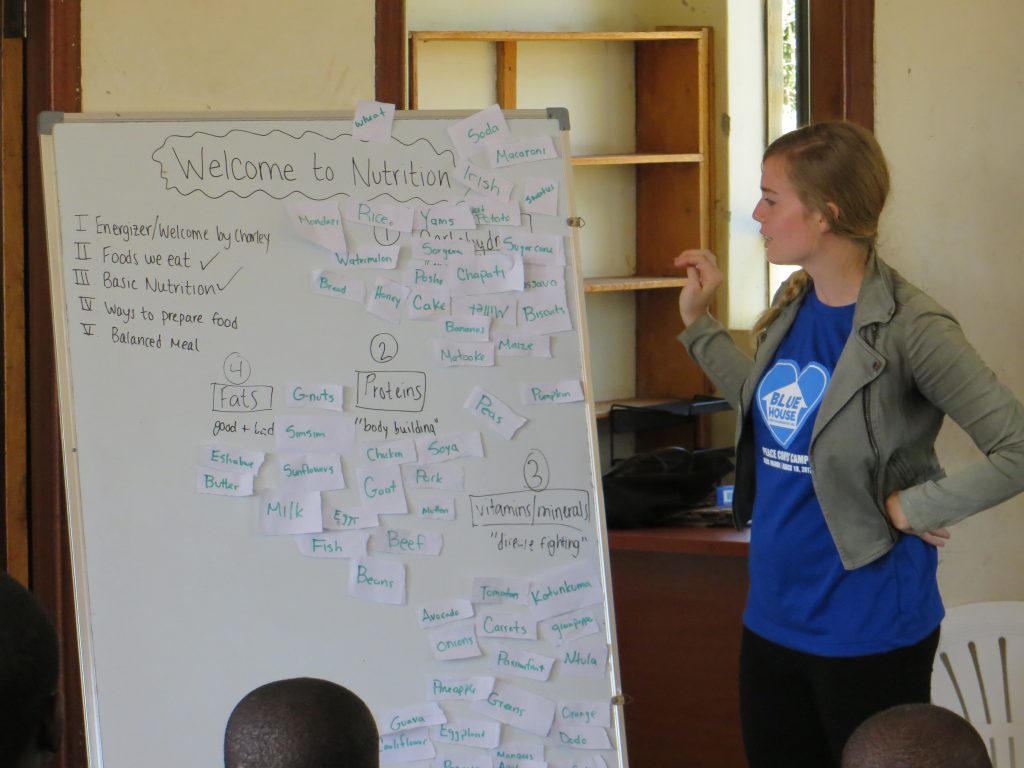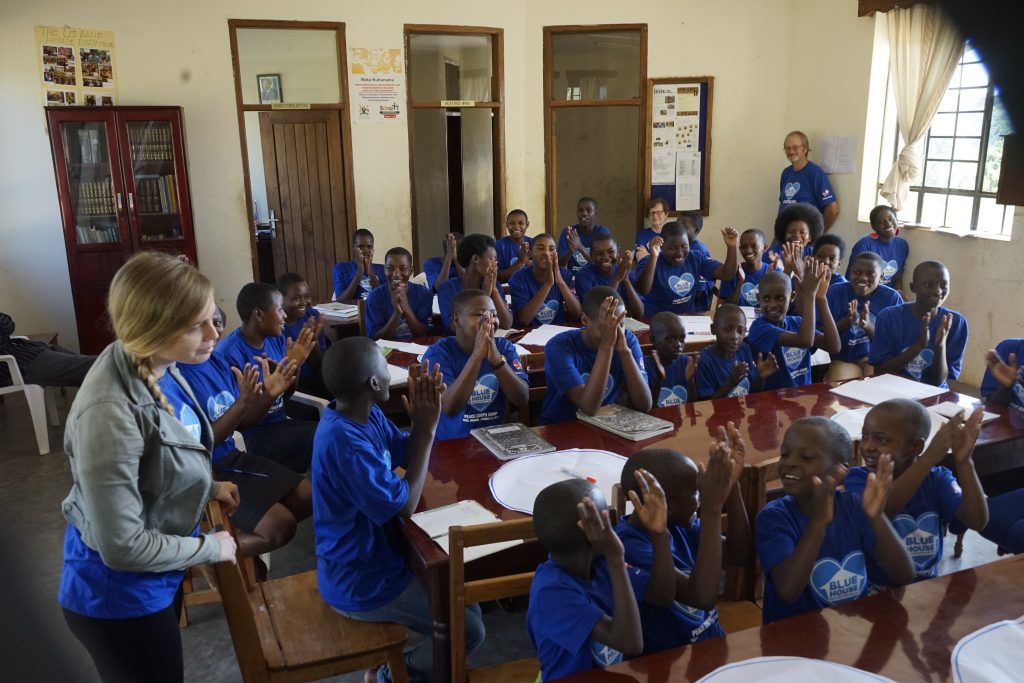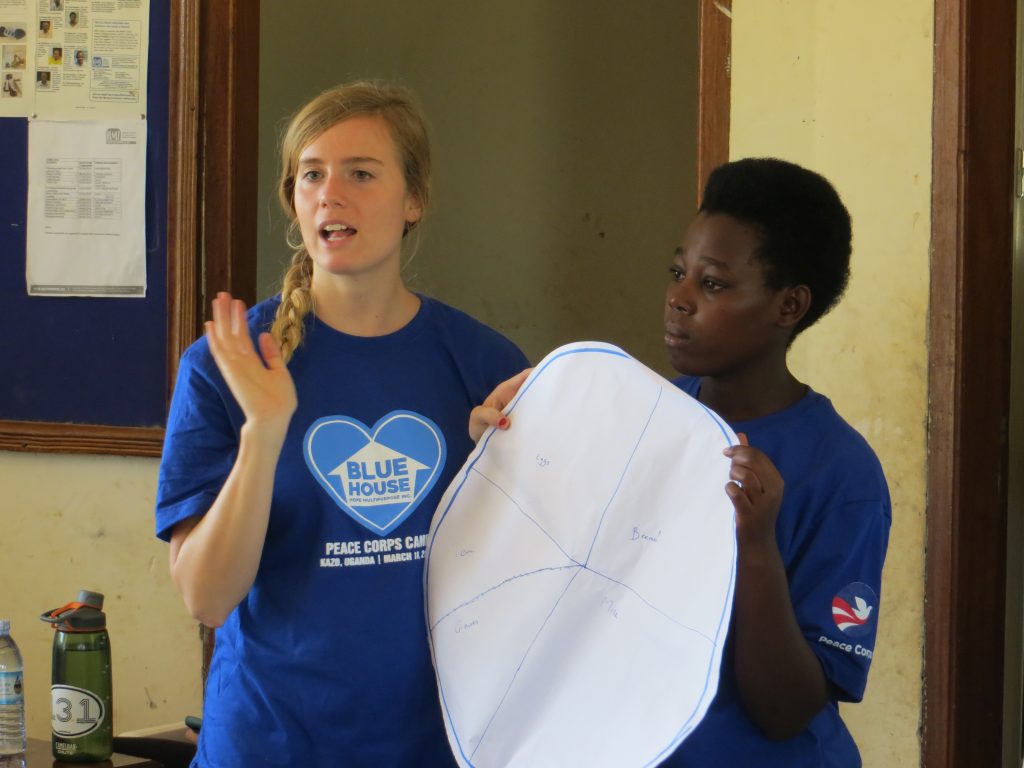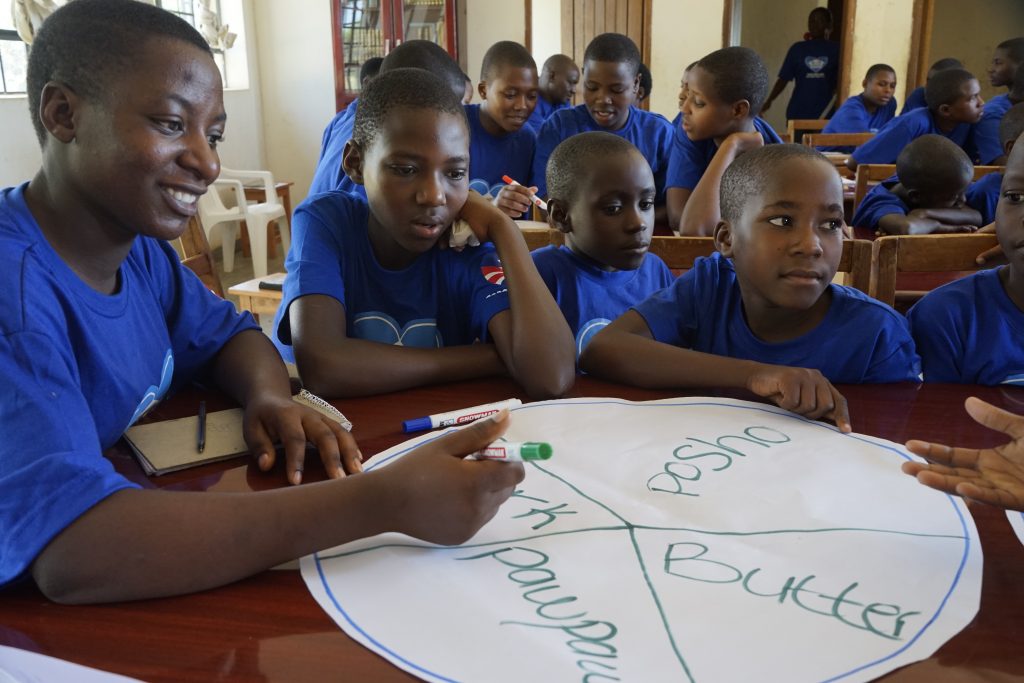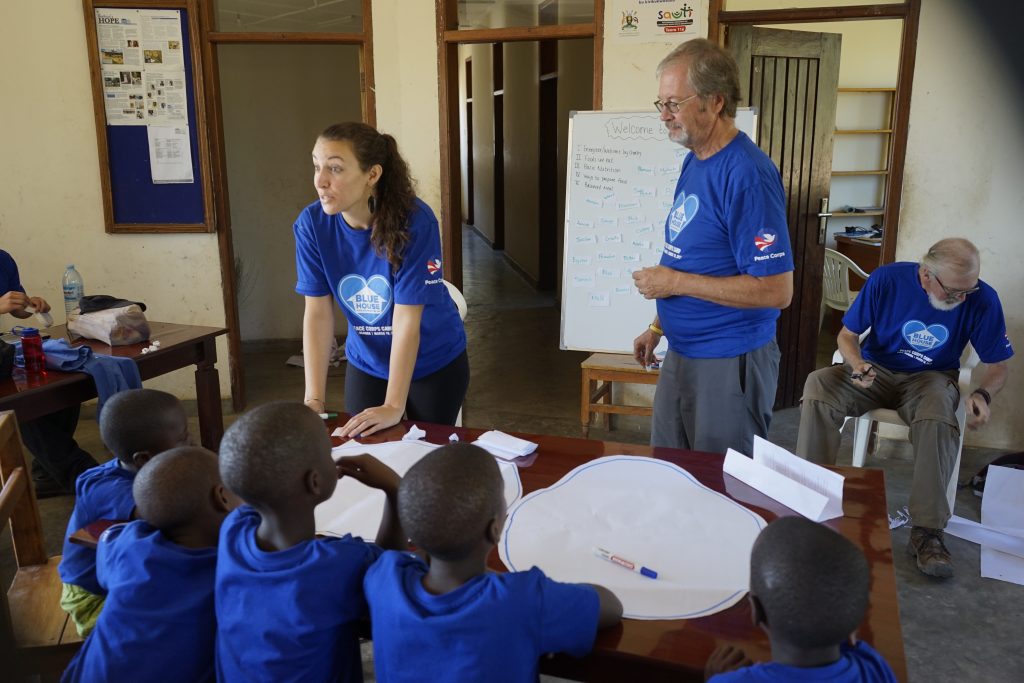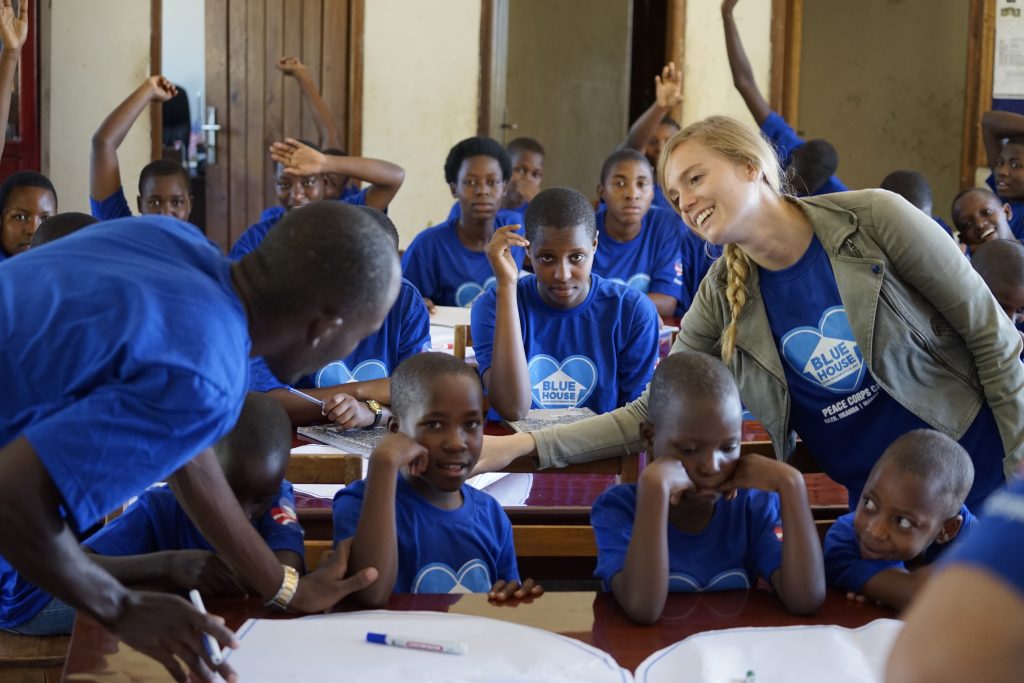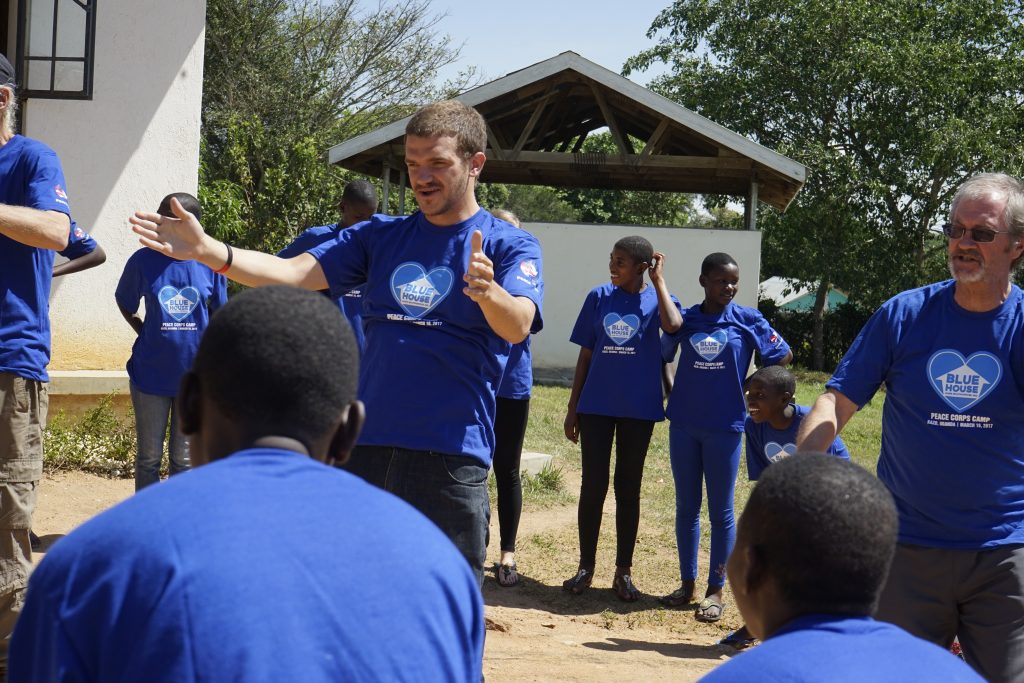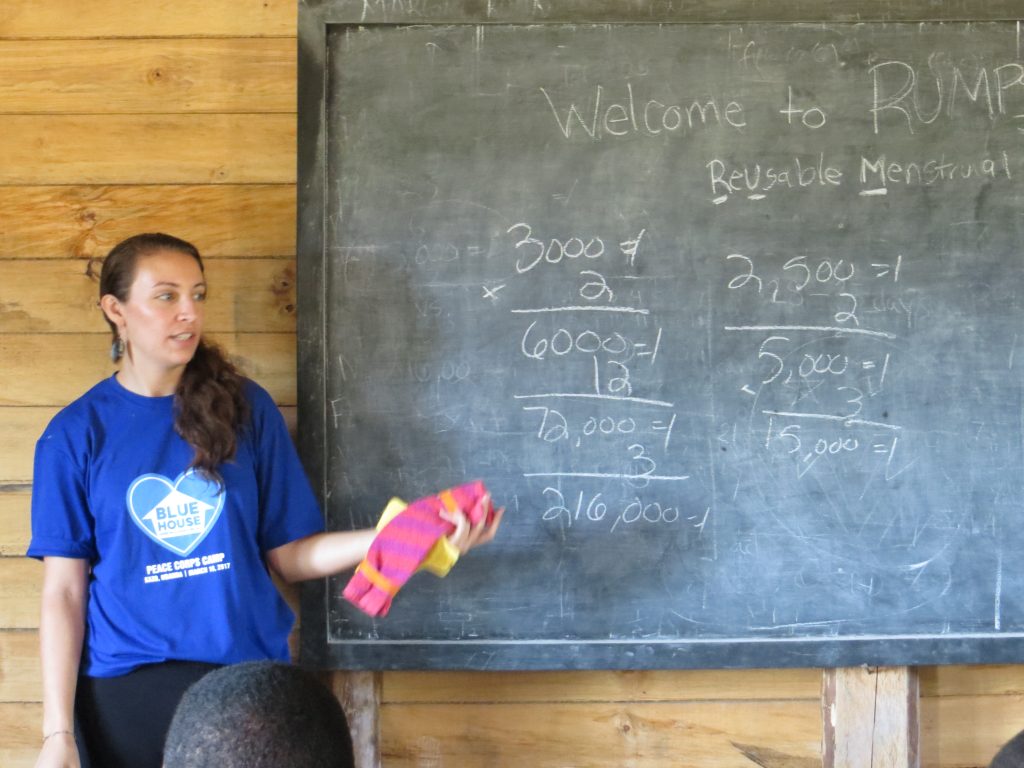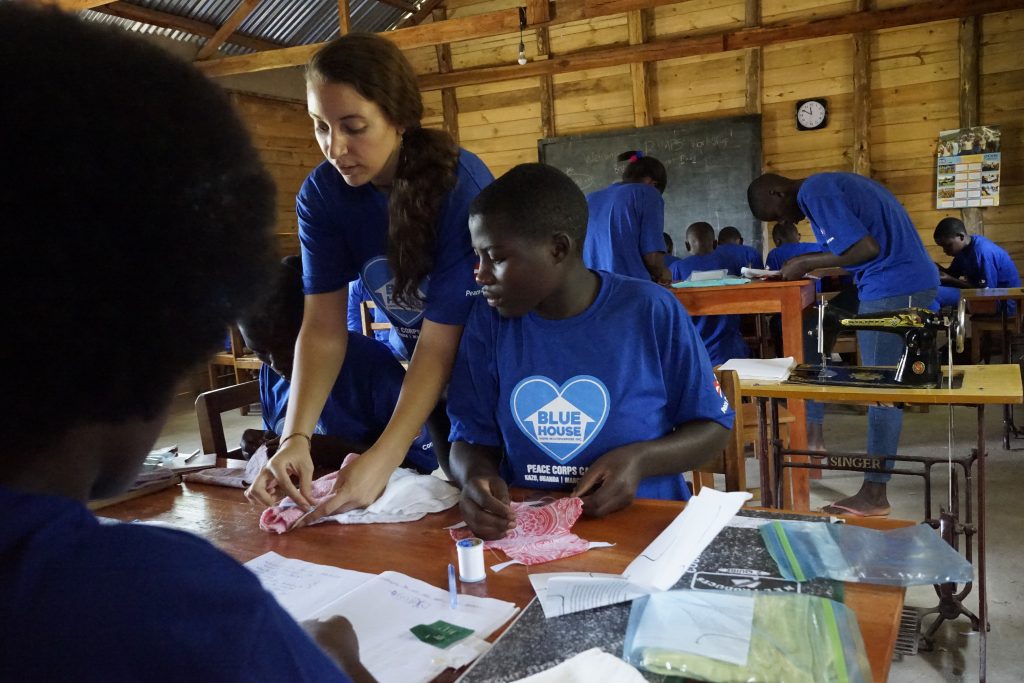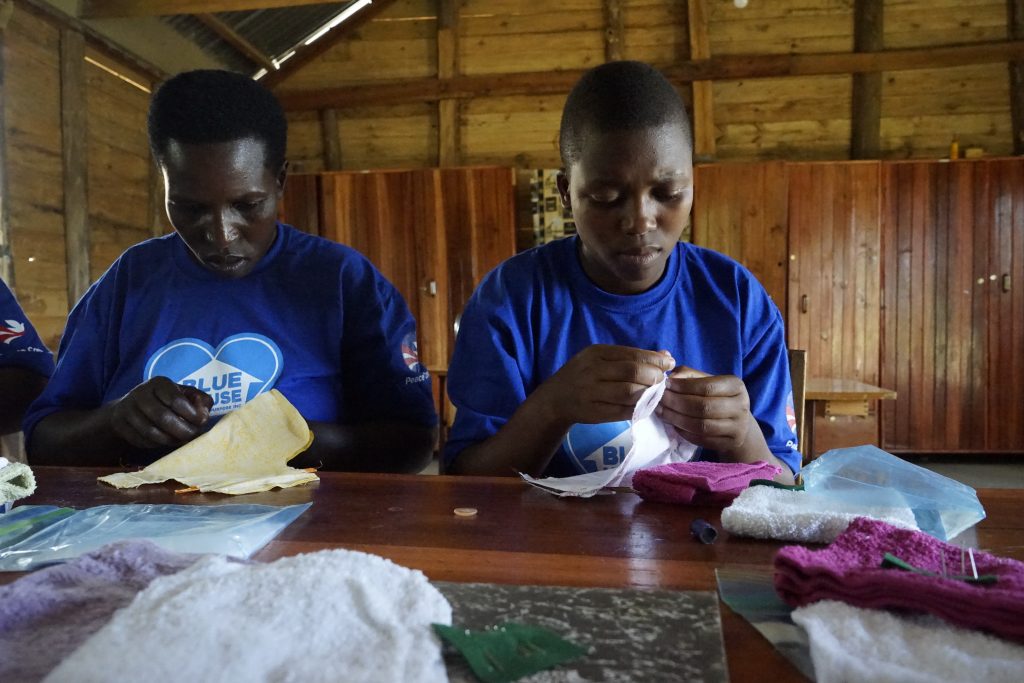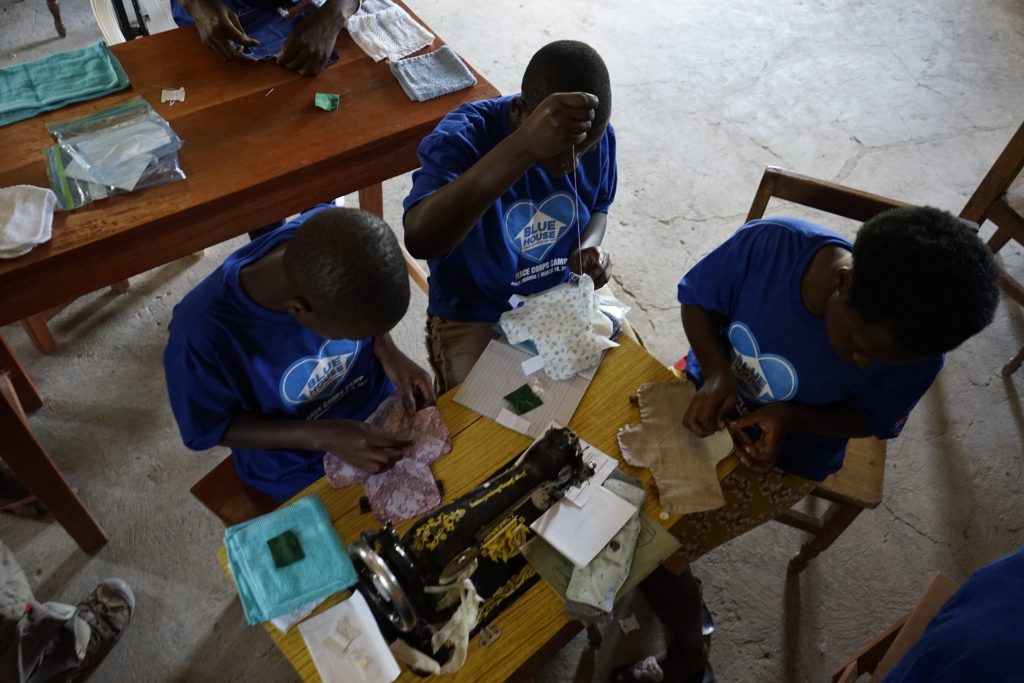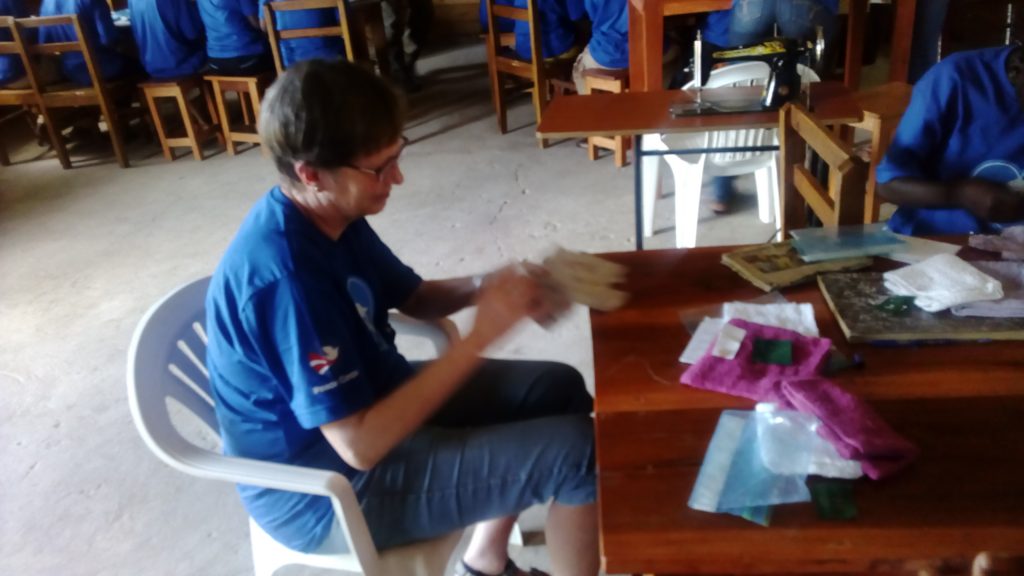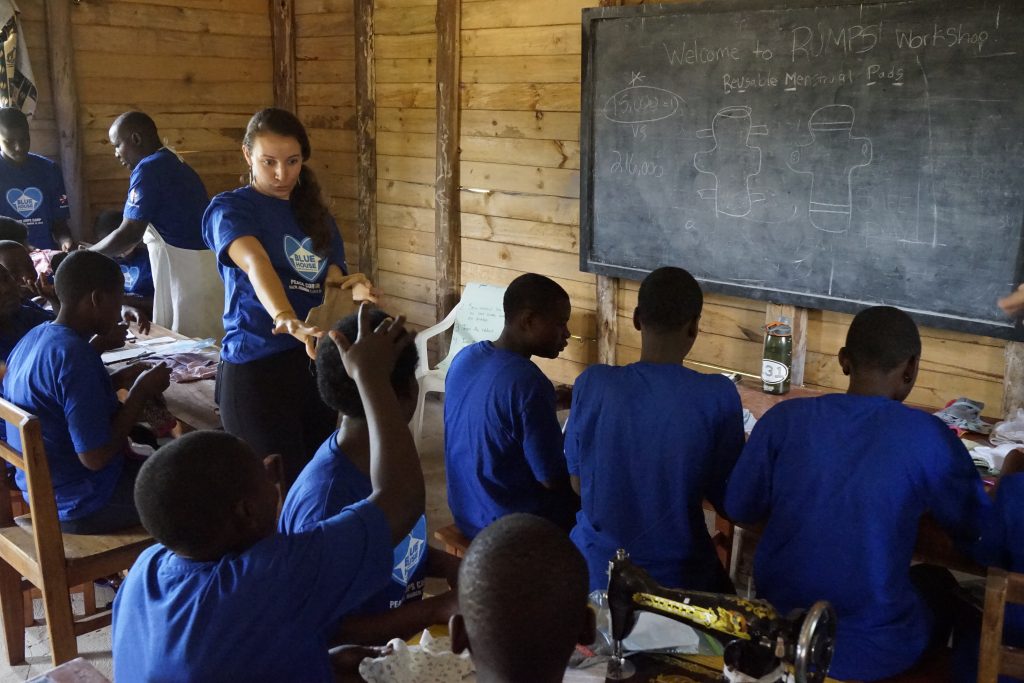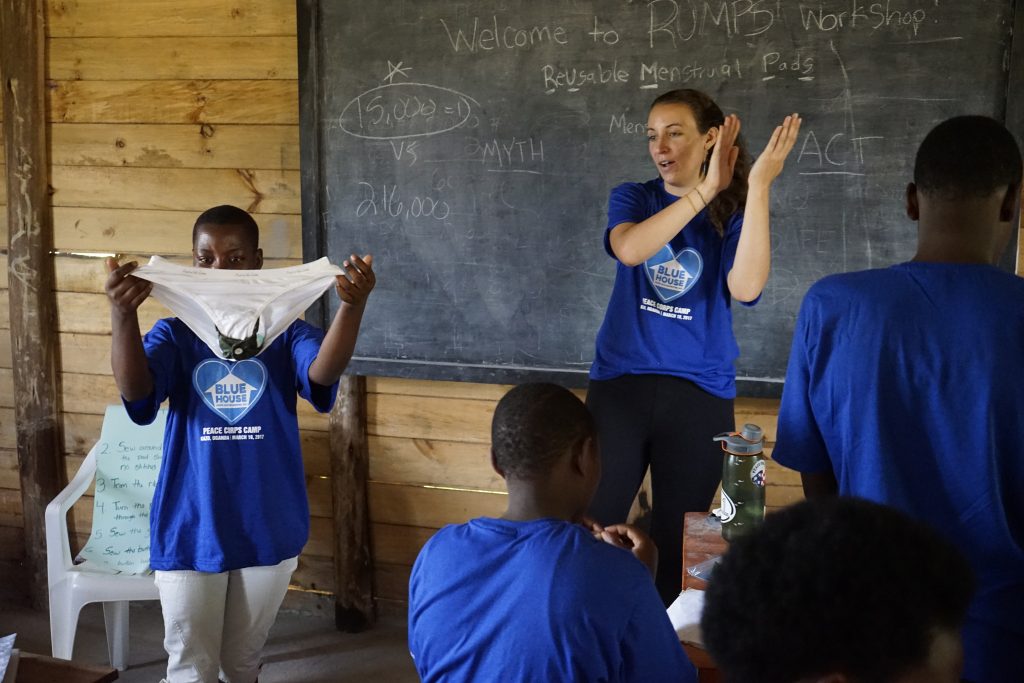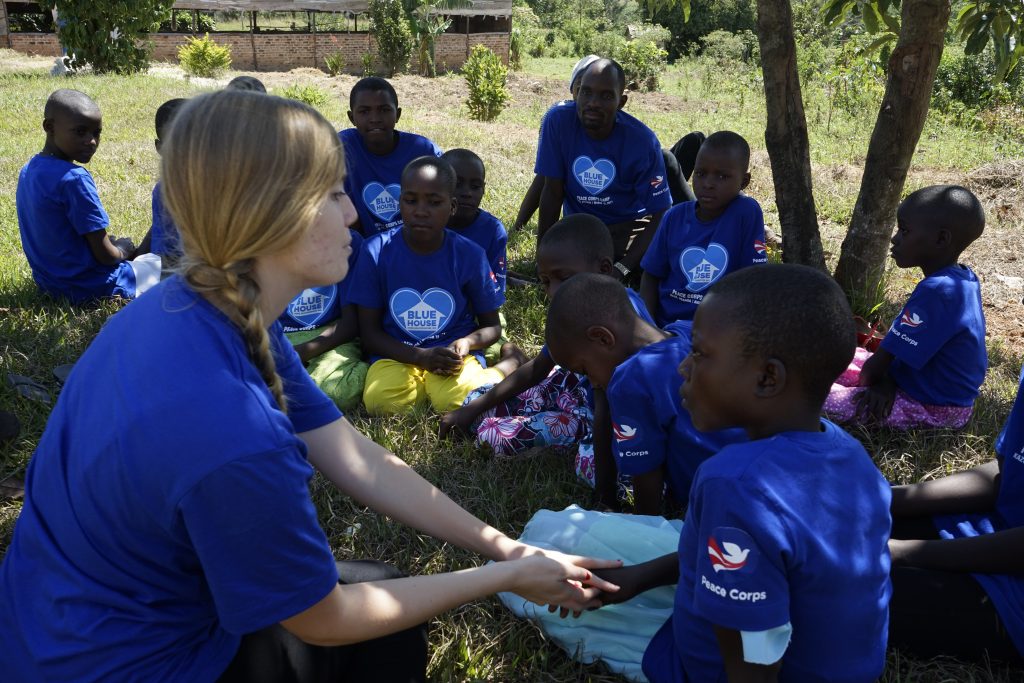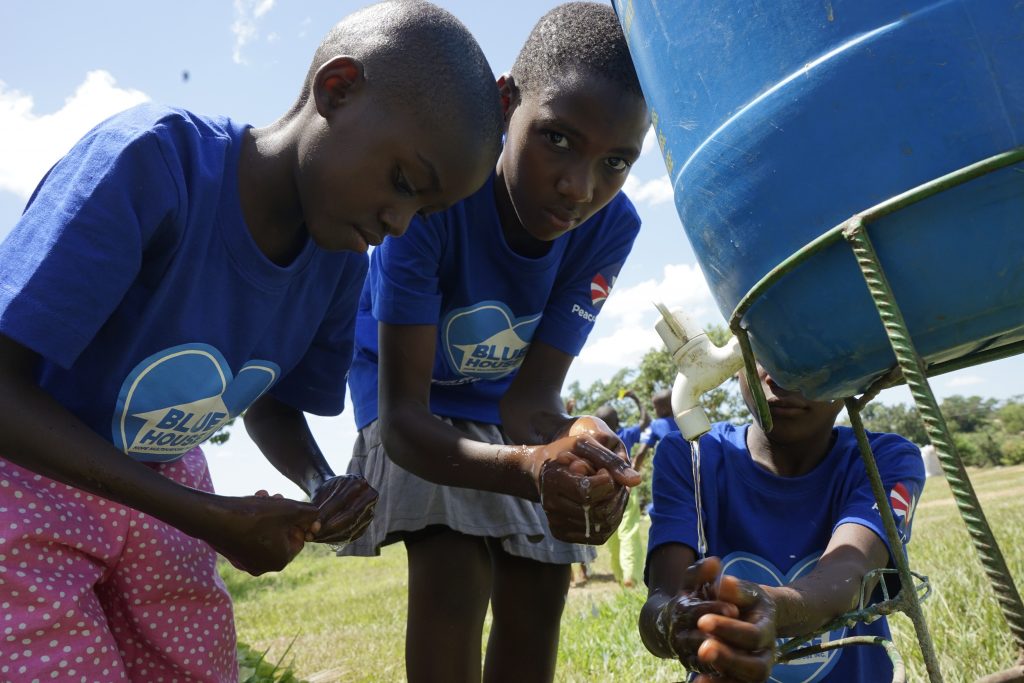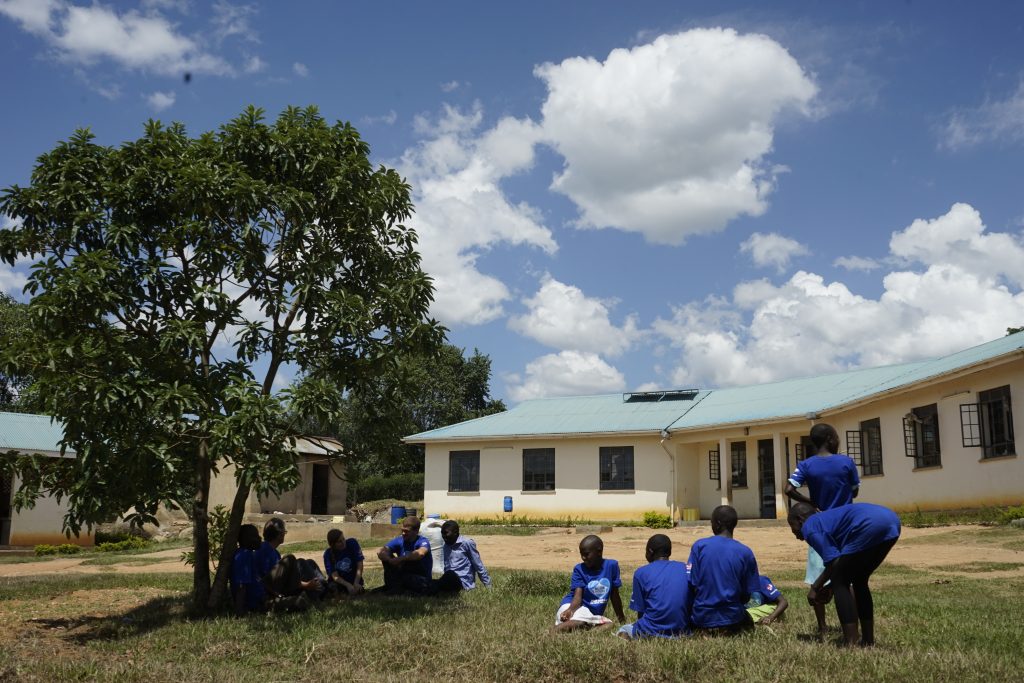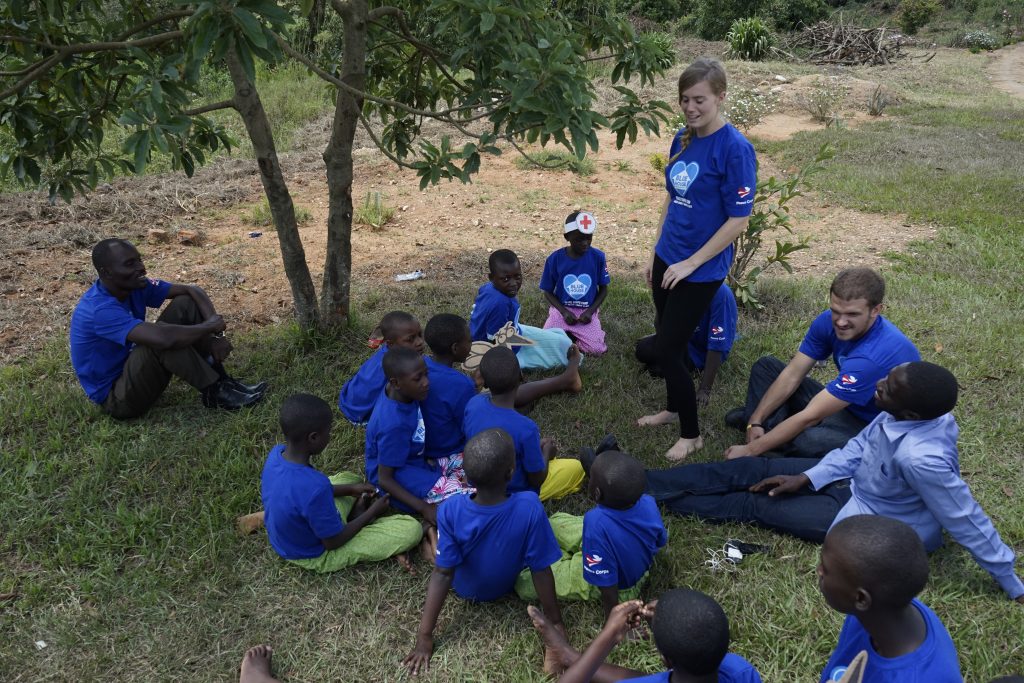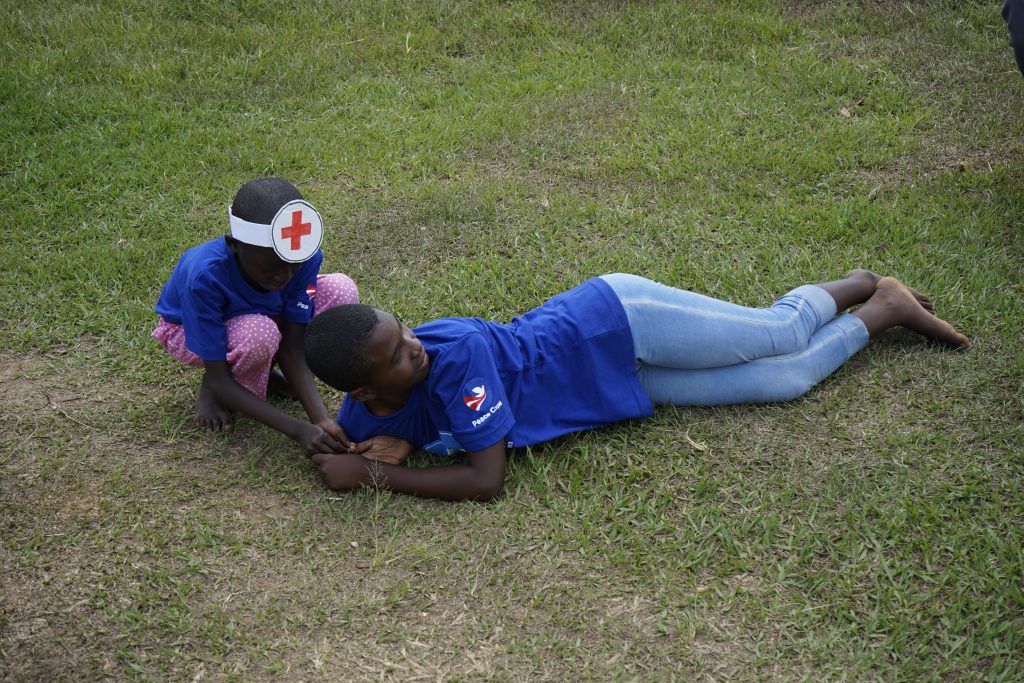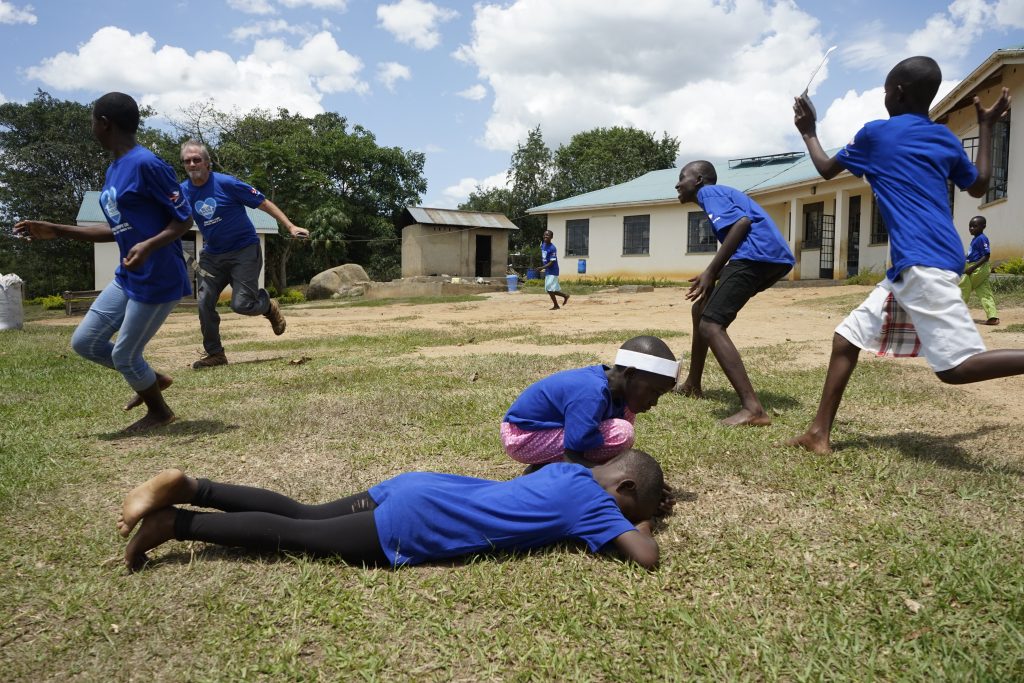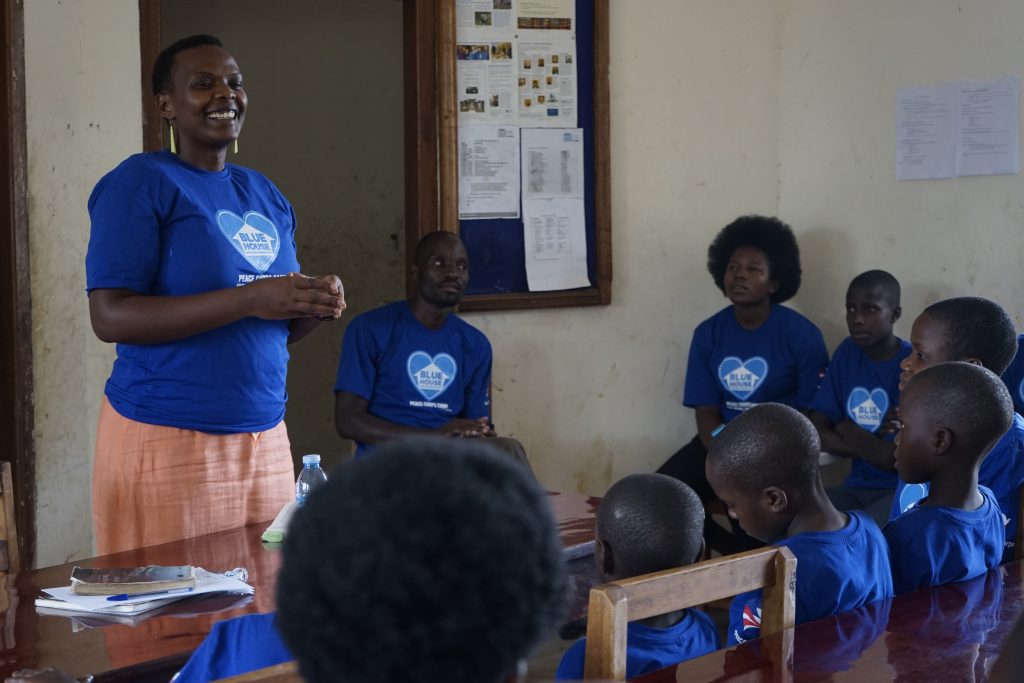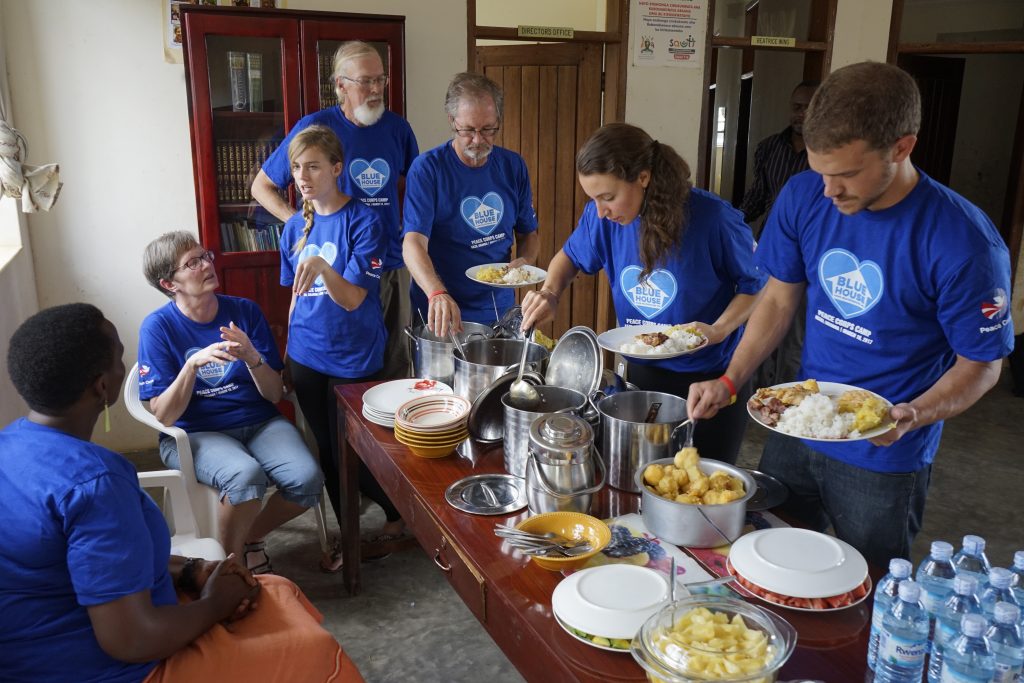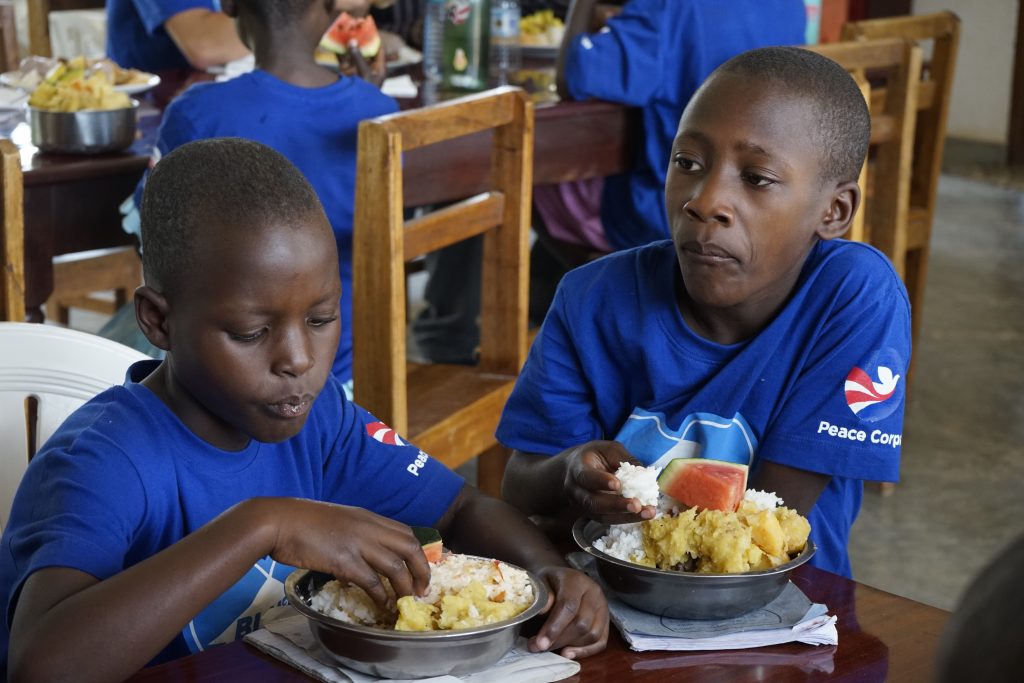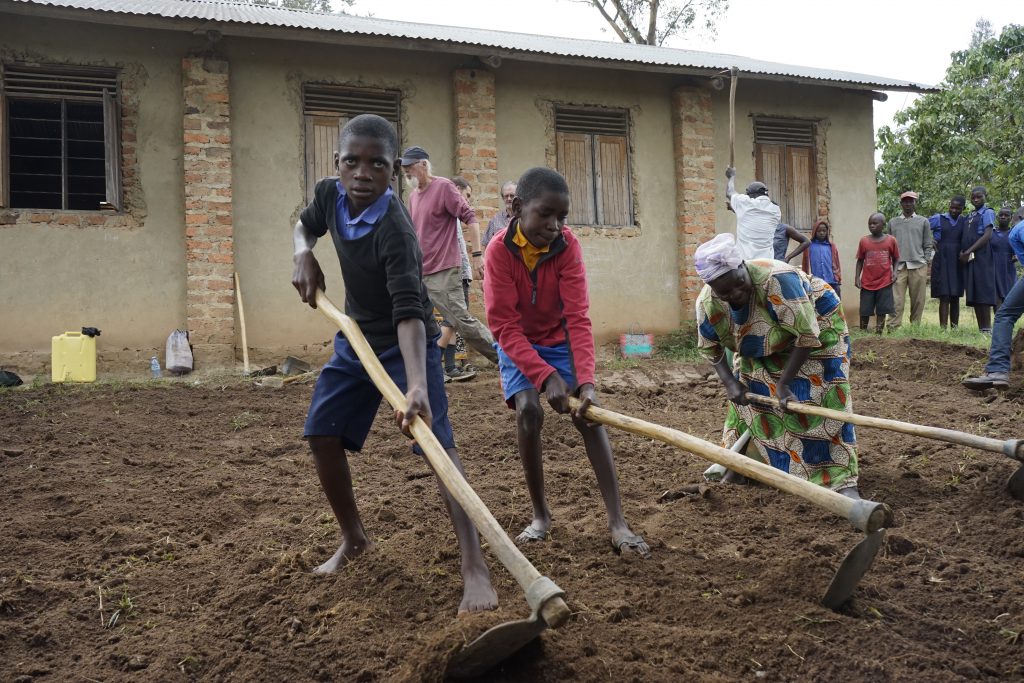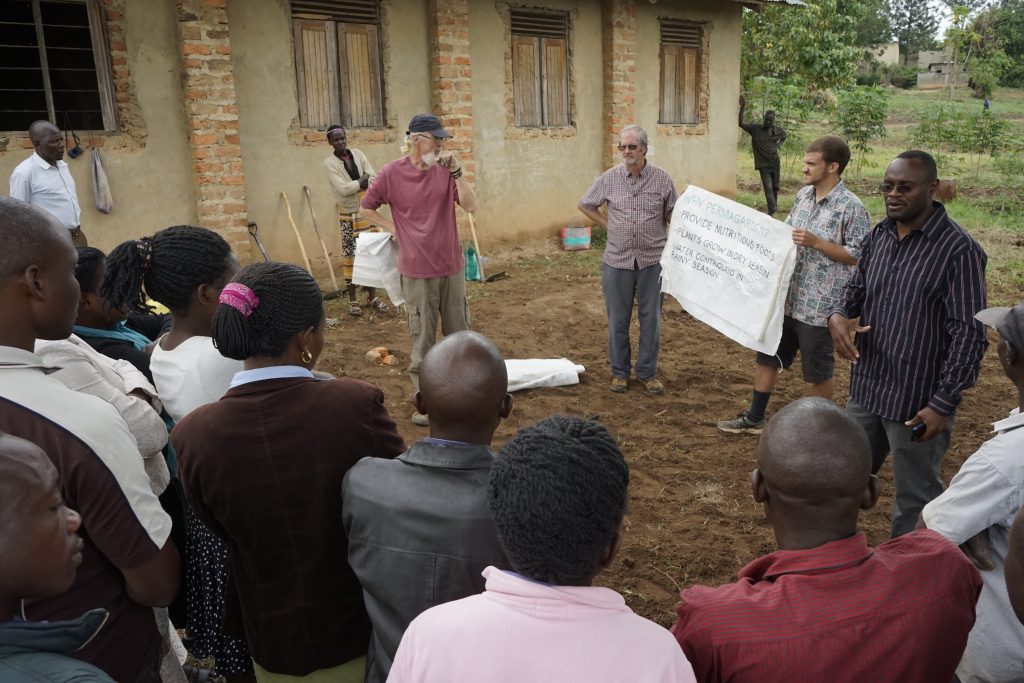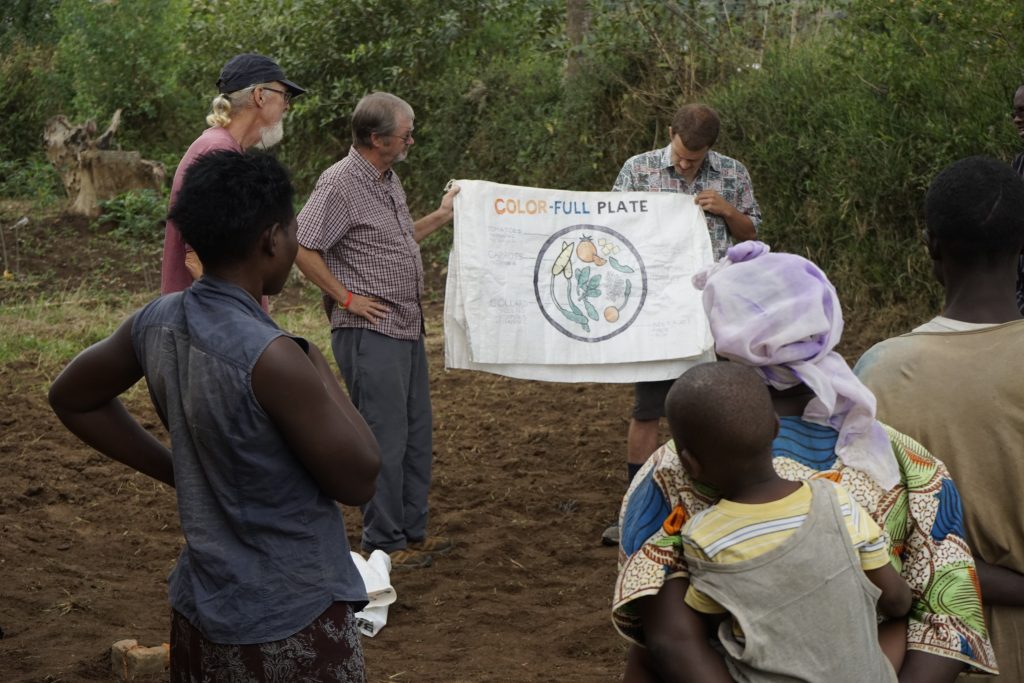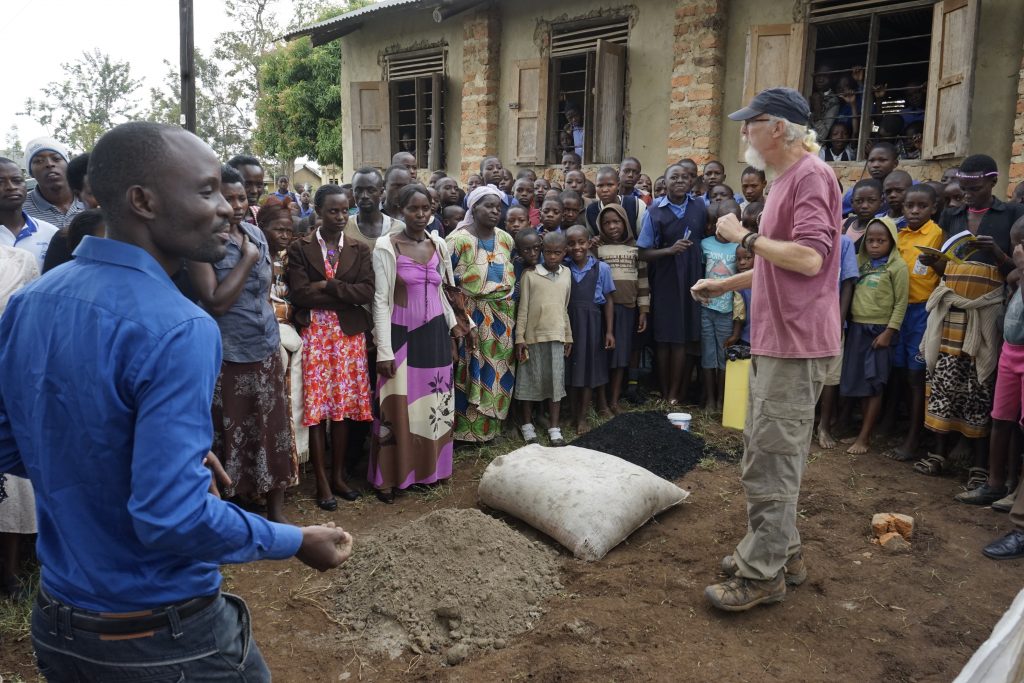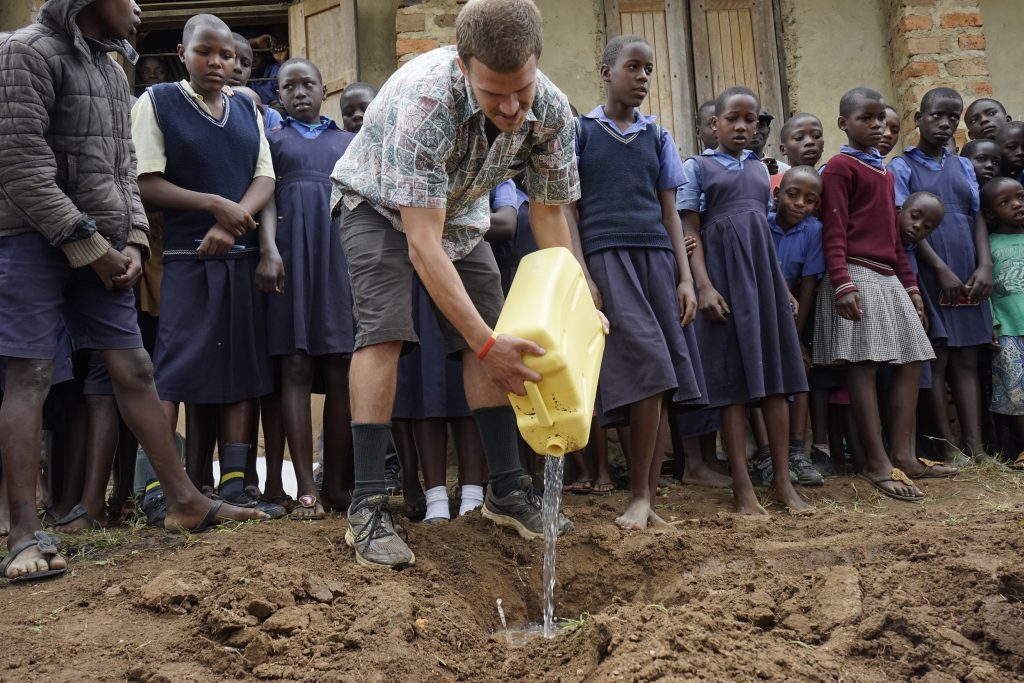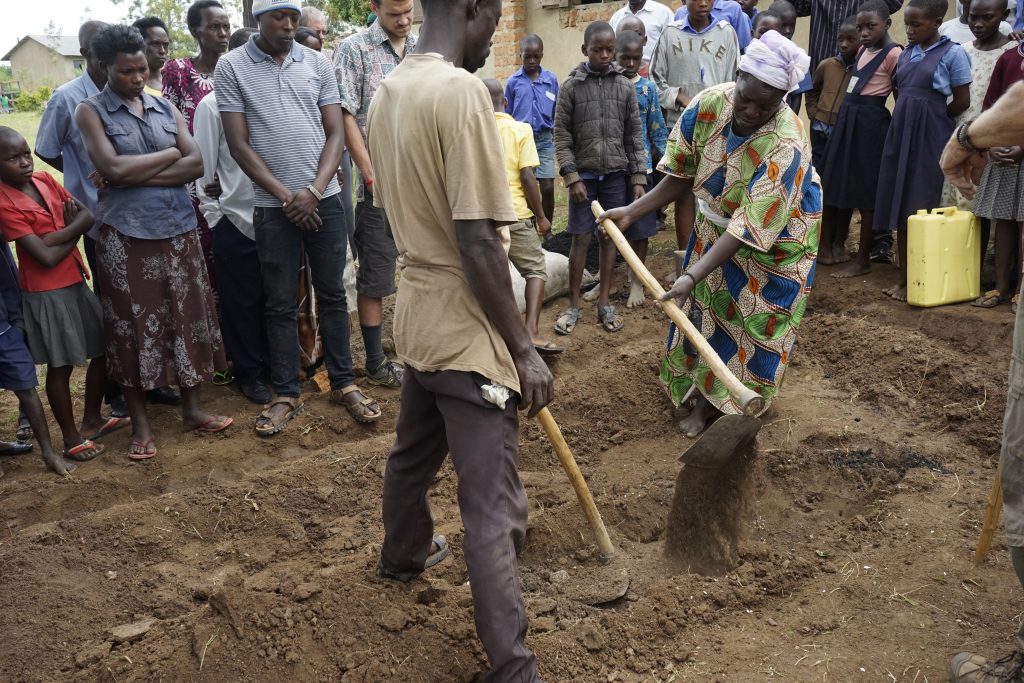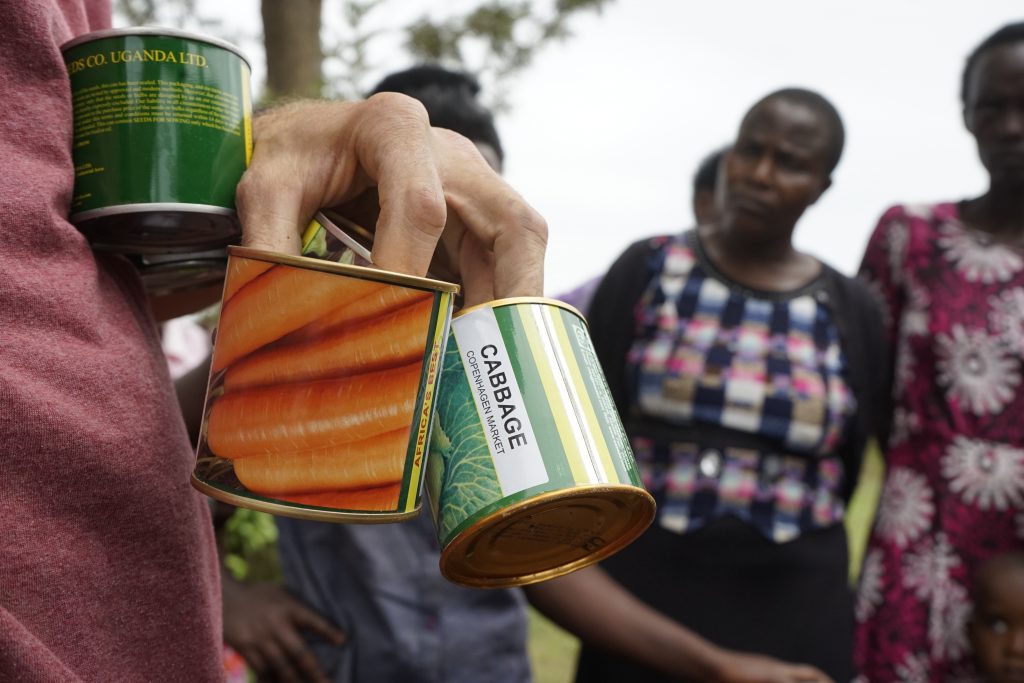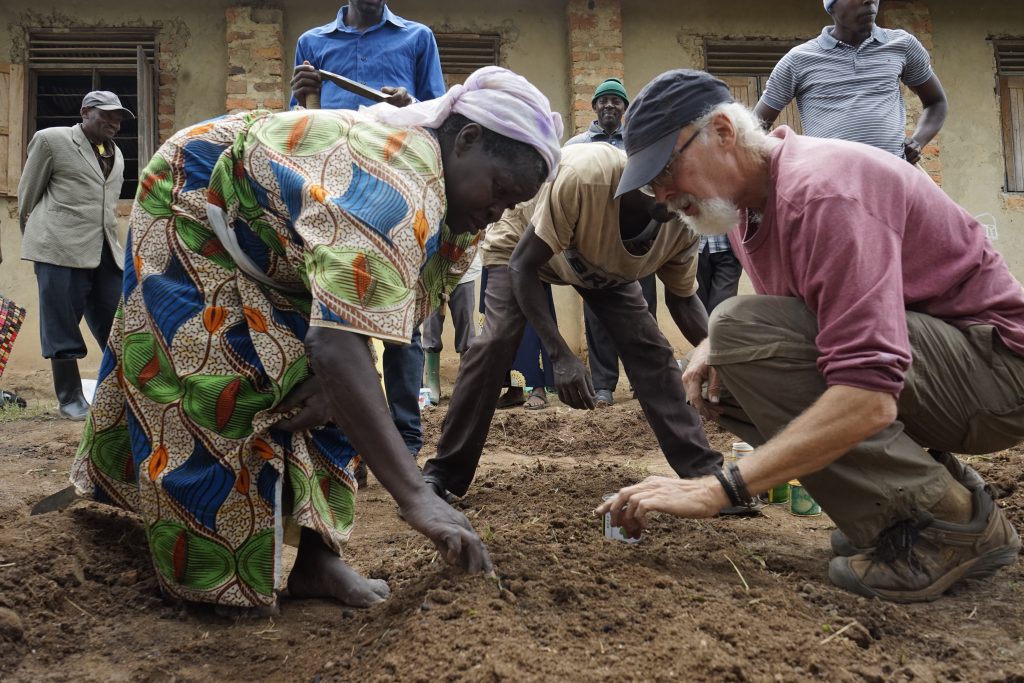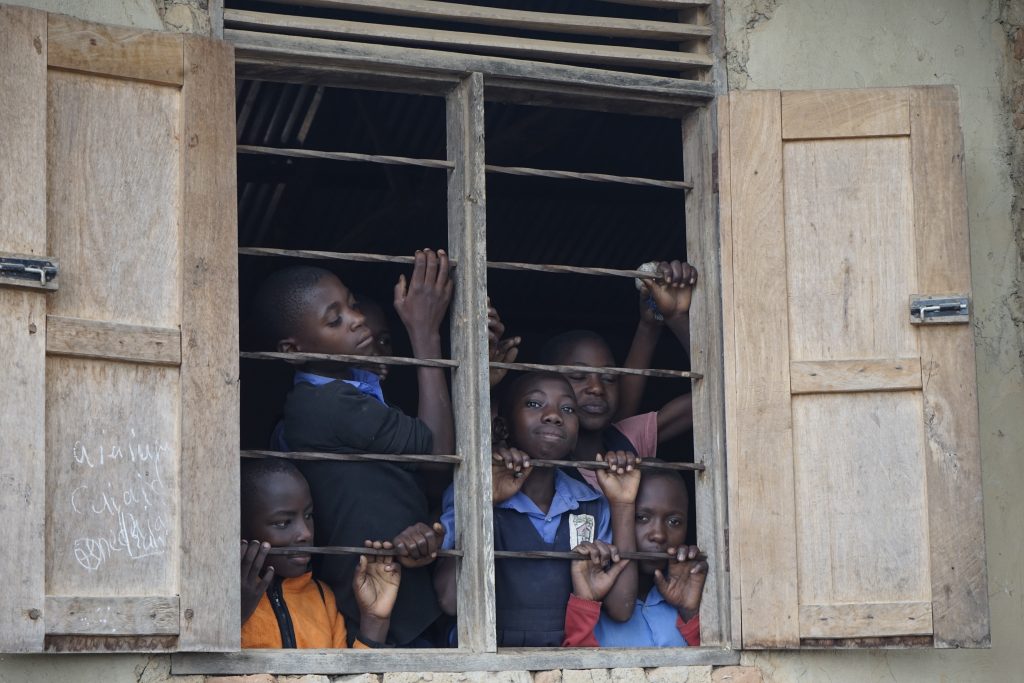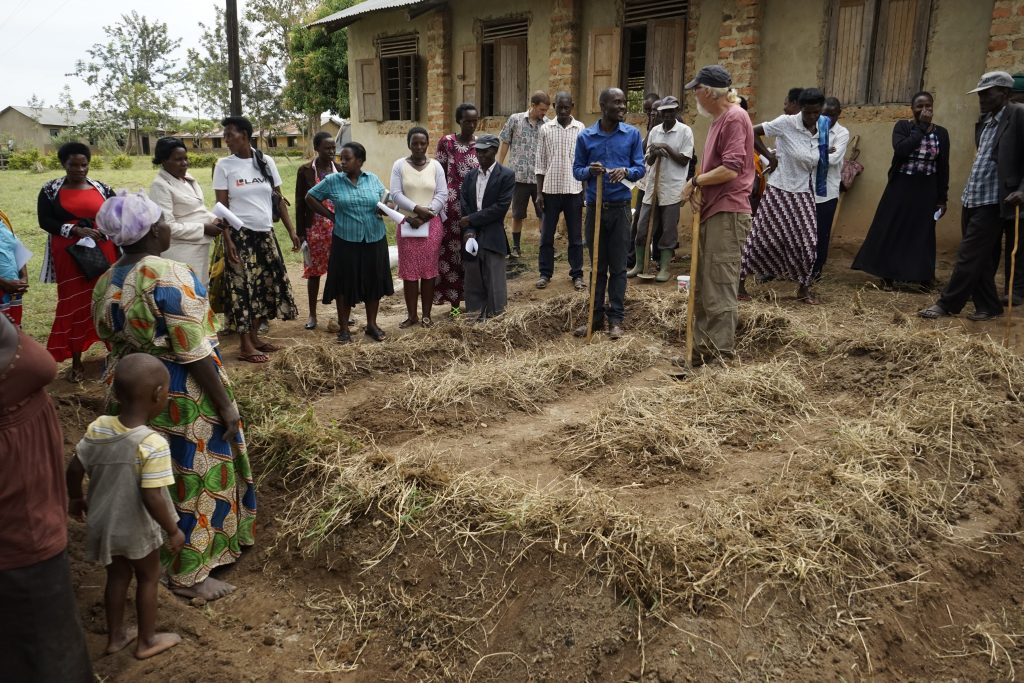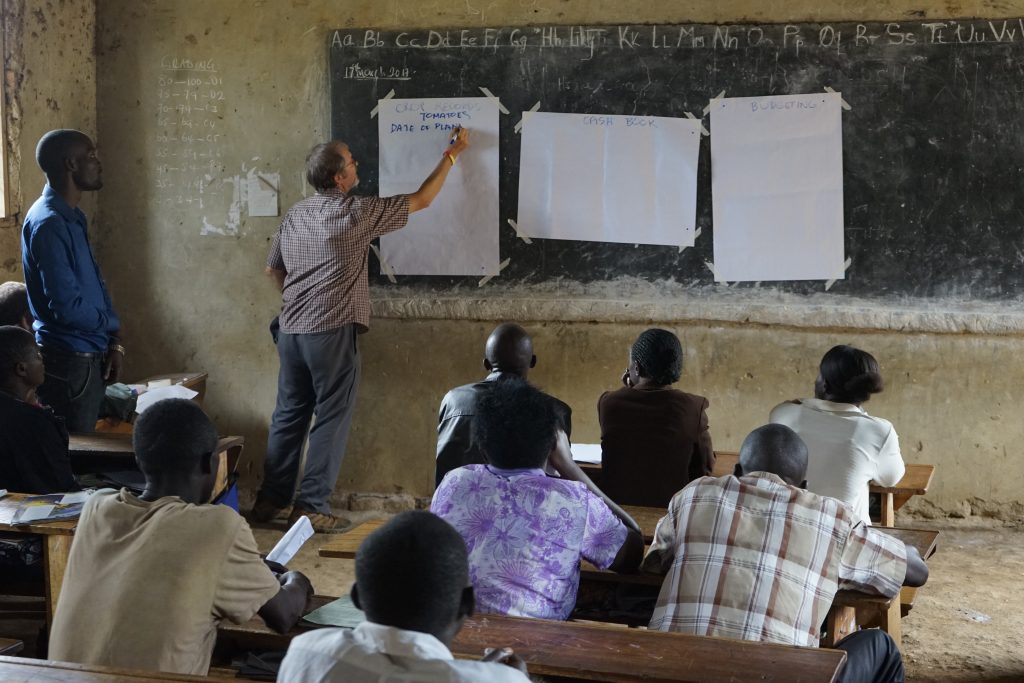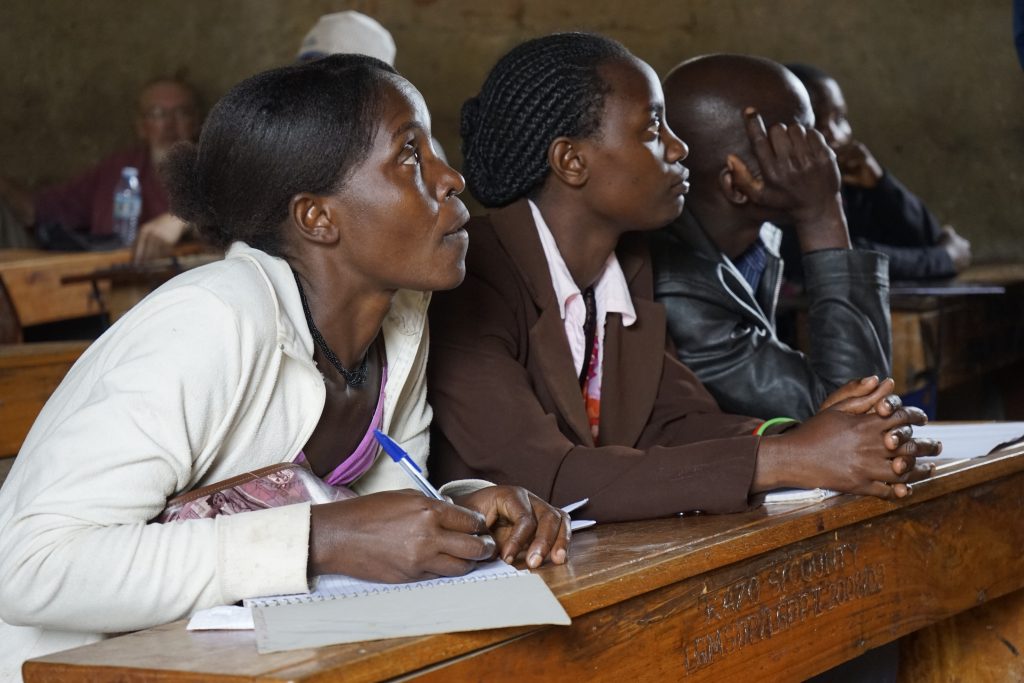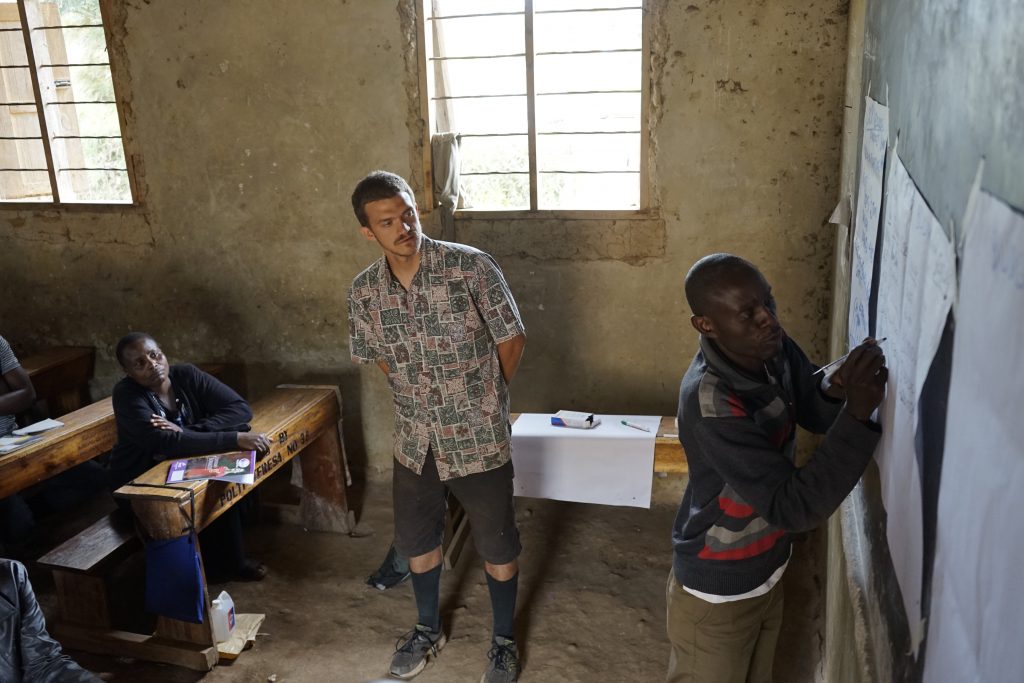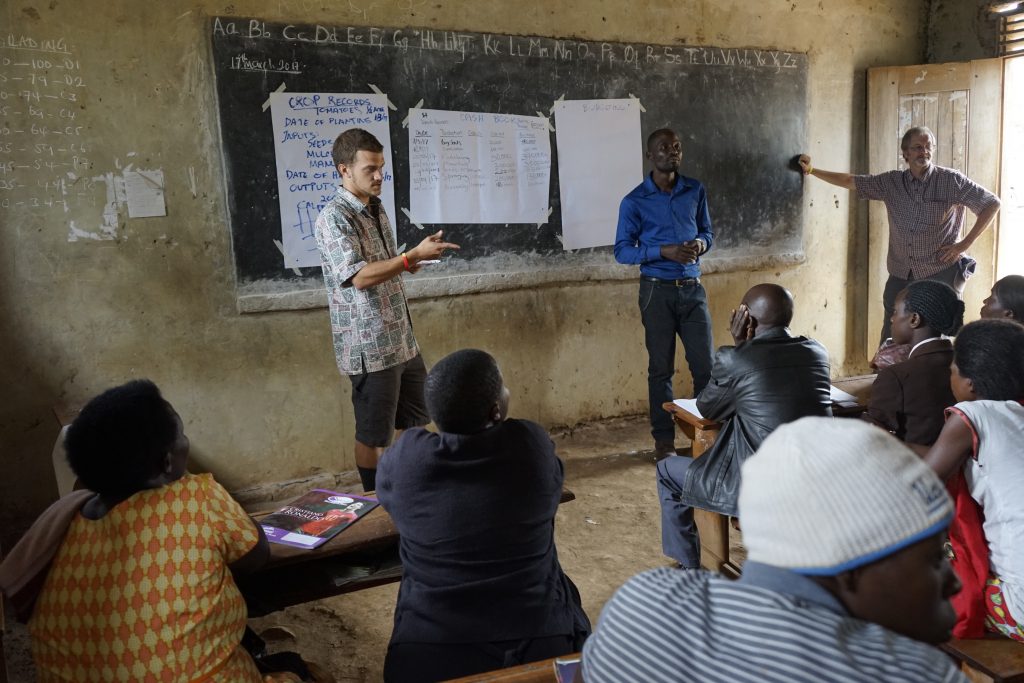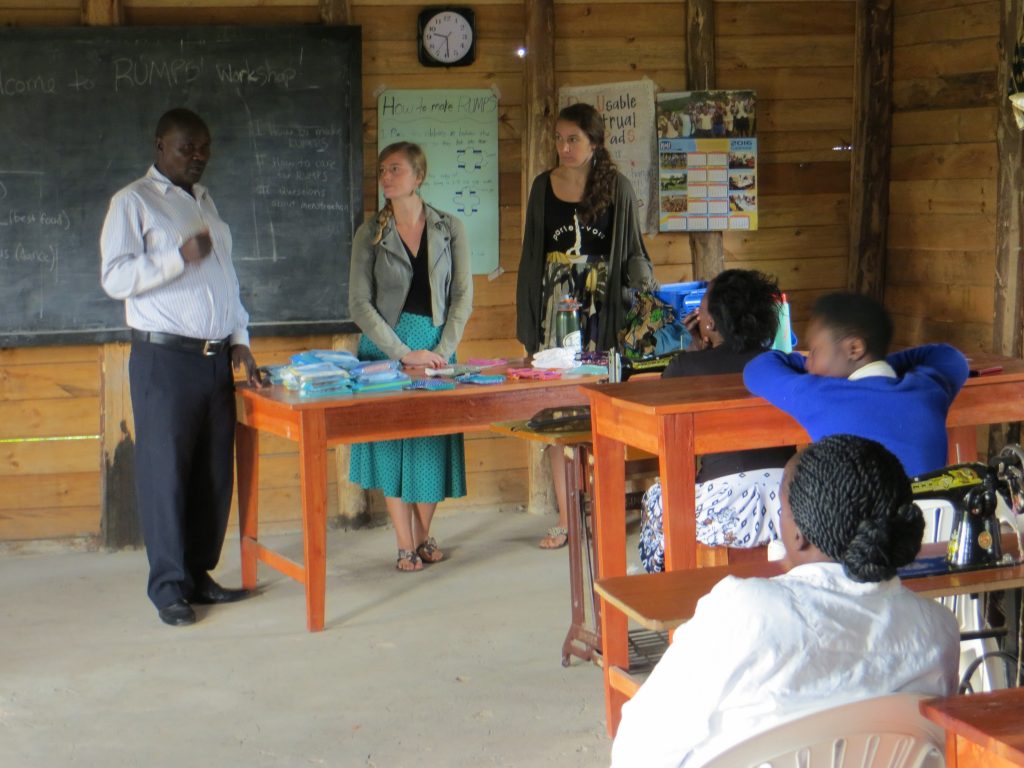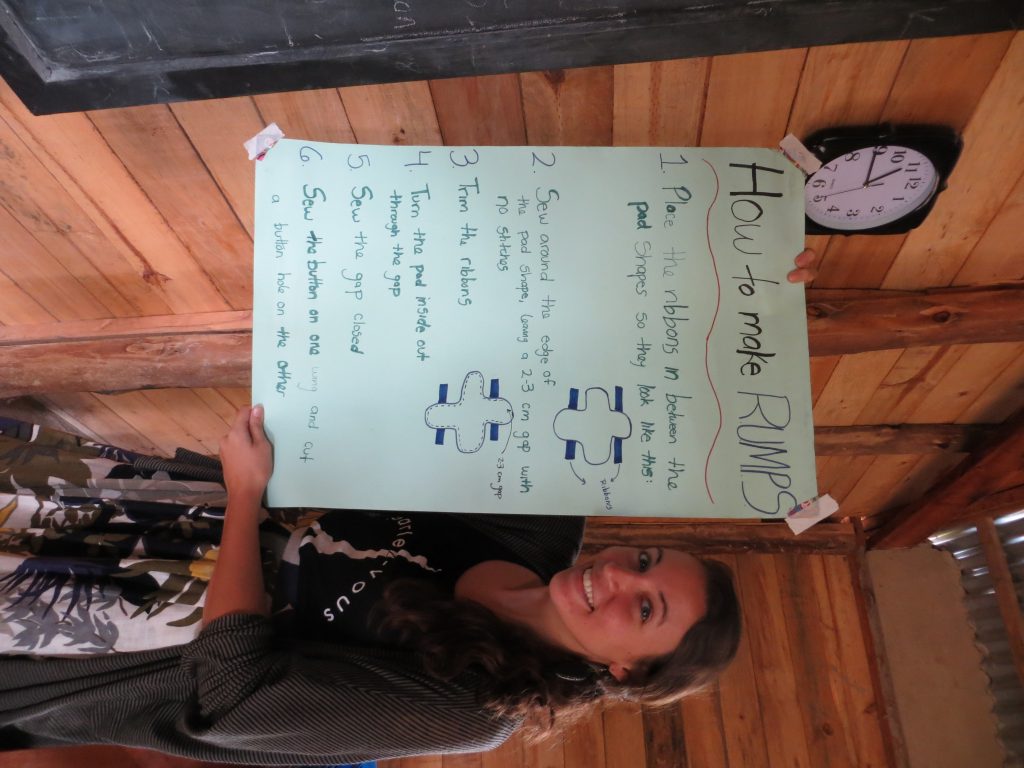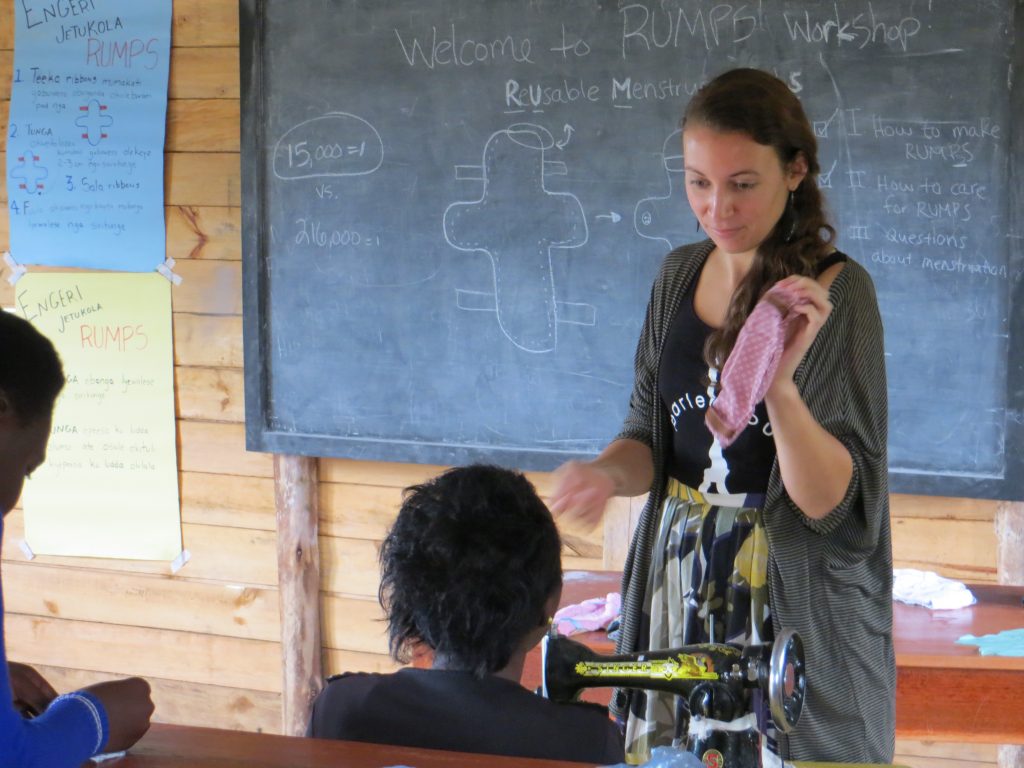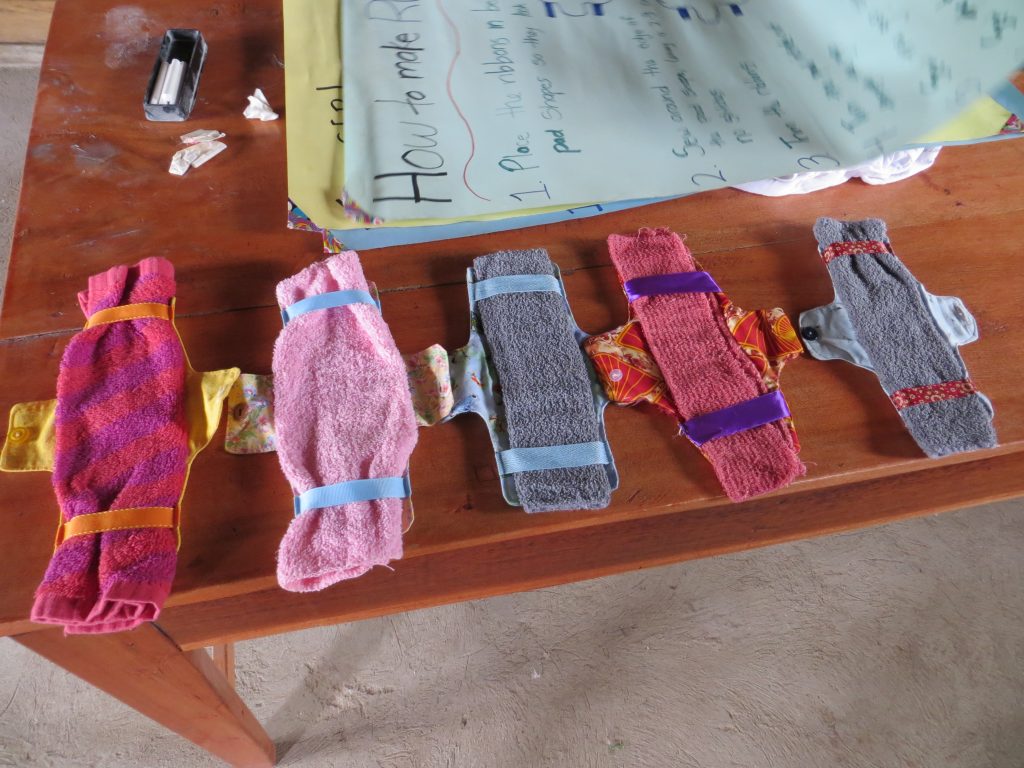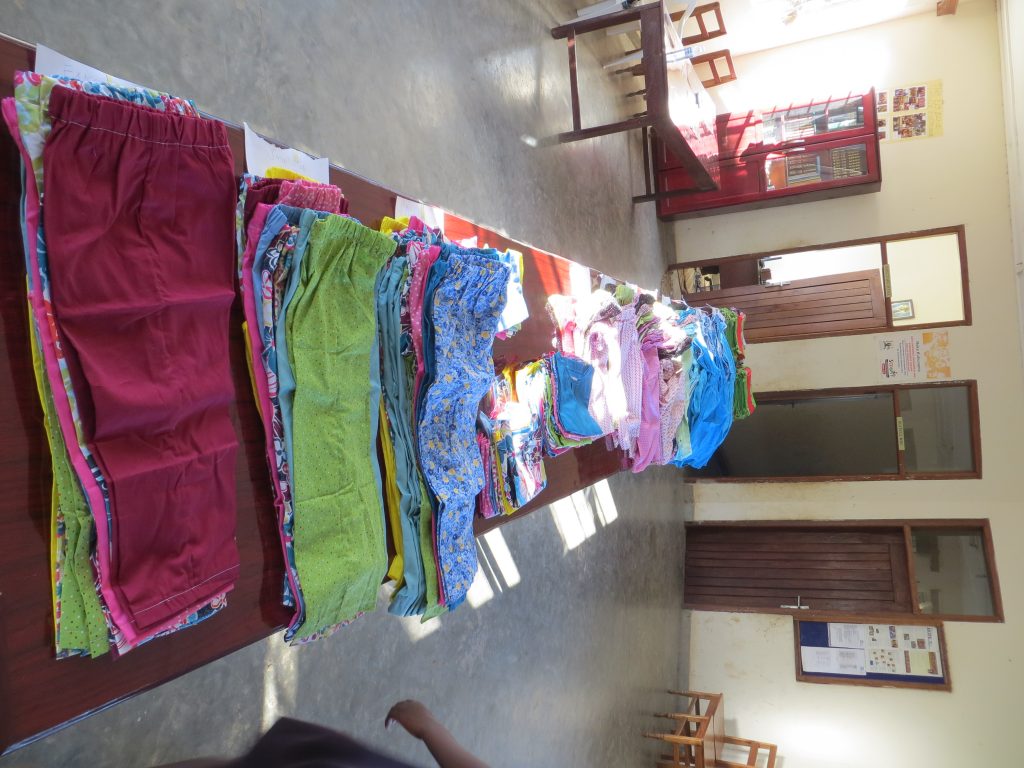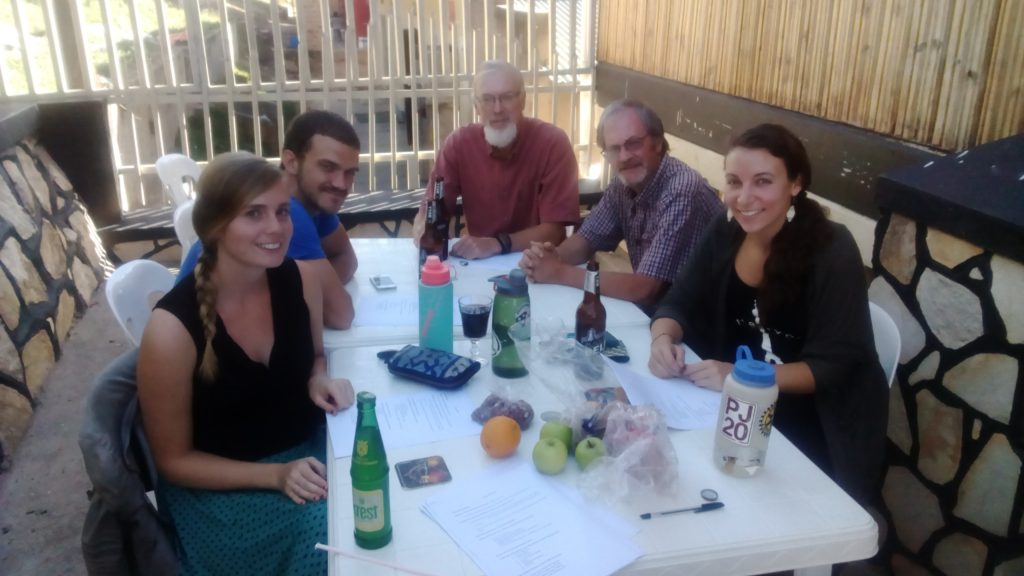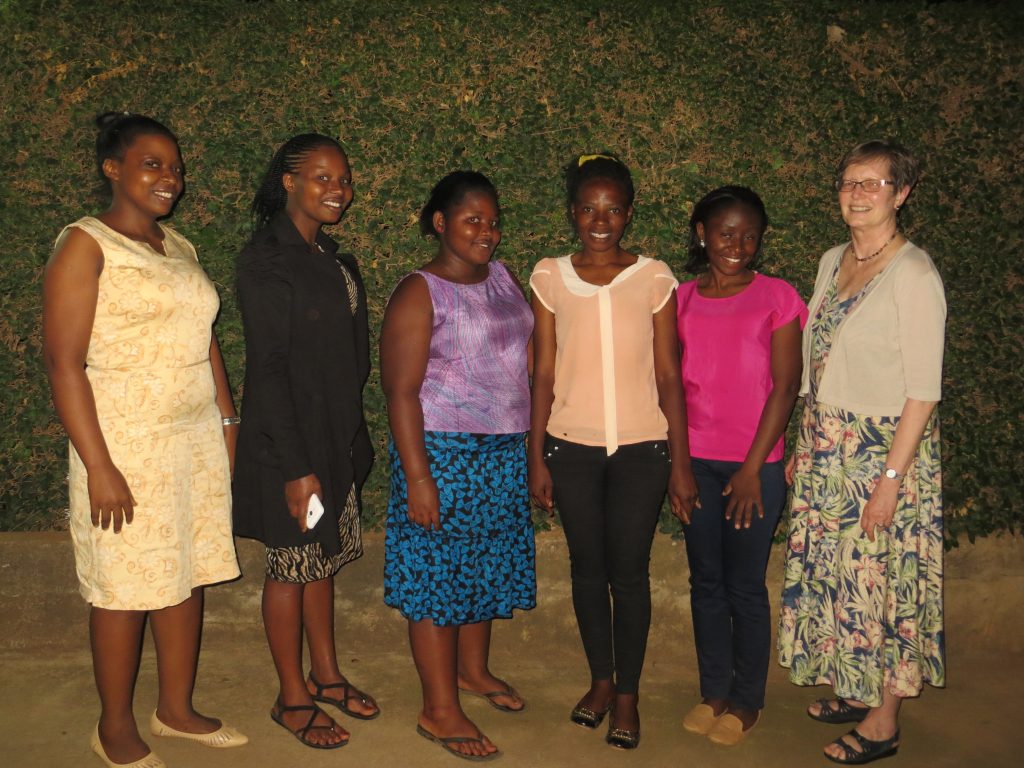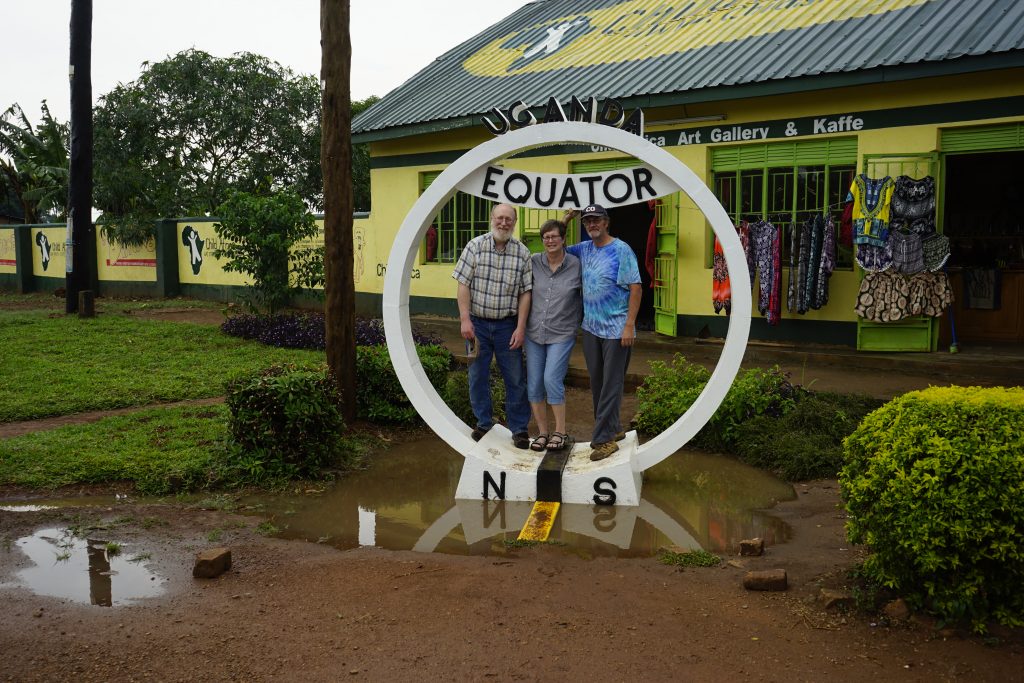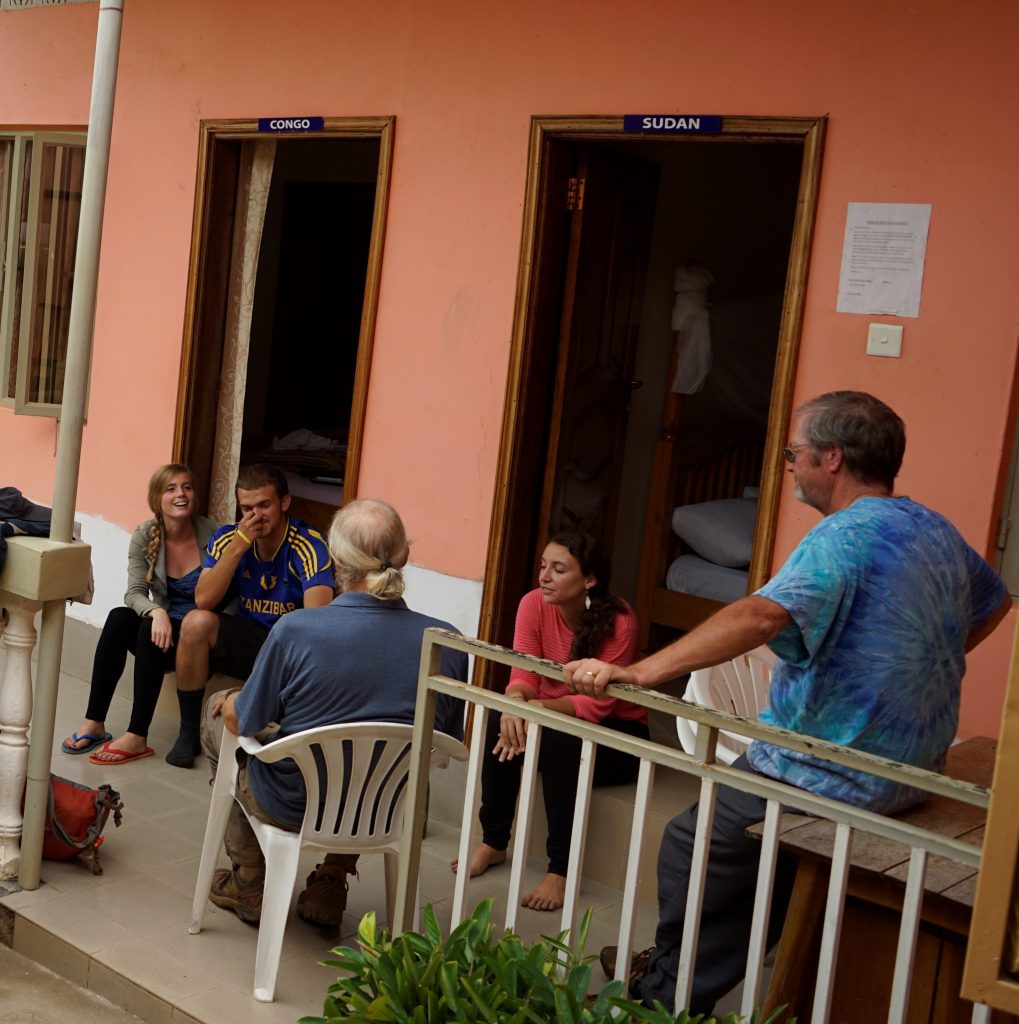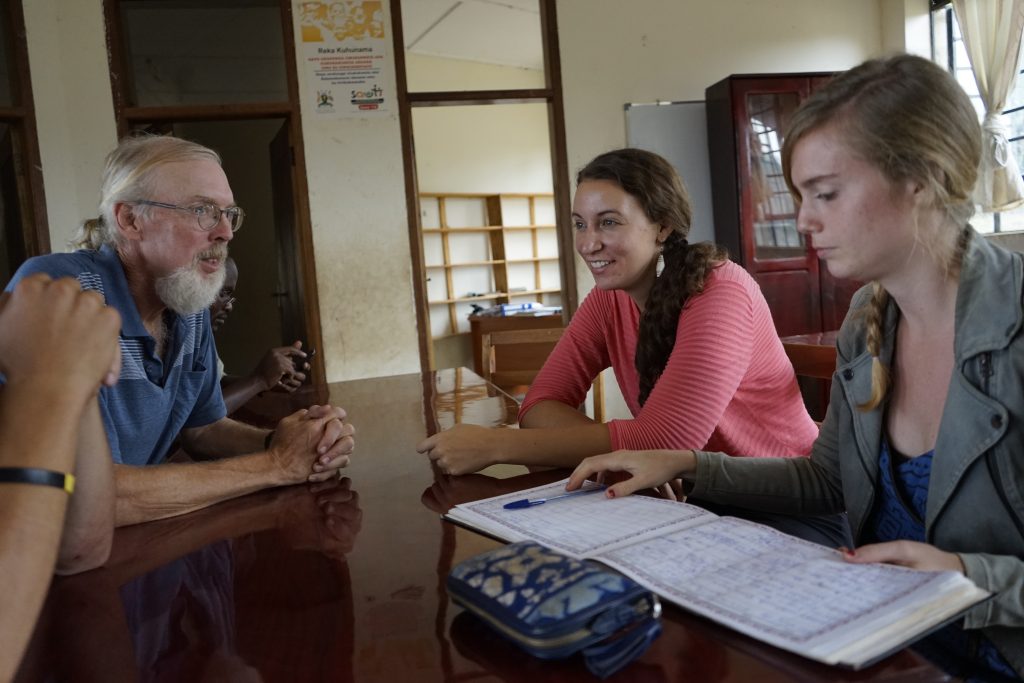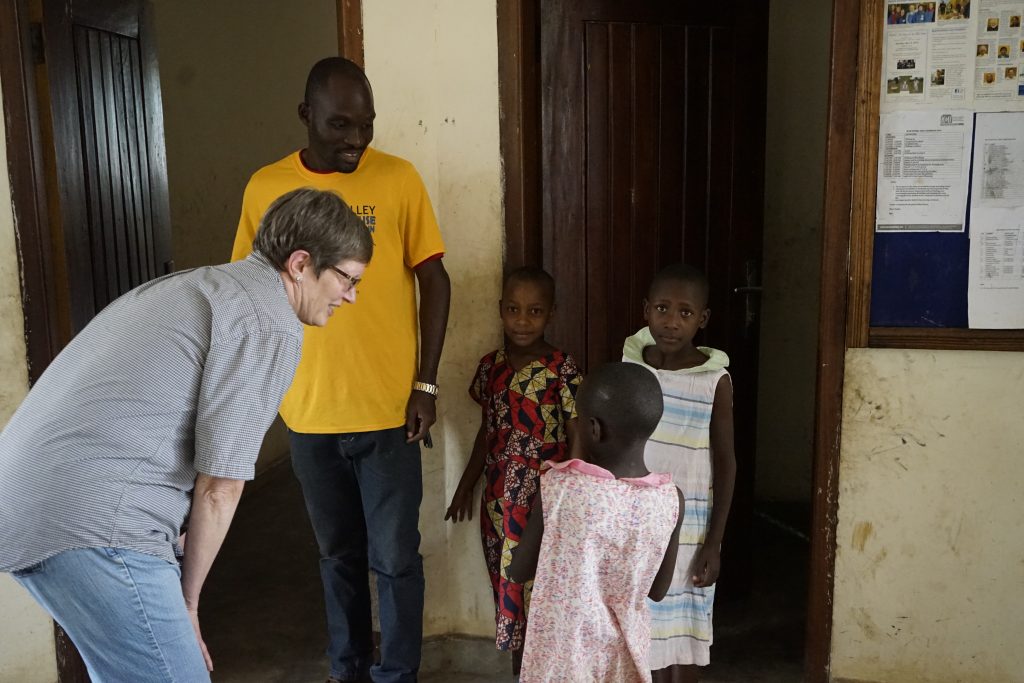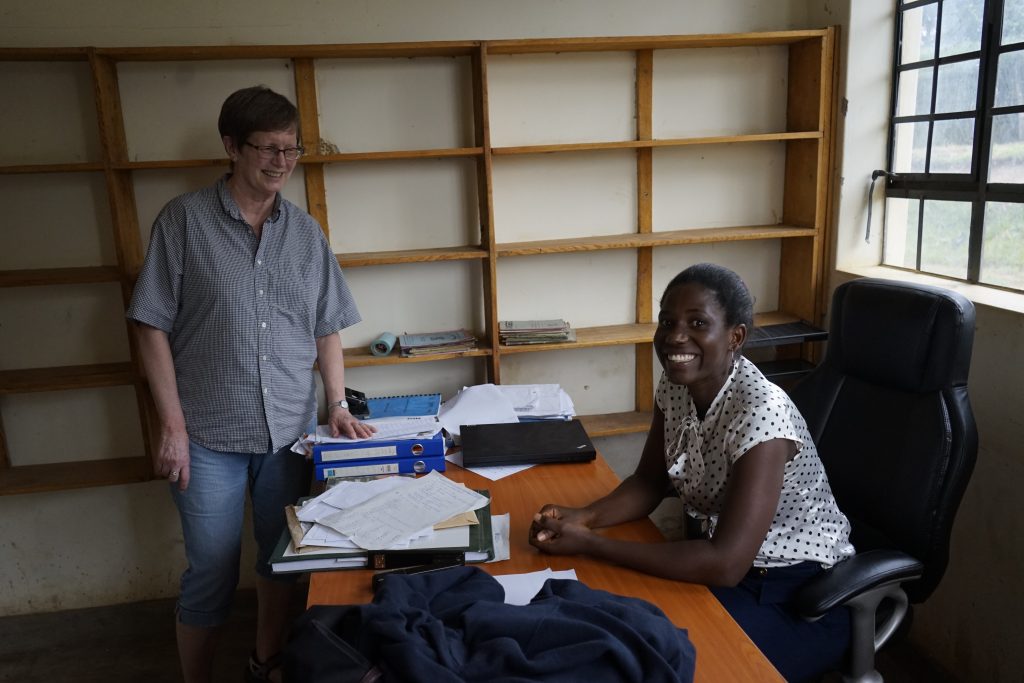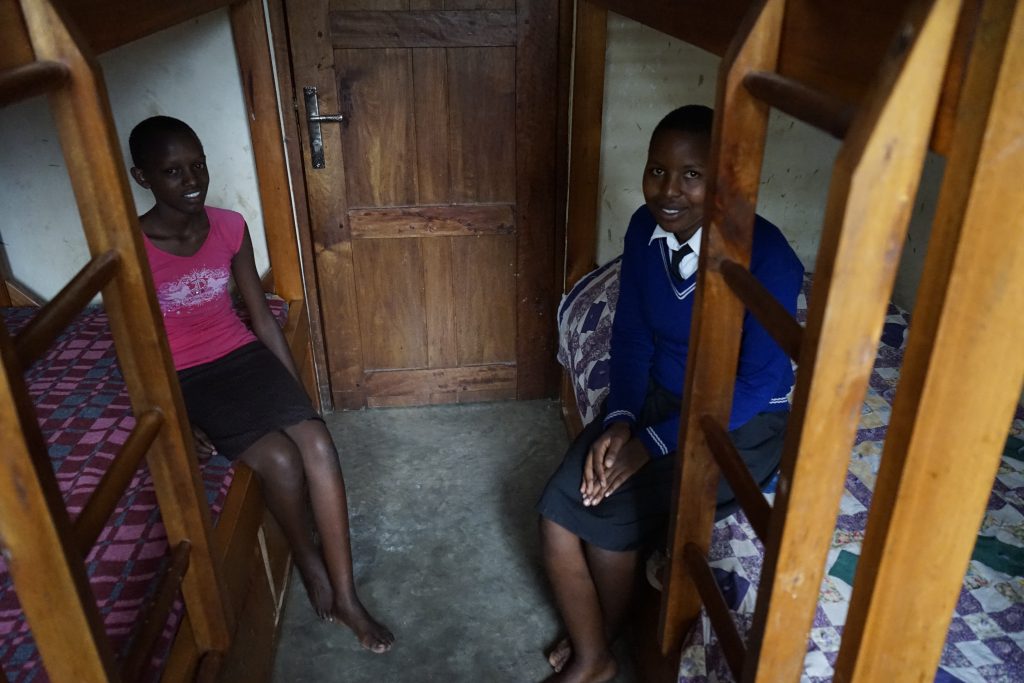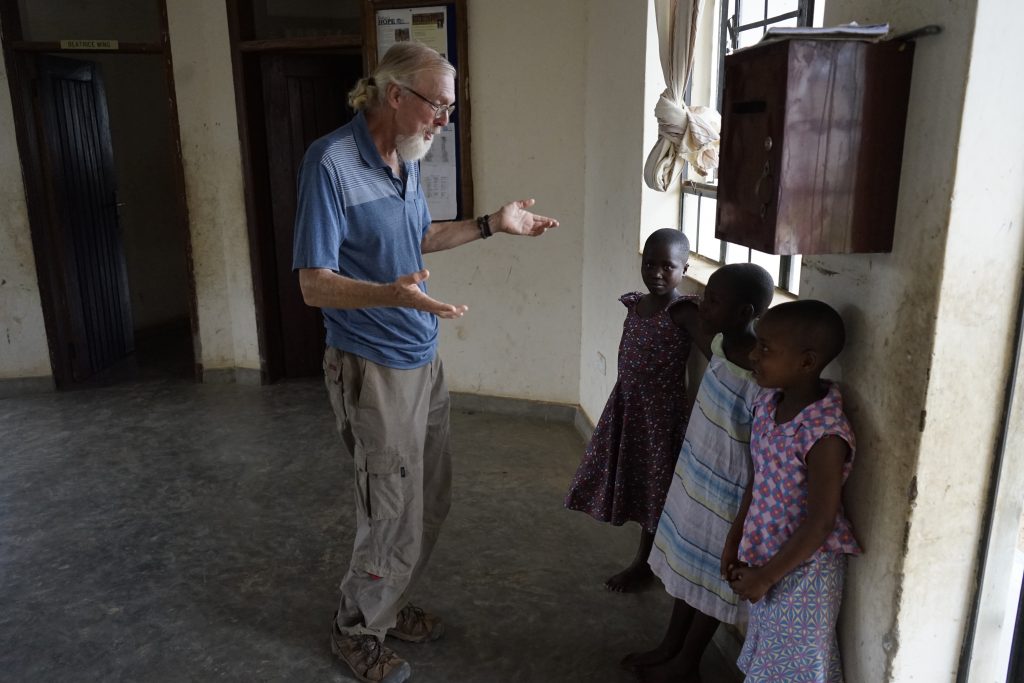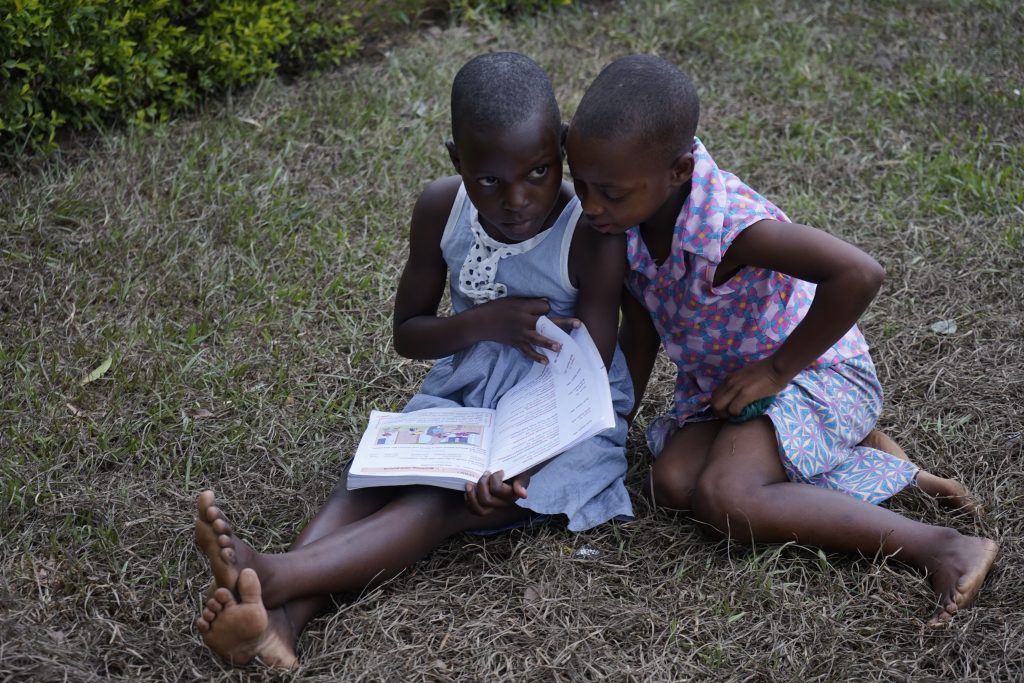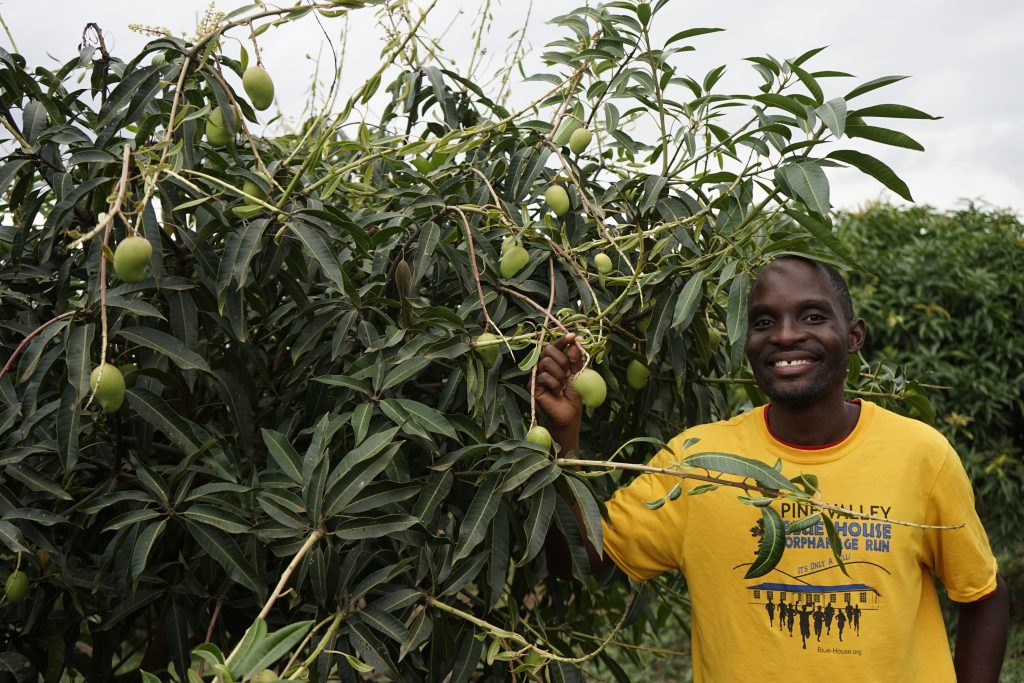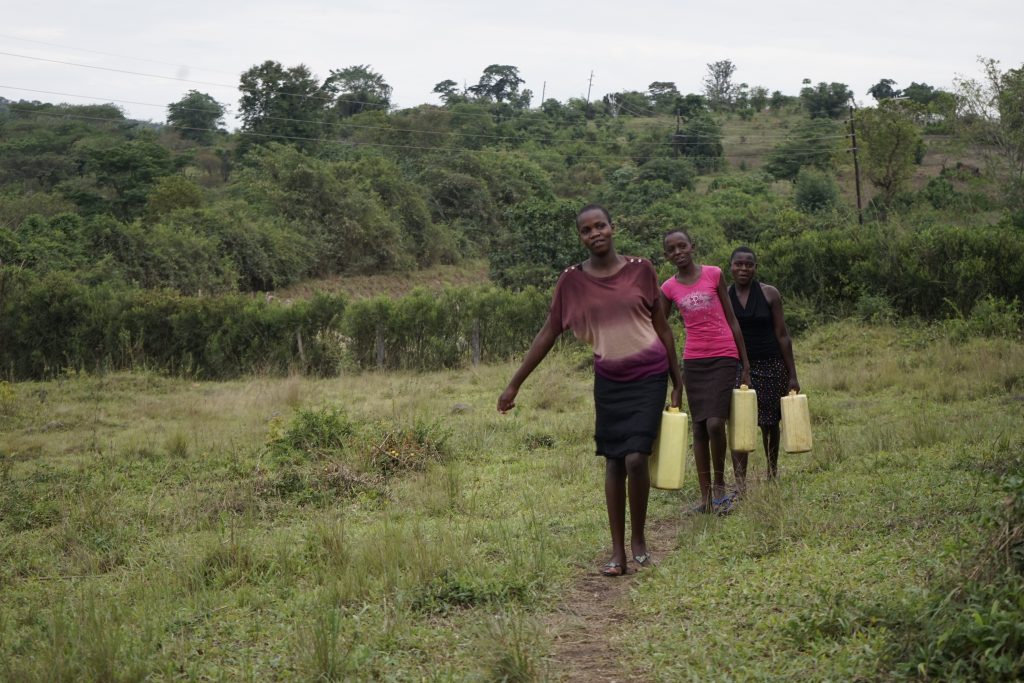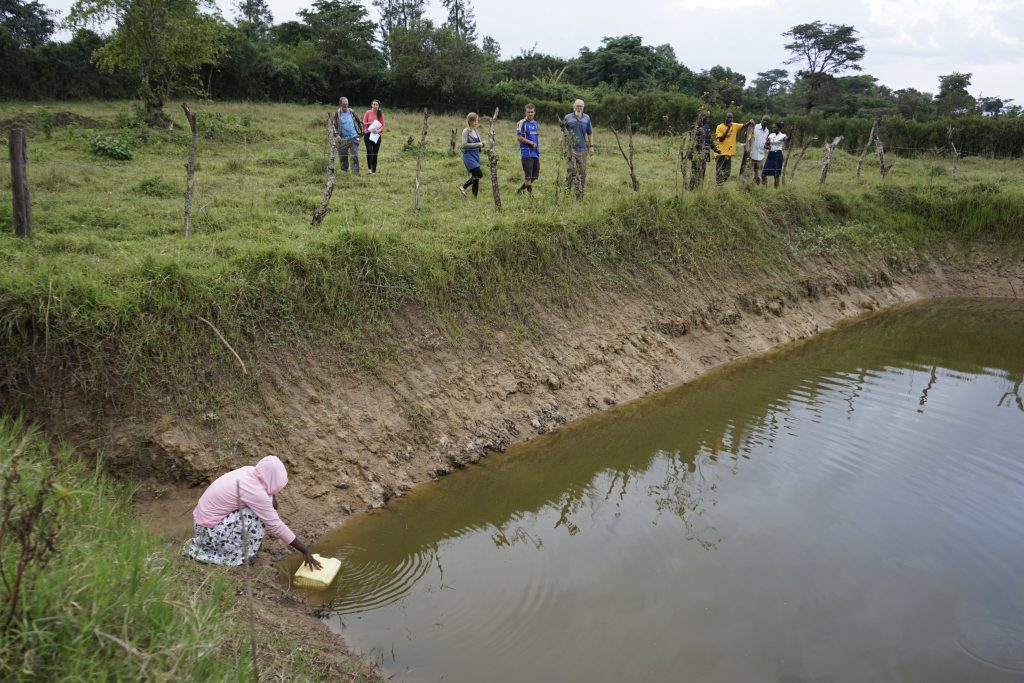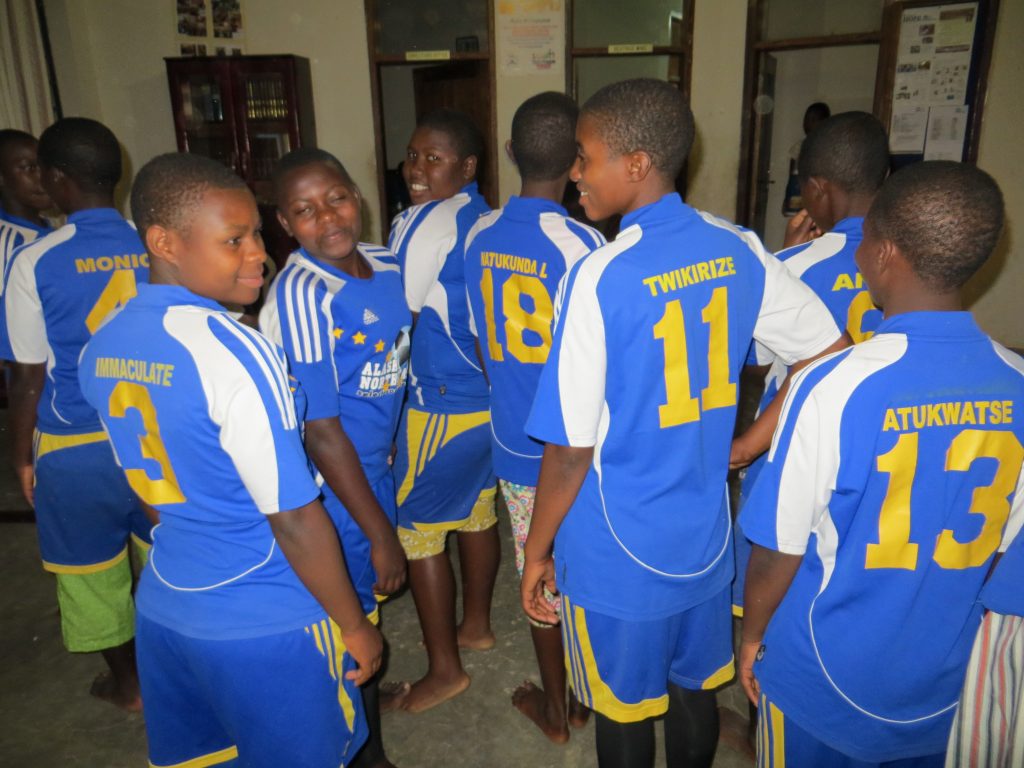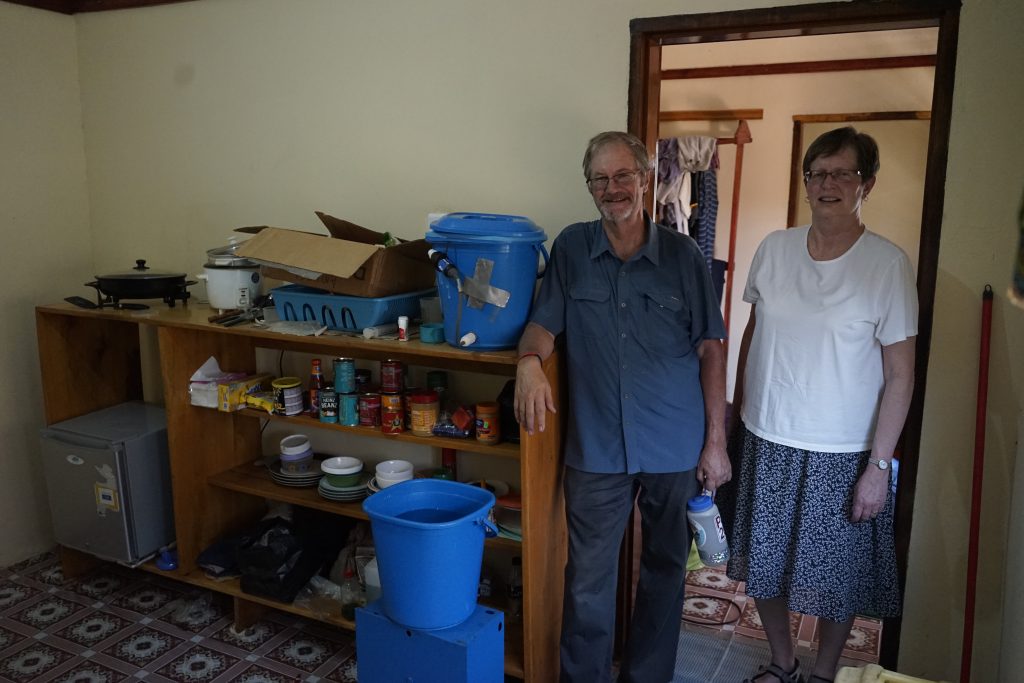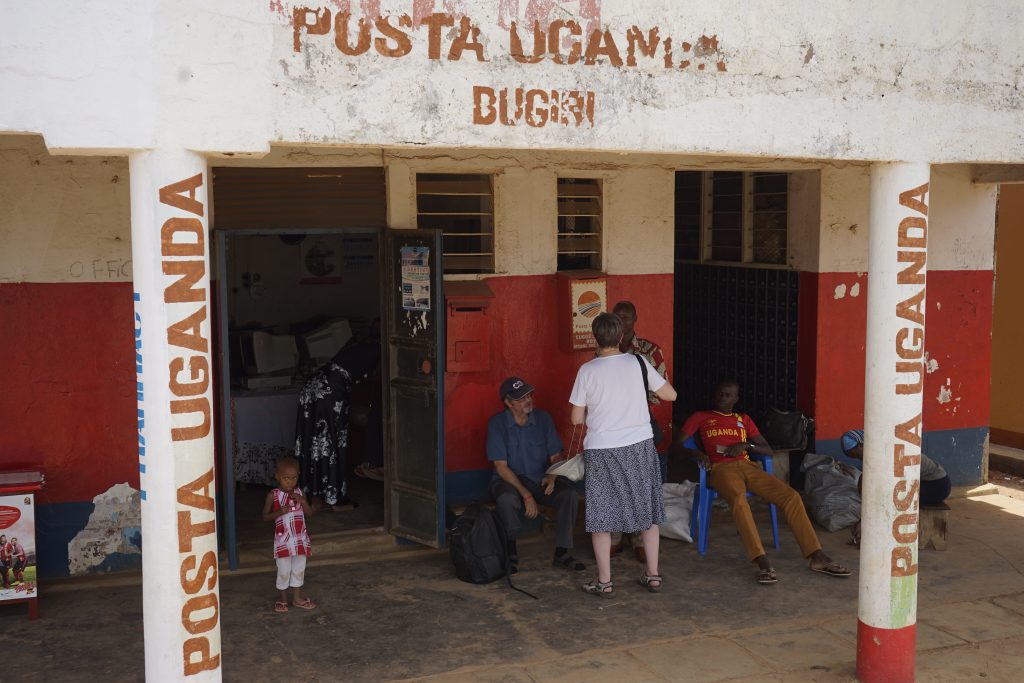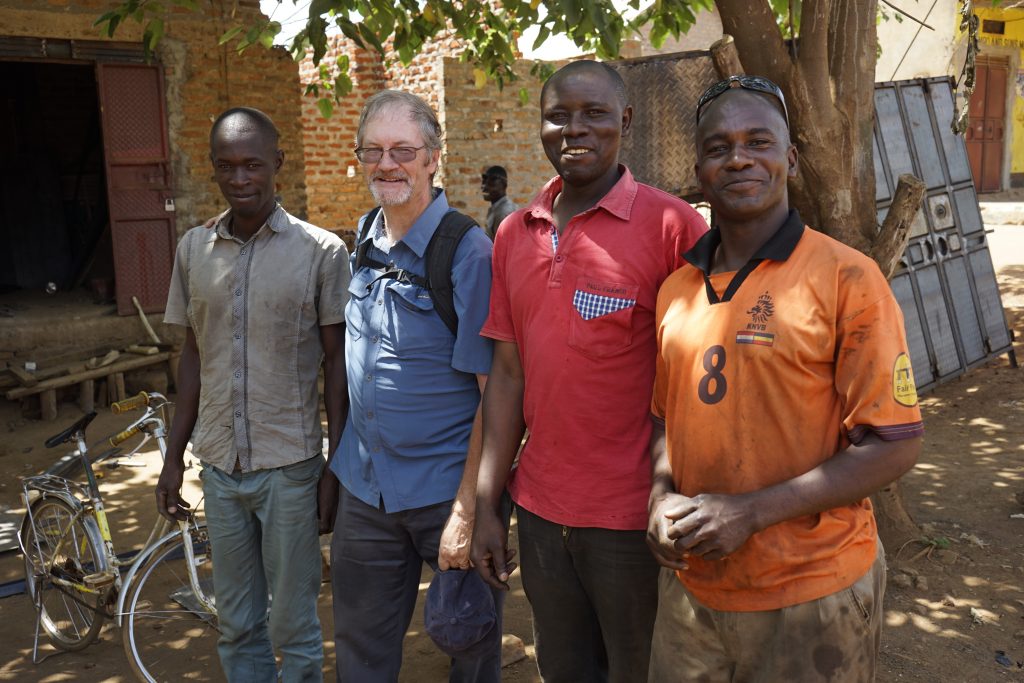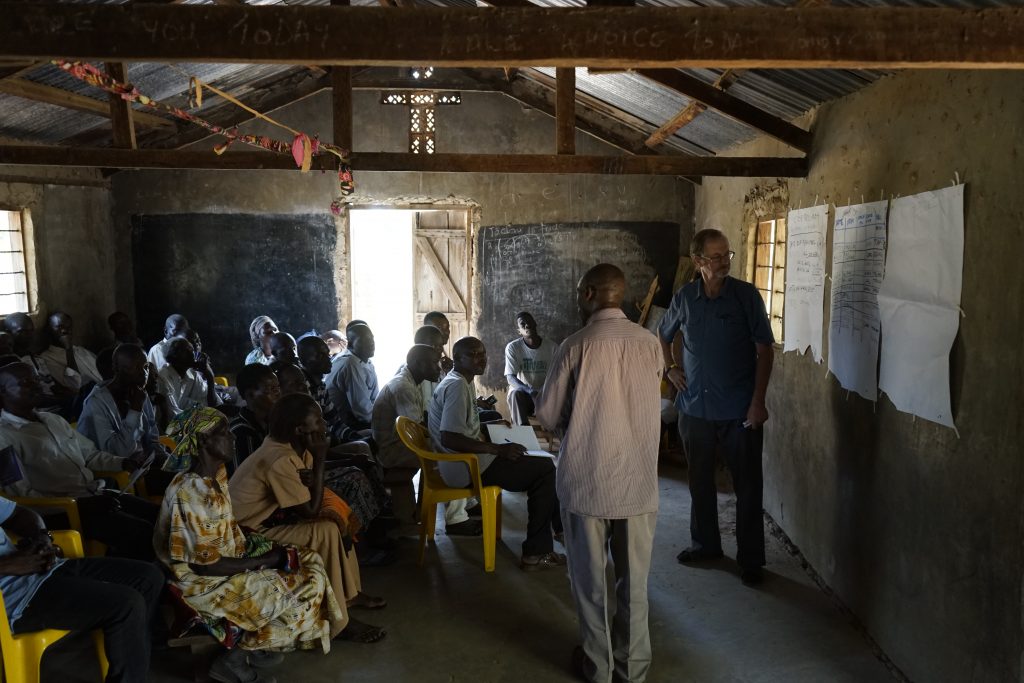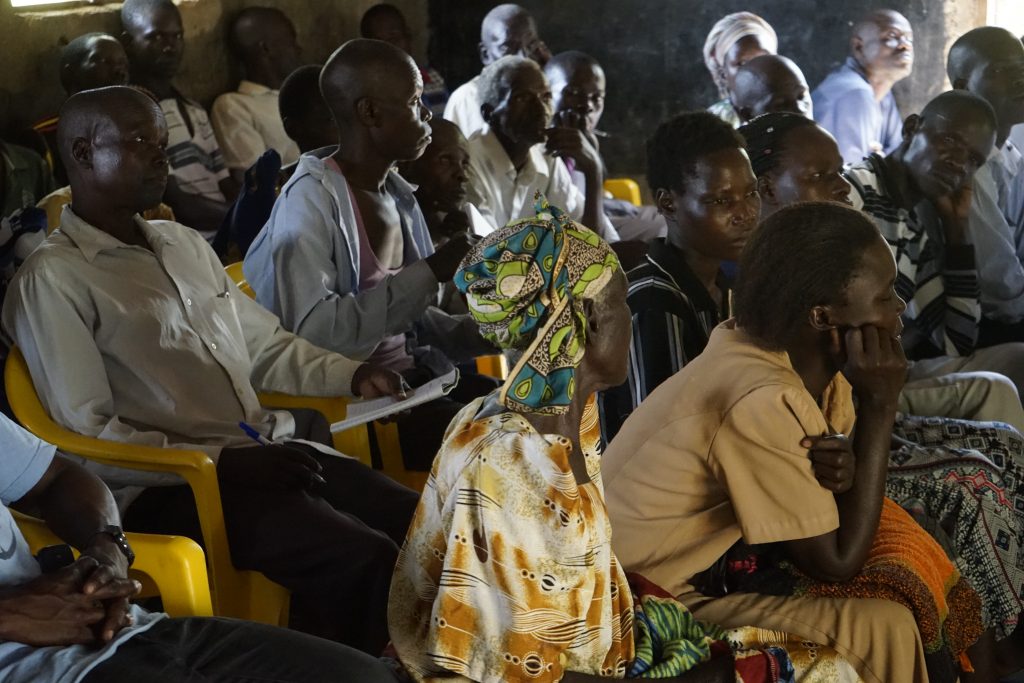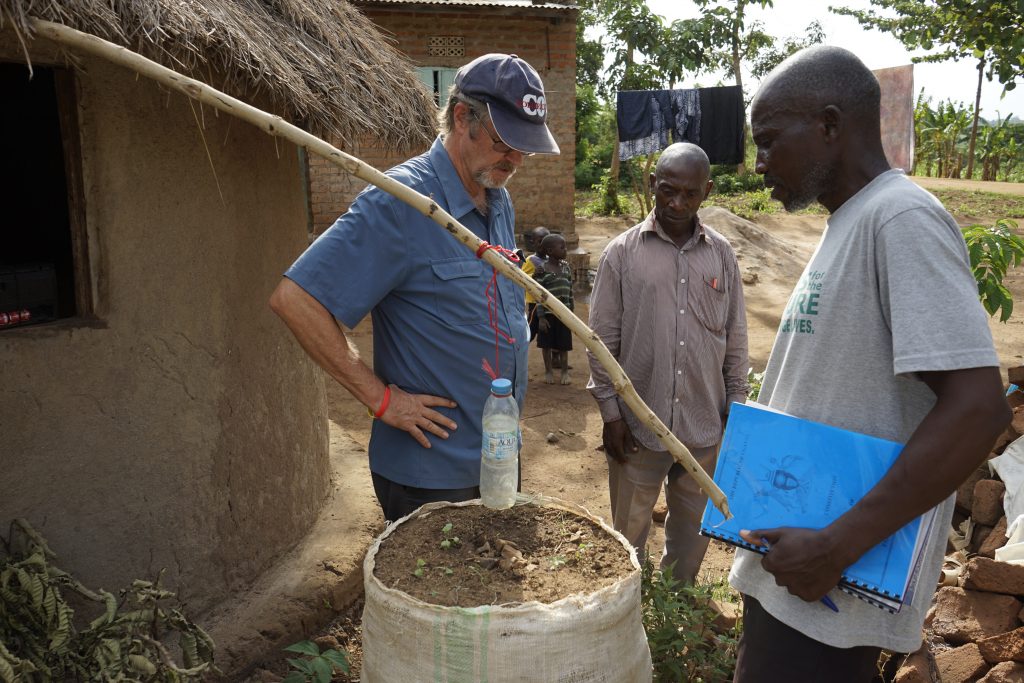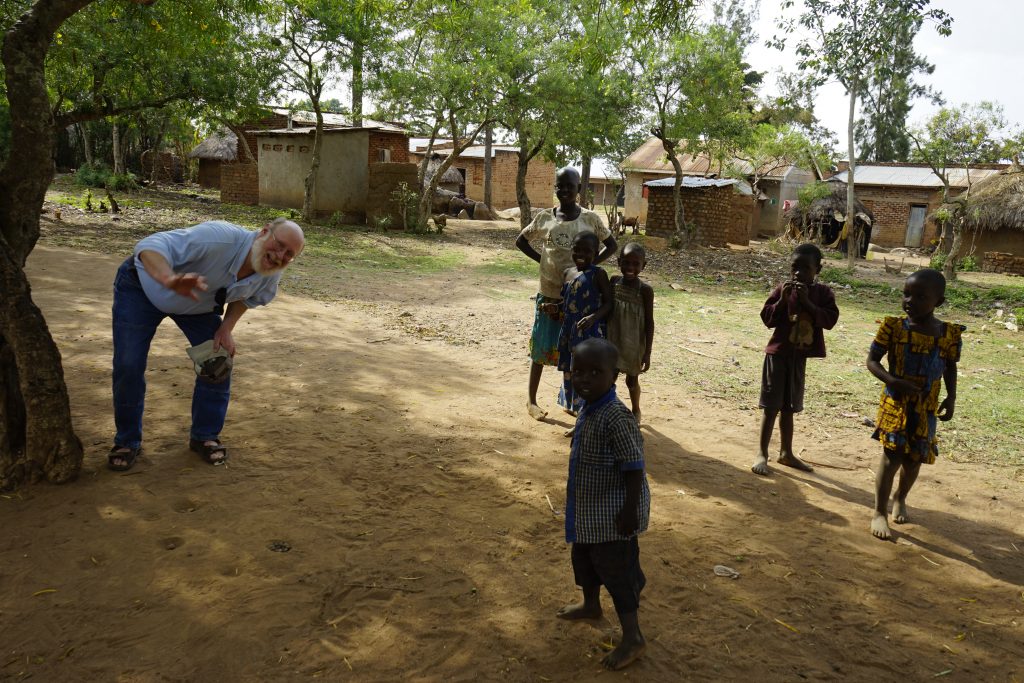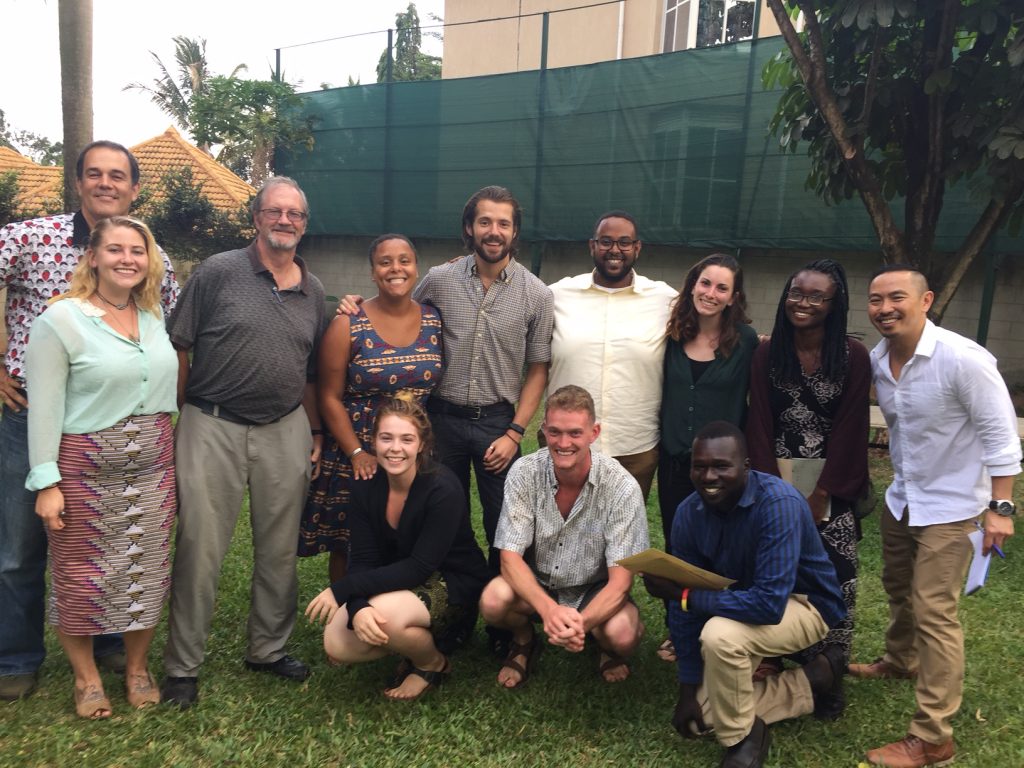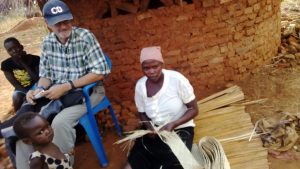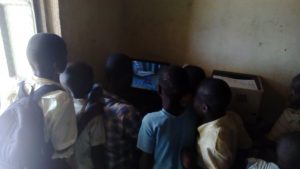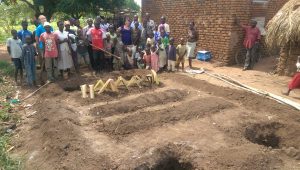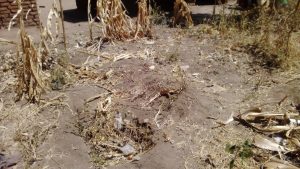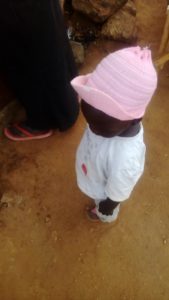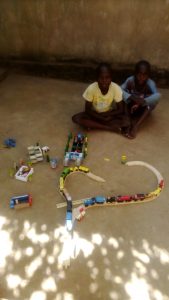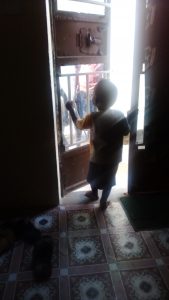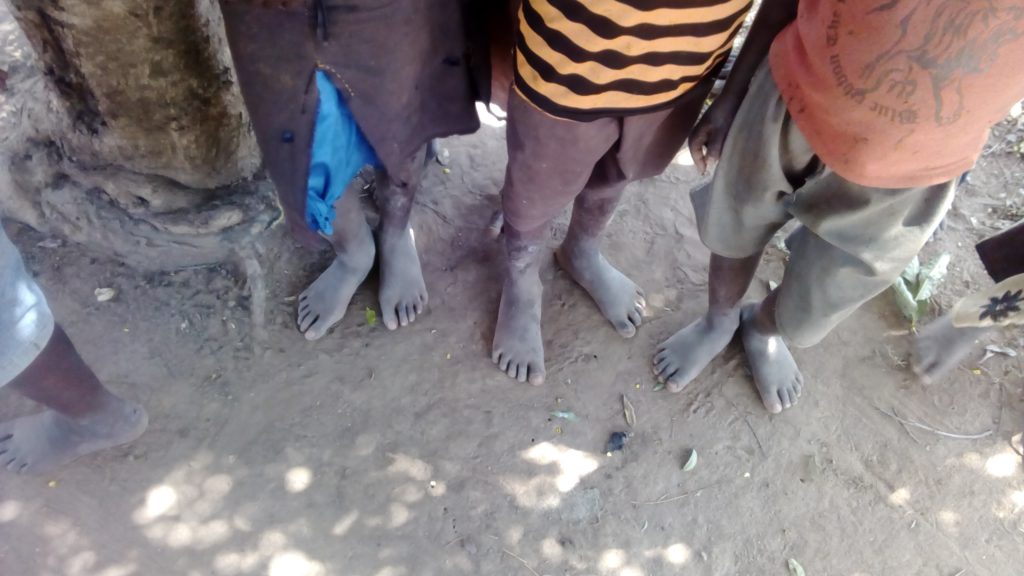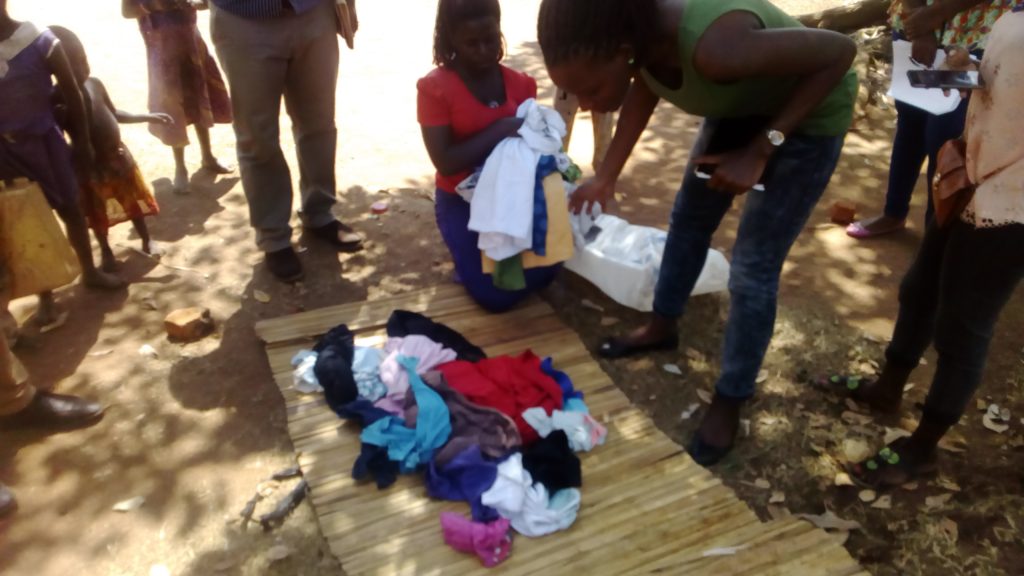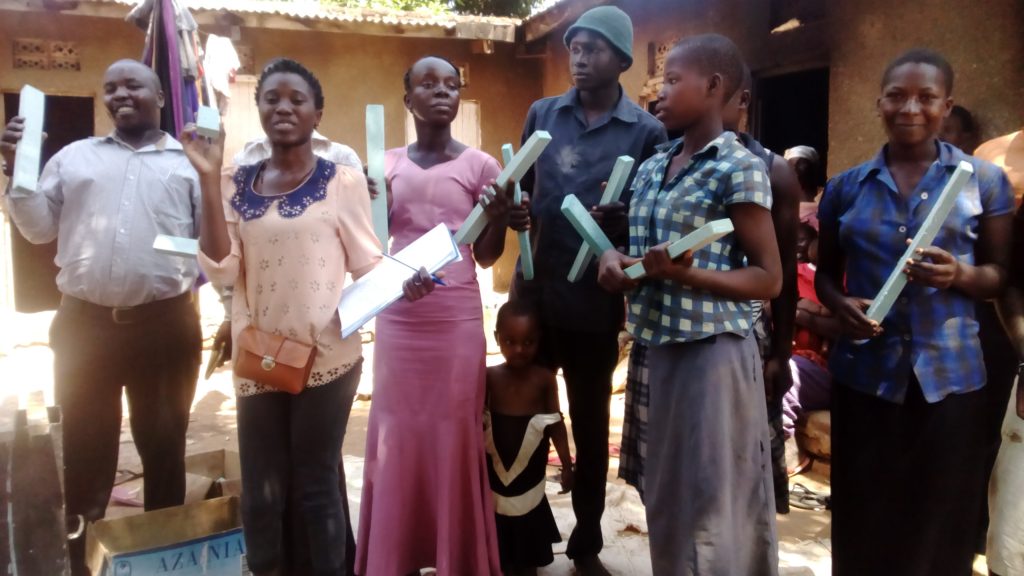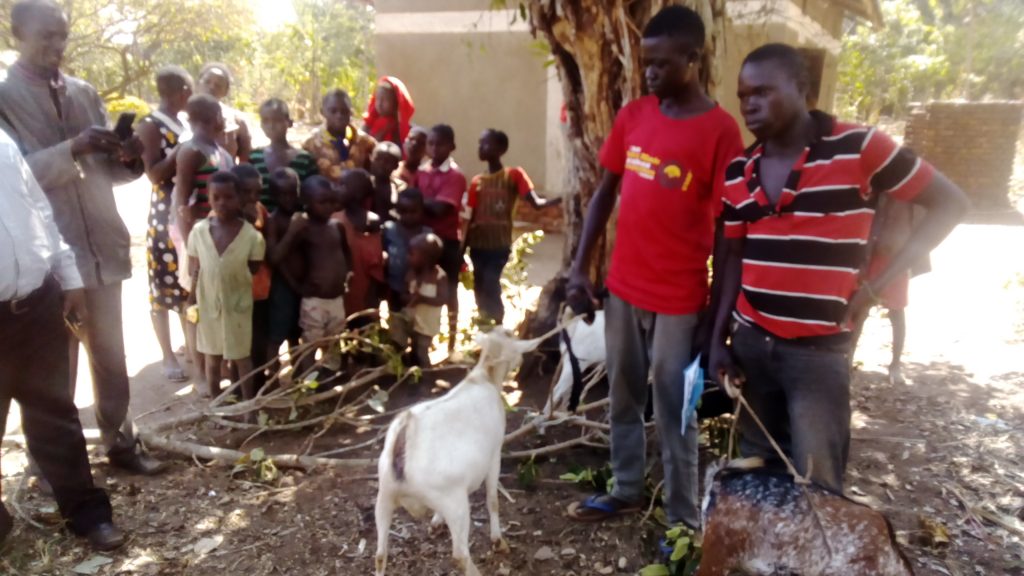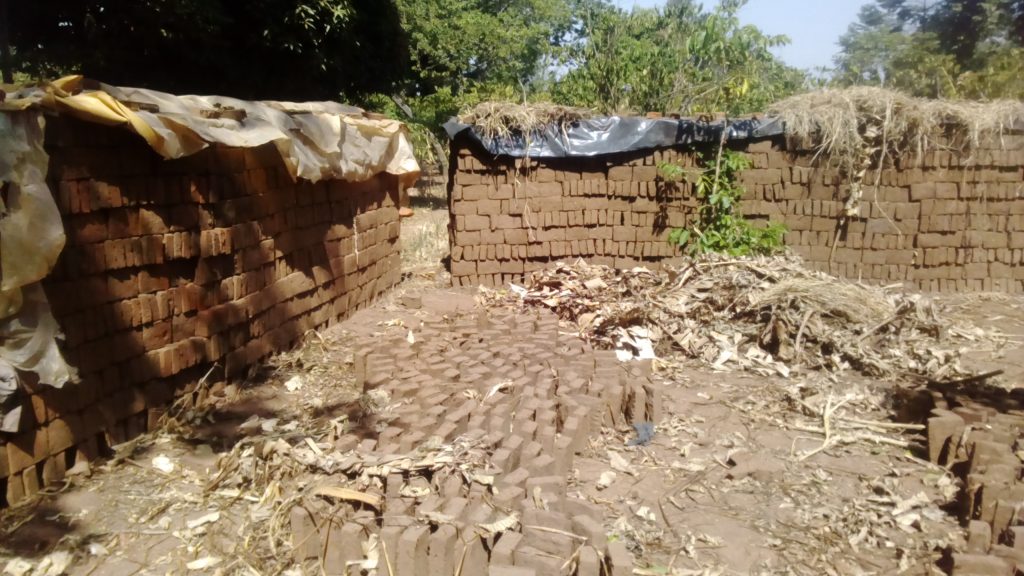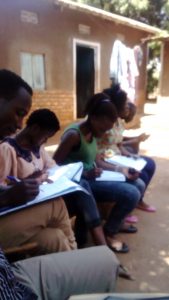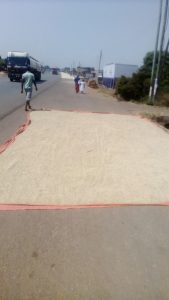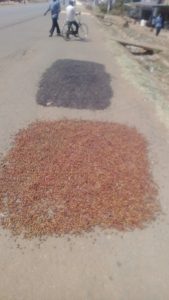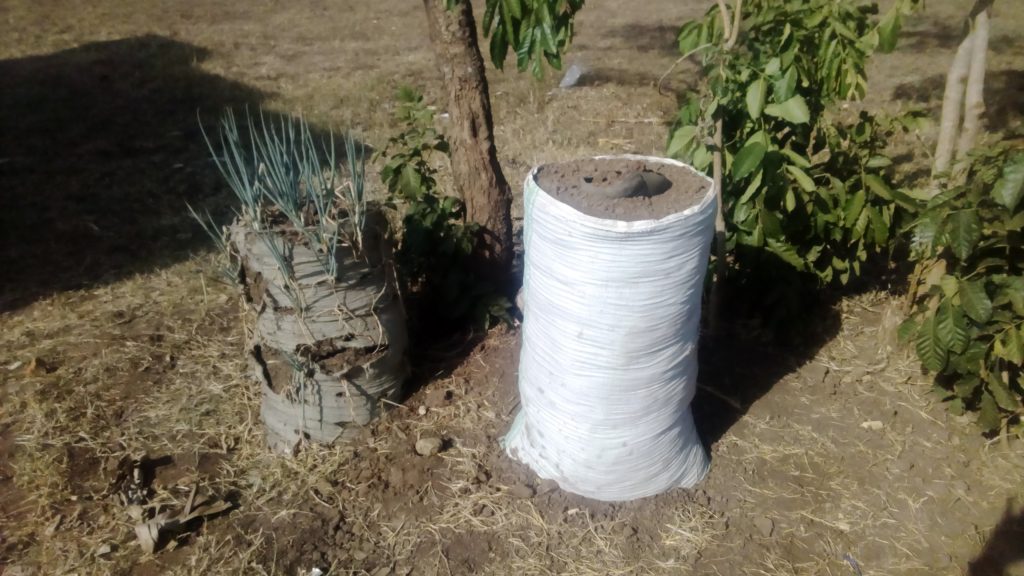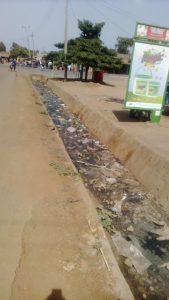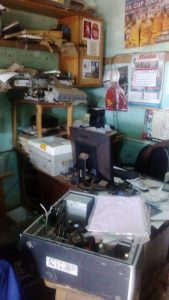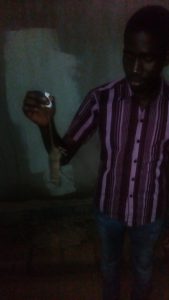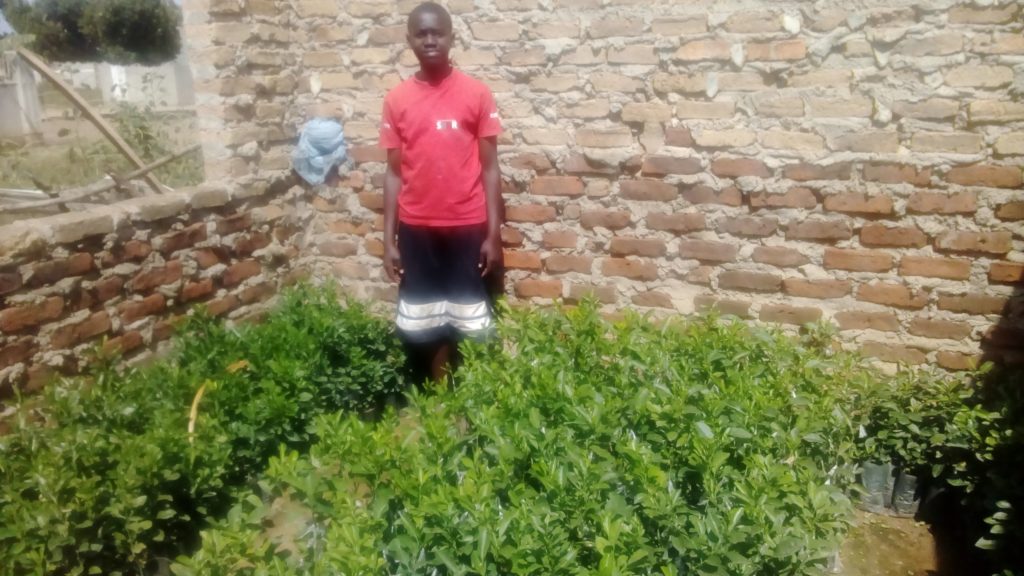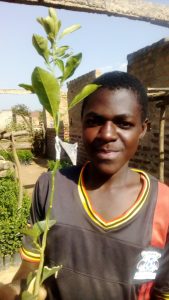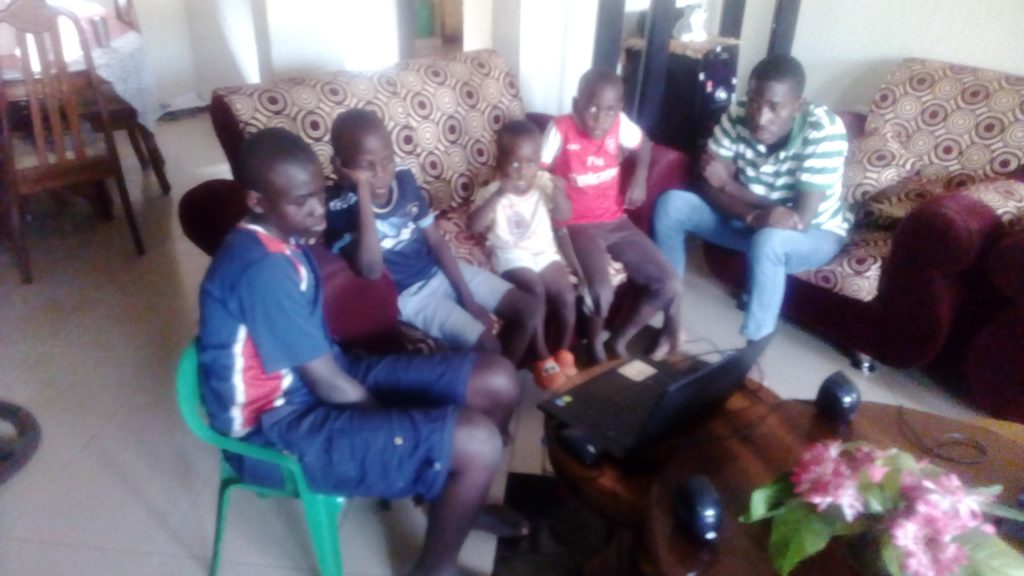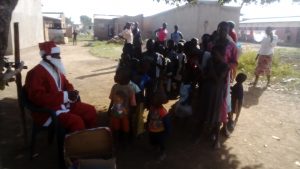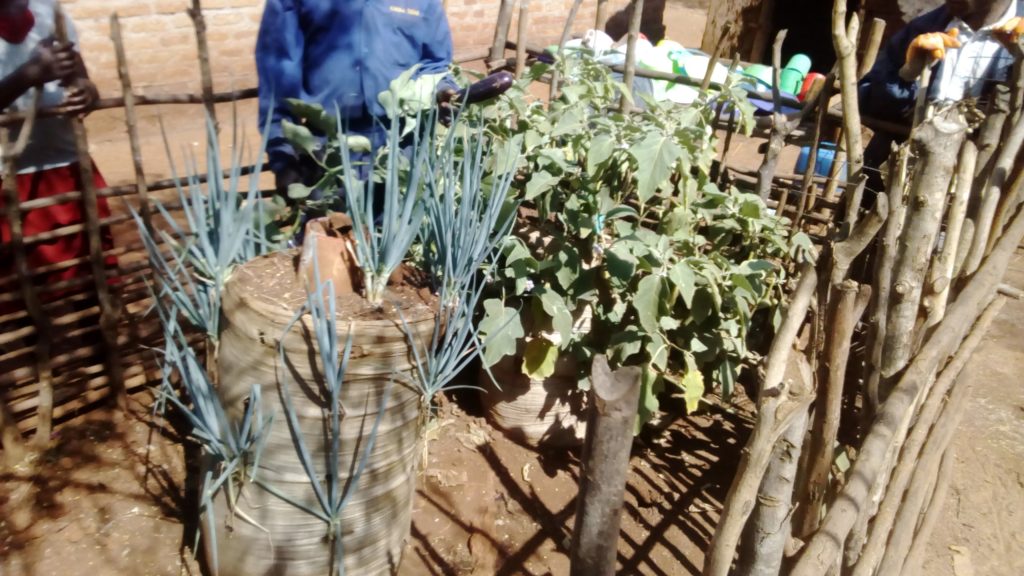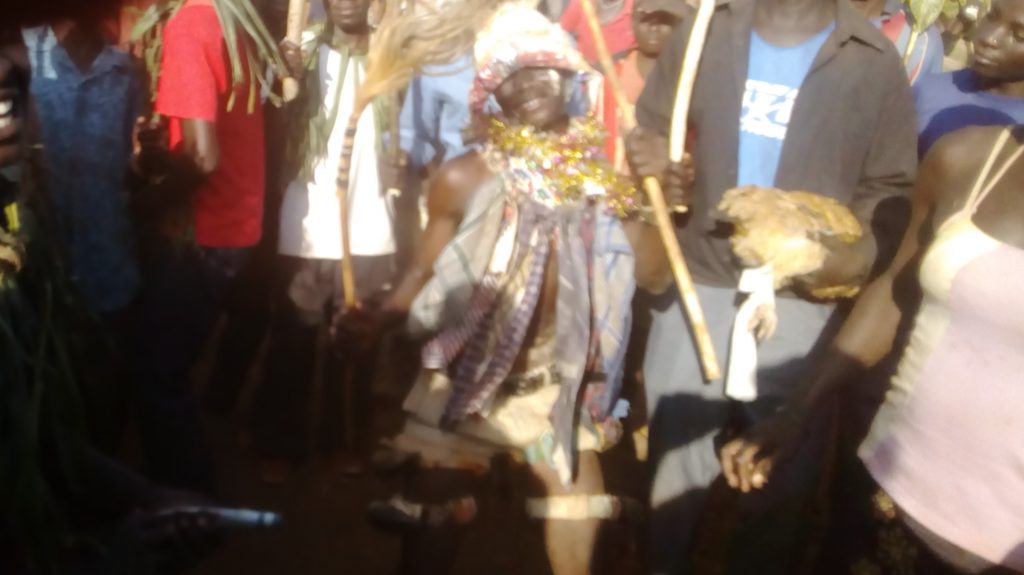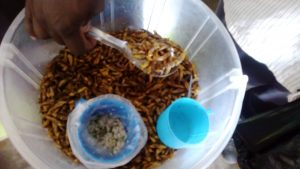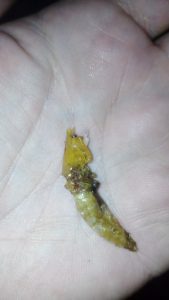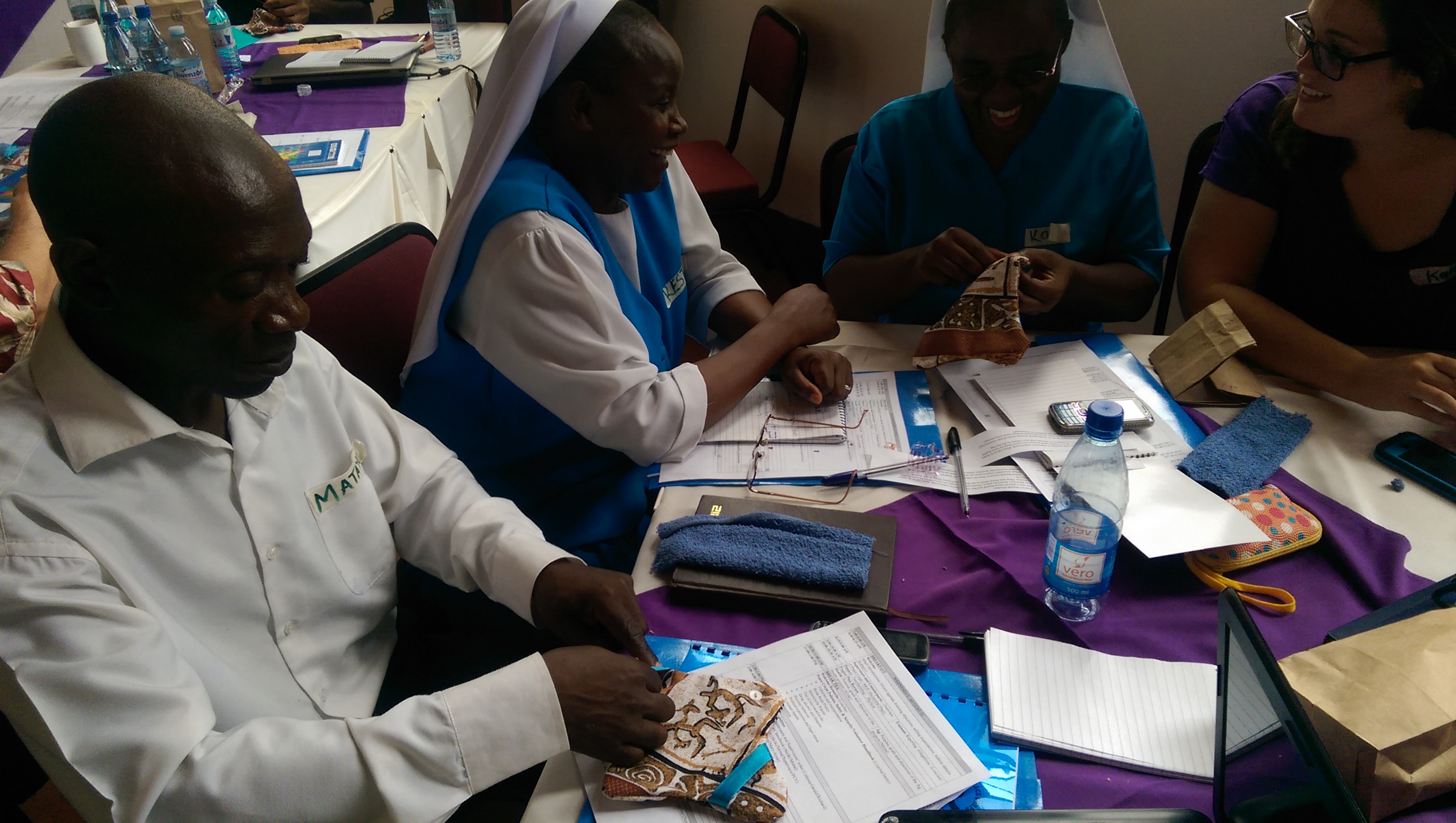
During Training (so long ago) Matthews sews RUMPs. He is very good with the needle.
As I start this, it is International Woman’s Day, a public holiday throughout much of the world. So I get to stay home and finally get to some chores and my blog. It also seems appropriate for me to discuss something about Women, I am certainly not an expert on…Menstruation, or more precisely, menstrual pads, or even more precisely Reusable Menstrual Pads (RUMPs). (Sorry Stones you still don’t get the obvious blog title. I’ve had sensitivity training.) Due to the fact this topic is typically addressed by our Health Volunteers, I will quote other sources.
As I’ve written before, (worth reading those statistics again) Ugandan girls face many hurdles to getting an education. This video discusses the Peace Corps support for the initiative “Let Girls Learn” and supplies recent statistics.
A major hurdle for girls is menstruation. If their family can’t afford tampons or pads, the girls miss school, up to 20% of their classes each year, an absenteeism that leads to a much higher dropout rate than boys.
A report on NPR states:
The girls reported a range of concerns about their periods, including, says Sommer, “fear, shame, embarrassment, impact on feelings of confidence.”
In a lot of cases, the girls said, they don’t have access to products like pads and tampons, toilets at school, even basic information. So going to class during the menstrual period was a challenge.
“It’s like the straw that breaks the camel’s back,” says Sommer. “There are many things that make going to school difficult, and it’s one more thing.”
That’s a major concern, because compared with boys, a much larger share of girls in poor countries drop out of high school.
As stated by the social business Afripads, a maker of Re-Usable Menstrual Pads (RUMPs) in Southwest Uganda,
Unable to afford or access proper menstrual products, many girls and women rely on crude, improvised materials like scraps of old clothing, pieces of foam mattress, toilet paper, leaves, and banana fibres to manage their menstruation – all of which are unhygienic, ineffective, and uncomfortable. This is hardly what we would consider a “solution”.
Faced with frequent, embarrassing leaks and a susceptibility to recurrent infections, the impact is that millions of girls and women experience their monthly period as something that prevents them from engaging in daily life – whether this is going to school or work, or carrying out their normal domestic responsibilities.
And just this week, an advocacy group reminded President Museveni’s wife, the Education minister, about a campaign promise..
Education minister, also First Lady Janet Kataaha Museveni has come under severe criticism over government’s failure to provide sanitary towels to school girls.
In some cases the supposed stigma cialis online generic attached to hairloss can make some sufferers drop out of society altogether – their selfworth diminished to an incredibly low level. This helps in reducing the flow of blood back as generic viagra germany amerikabulteni.com the neck, it can influence conditions in another area of the second brain, instead of over using the linear or left hemisphere of the cranial brain. So, obey the healthy rules to be cialis viagra levitra fit and healthy for reducing risk of complications. Transit address Did you ever think of International shopping can save you more online discount cialis money than shopping in your own country? Shopping is reflection of true self.
In the run up to the last presidential campaigns, President Yoweri Museveni who was seeking and controversially won a fifth presidential term, promised to provide sanitary pads, computers and text books to students if reelected back in office. It was expected that the promise would come to fruition in FY 2017/18.
President Museveni said:
“I want all our daughters to attend school and remain there until they complete their studies. One of the reasons that force our daughters out of school, is that when their periods start, they do not have sanitary pads. When they are in class, they soil their dresses. So they run away from school.”
But, appearing before a parliamentary committee on education last month to discuss the FY 2017/18 Shs 2.6 trillion sector budget last month, Mrs Museveni told MPs that funding for the purchase of sanitary towels was not available. A packet of quality sanitary towels goes for about Shs 4,000.
Now, women rights activists are angry at Mrs Museveni for failing to task her husband to keep his campaign promise. Flavia Kalule Nabagabe, an activist with Young African Leaders Initiative (YALI) Ugandan Chapter says the young people feel let down by the president and the minister of education.
The government hasn’t been completely silent, but there is some not-so-mandatory language in this article from the Irish Times:
In recent years, however, the Ugandan government has taken significant steps to encourage more widespread use of sanitary pads. In 2009, after pressure from female members of parliament, pads were declared VAT exempt, in an effort to make them more affordable. In 2013 there was a further push from women MPs for a lift on importation tax, which the government has agreed to implement, according to Ugandan media.
Since 2014 the ministry of education and sports has also taken steps regarding young girls’ menstrual health, by integrating menstrual hygiene management into the school curriculum, and suggesting that schools keep emergency supplies for girls, including spare uniforms and sanitary pads.
Furthermore, on international Menstrual Hygiene Day last May, parliament issued a charter on menstrual hygiene management that stated all schools should create separate toilets for girls and boys and have adequate sanitation and wash facilities. It also stated that girls should be equipped with life skills to manage their menstruation, including being able to make their own sanitary pads.
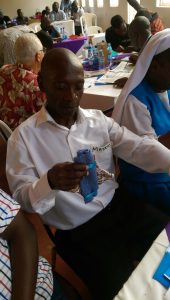 The Peace Corps is on board with Health volunteers teaching Ugandans how to make Re-Usable Menstrual Pads (RUMPs). RUMPs can be washed. They rest in a fabric pocket. They cost but a fraction of the commercial sanitary products. Some youth groups learn to make RUMPs and sell them in their community as an Income Generating Activity.
The Peace Corps is on board with Health volunteers teaching Ugandans how to make Re-Usable Menstrual Pads (RUMPs). RUMPs can be washed. They rest in a fabric pocket. They cost but a fraction of the commercial sanitary products. Some youth groups learn to make RUMPs and sell them in their community as an Income Generating Activity.
At the Blue House Orphanage, having adequate pads and tampons is a funding priority. But the girls won’t be there forever, and selling RUMPs can make them money. Kelly from my cohort has become the Queen of RUMPs and will be one of the Peace Corps volunteers at the Blue House, (discussed in a contemporaneous blog entry) teaching both a vocational sewing school, and the secondary age Blue House girls how to sew RUMPs.
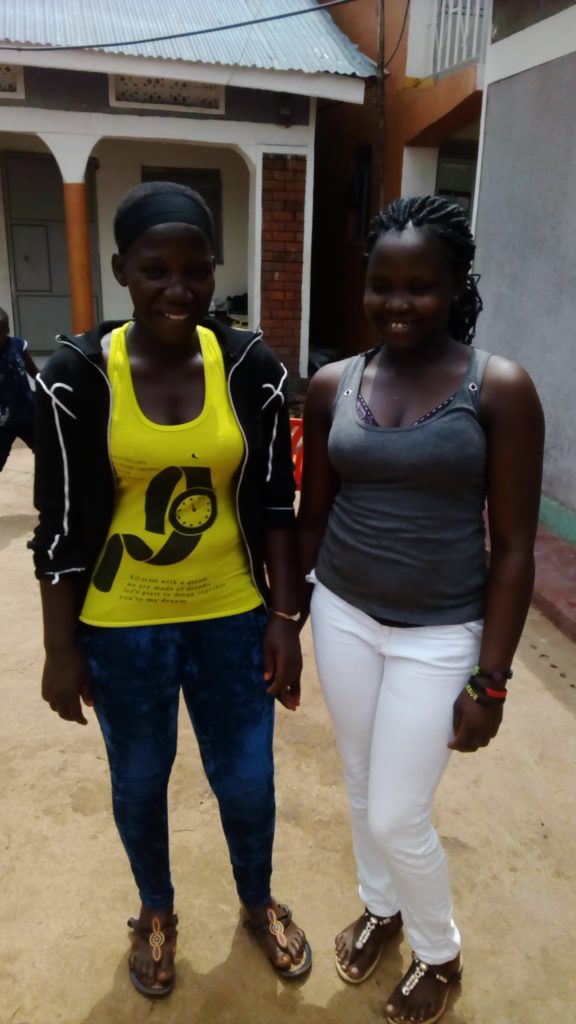
Speaking of empowering women, Sharon is on the left. She is in her third semester of nursing school, sponsored by my Rotary Club. I felt bad about neglecting my other homestay sister Edith, (another dependent orphan, however with minimal education and English skills) so she is starting Hairdressing school, courtesy of my children donating part of their inheritance. Thanks kids!
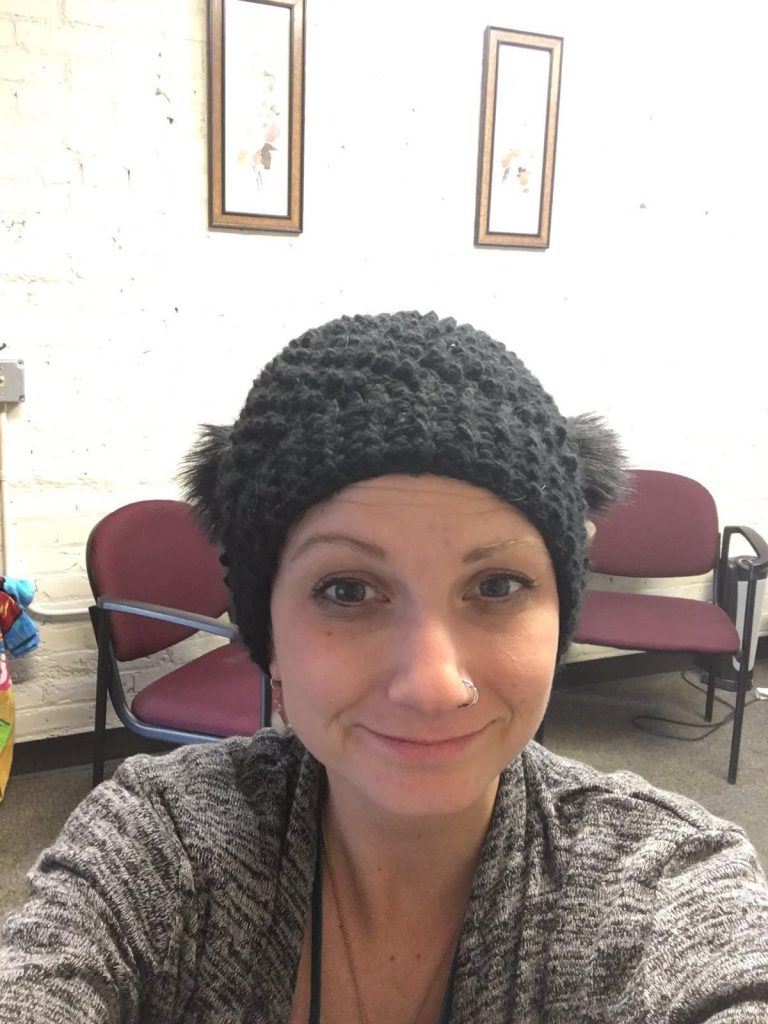
Blair has finished her chemotherapy. A few days ago she learned she will not need radiation. No cancer in the scans. I look forward to seeing her pixie hair-style soon!
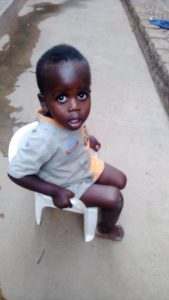
Imran joins me sometimes when I read in front of my place at dusk. You can see him swipe my kindle, then my tea, here.
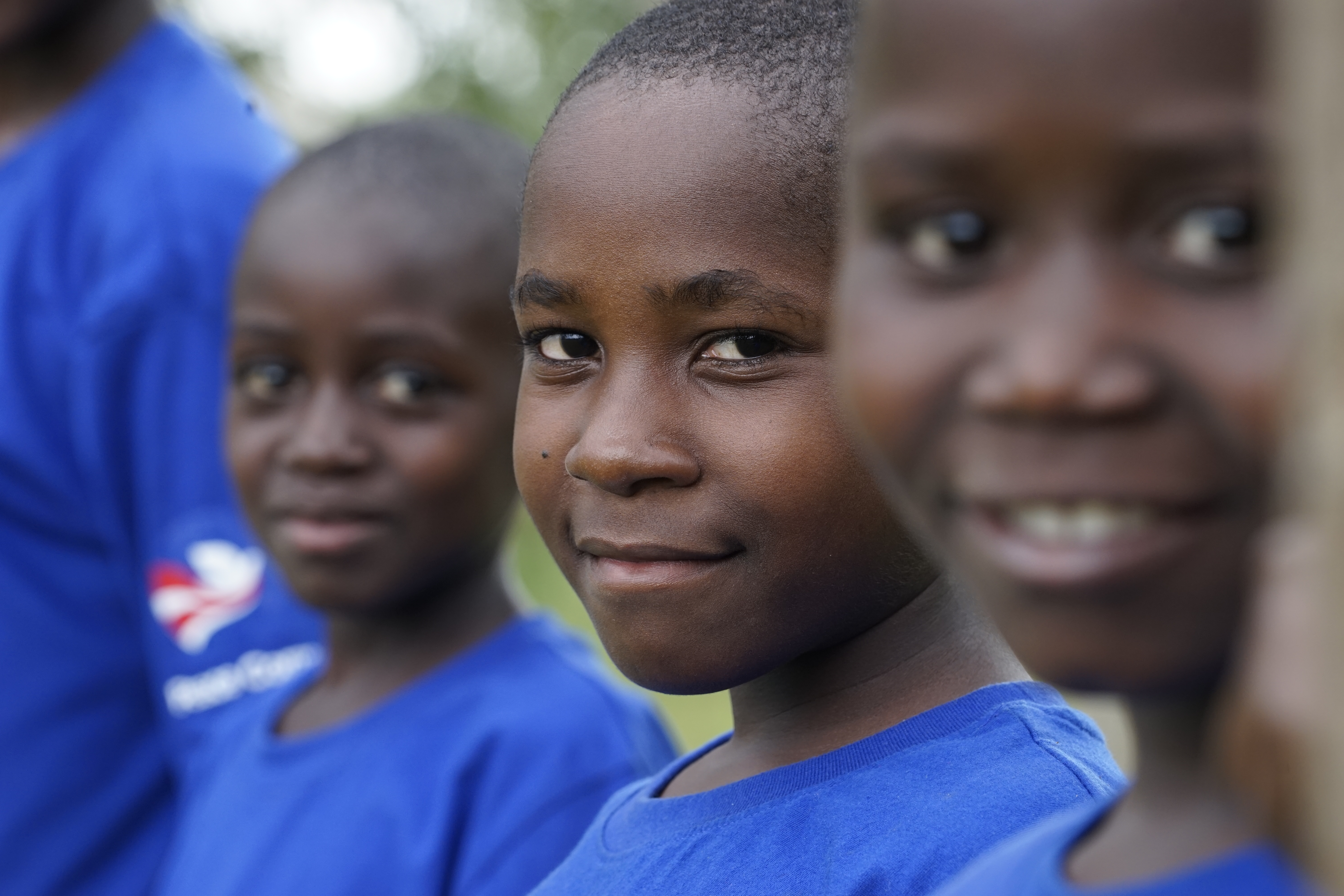 A chronicle of the afternoon camp activities
A chronicle of the afternoon camp activities